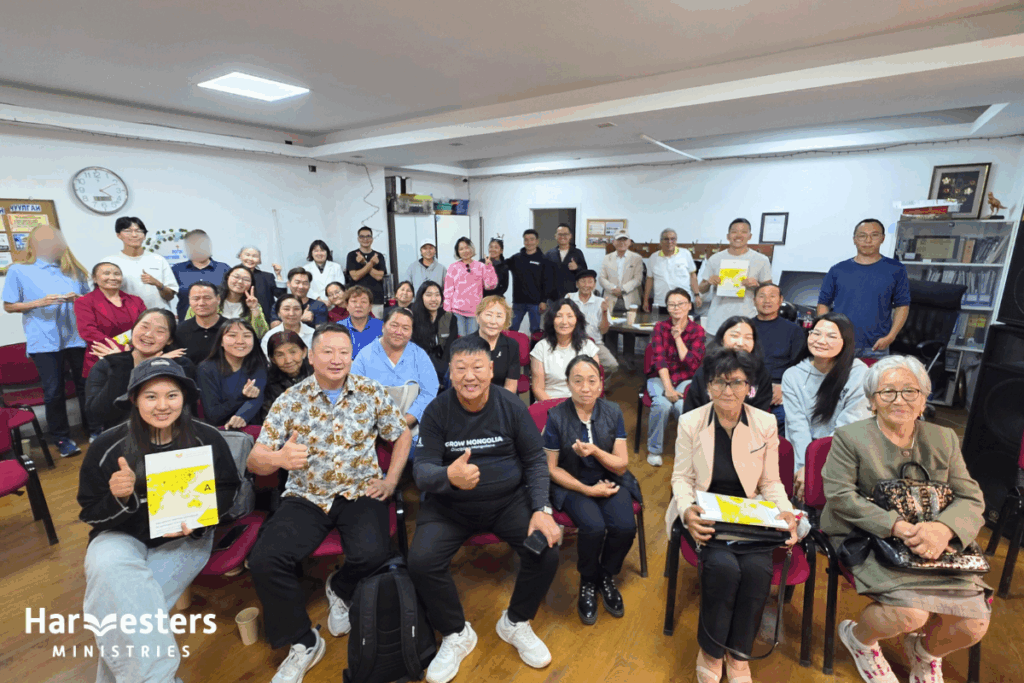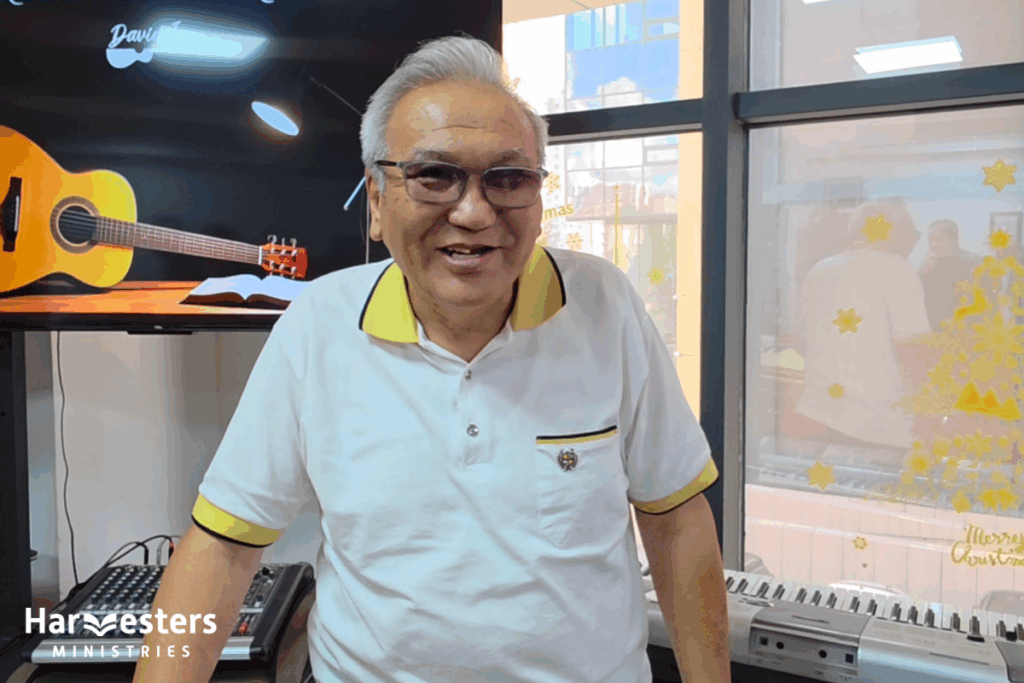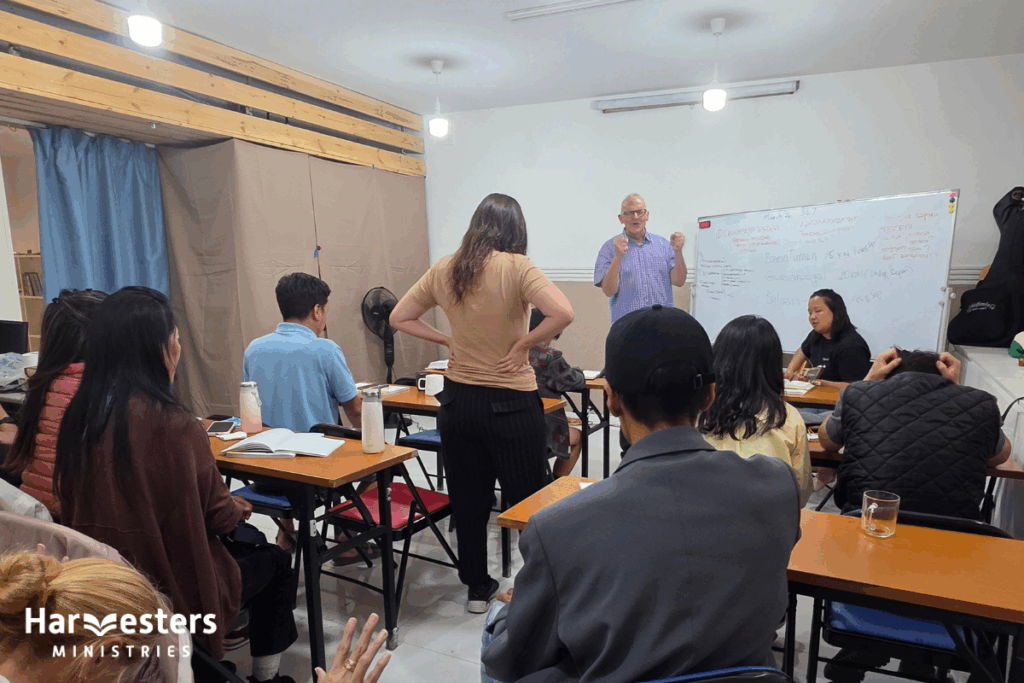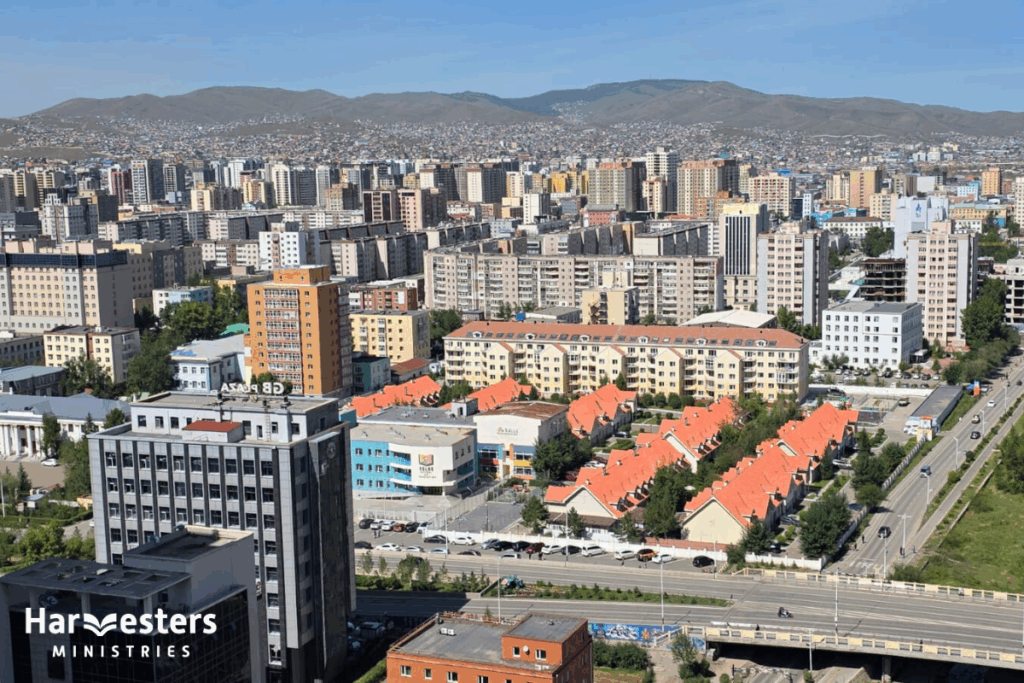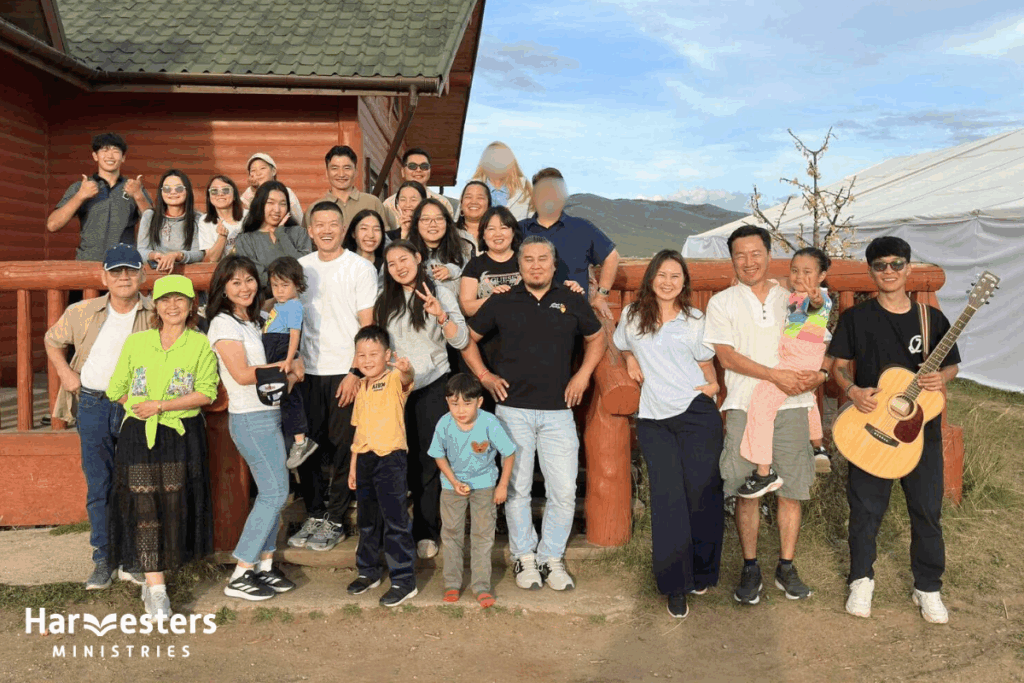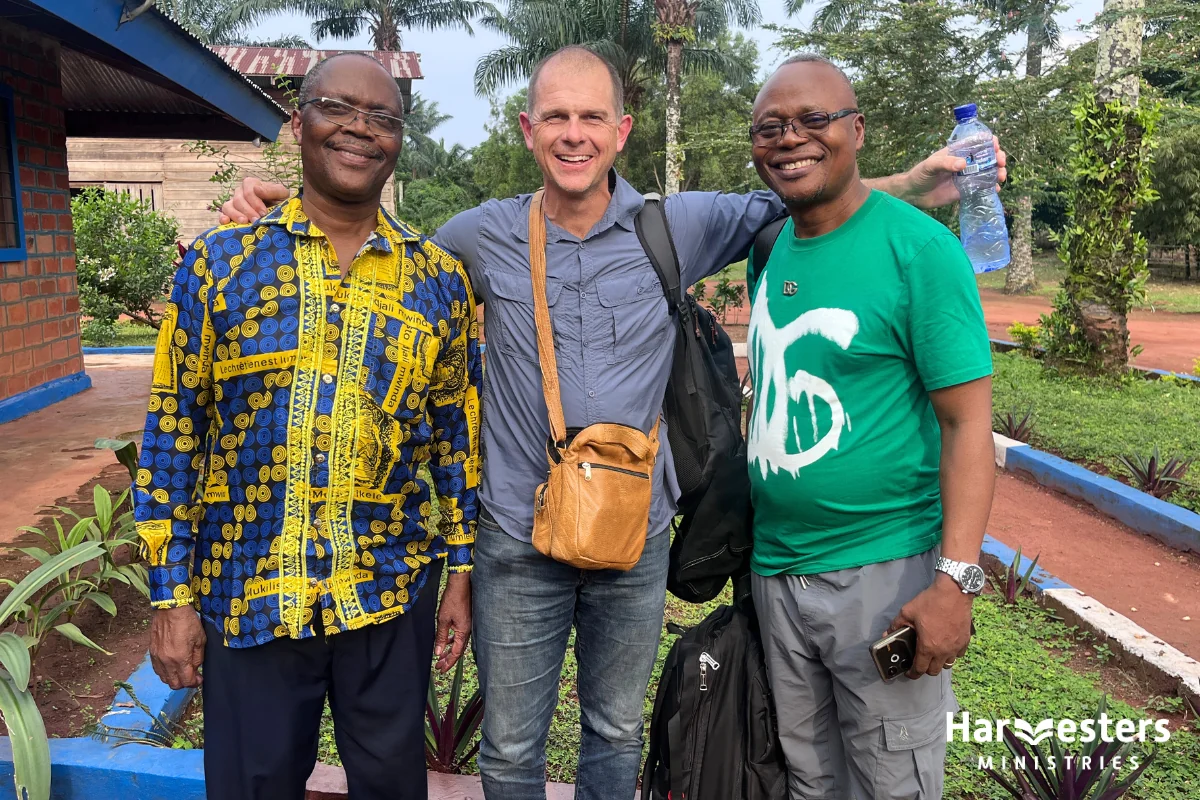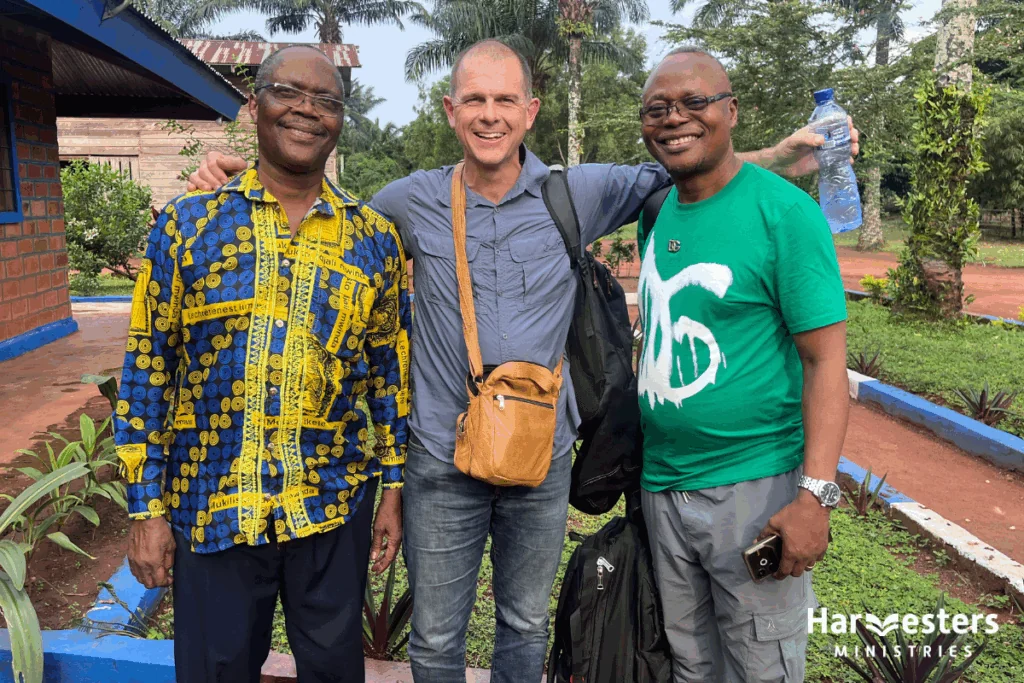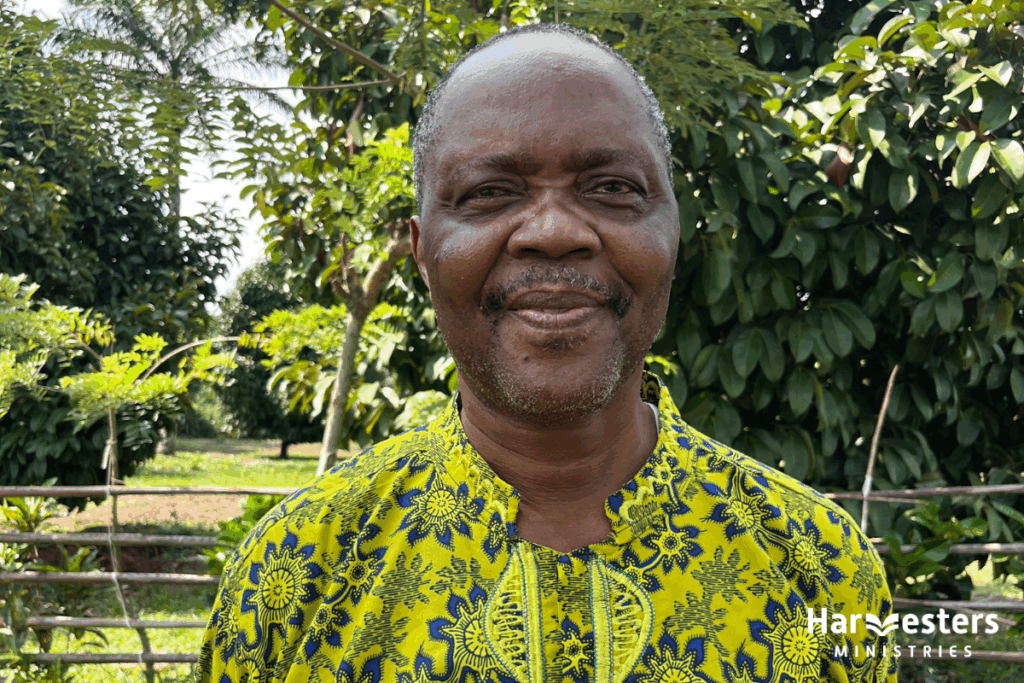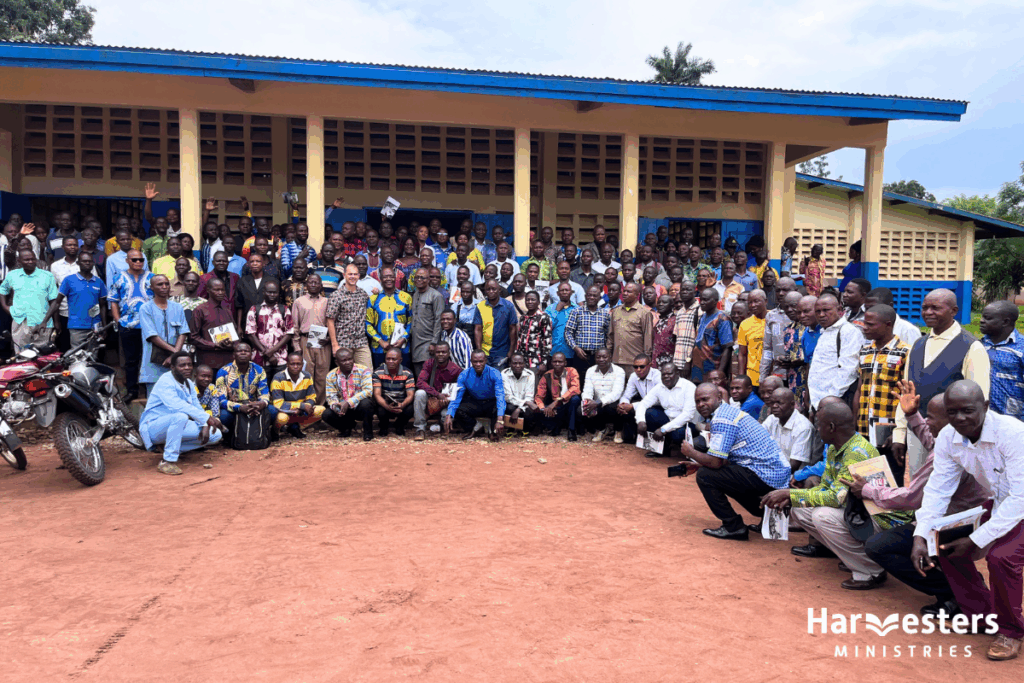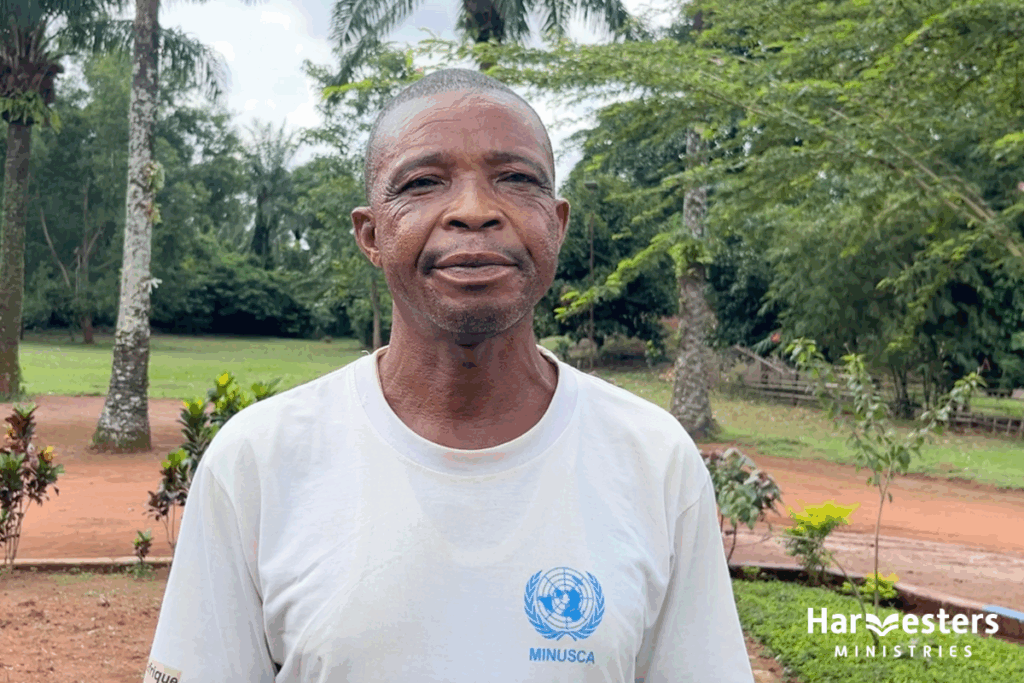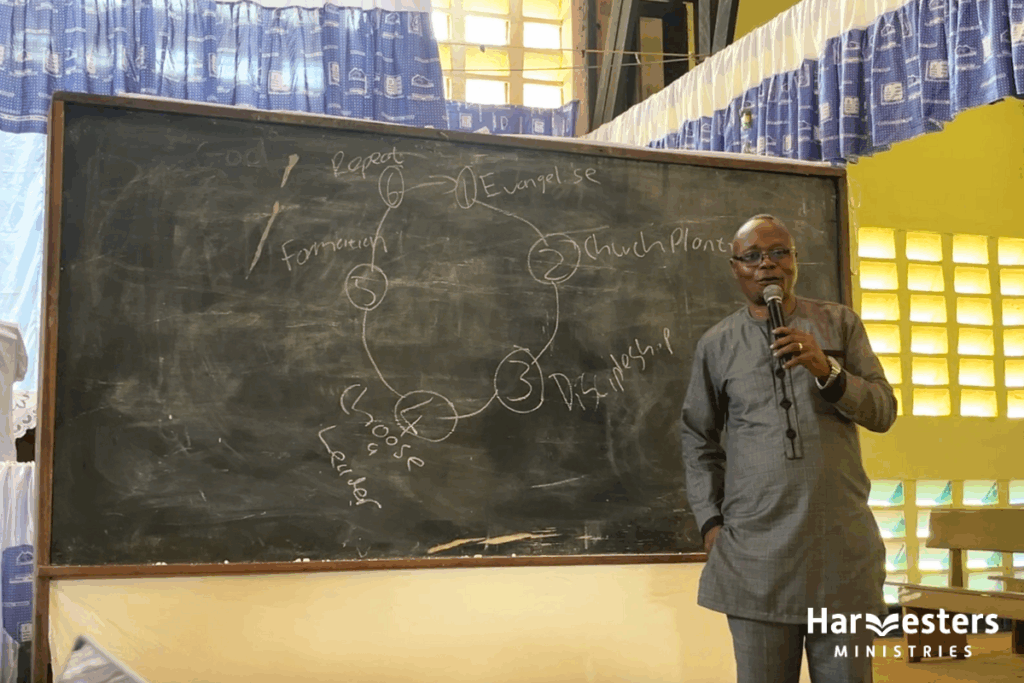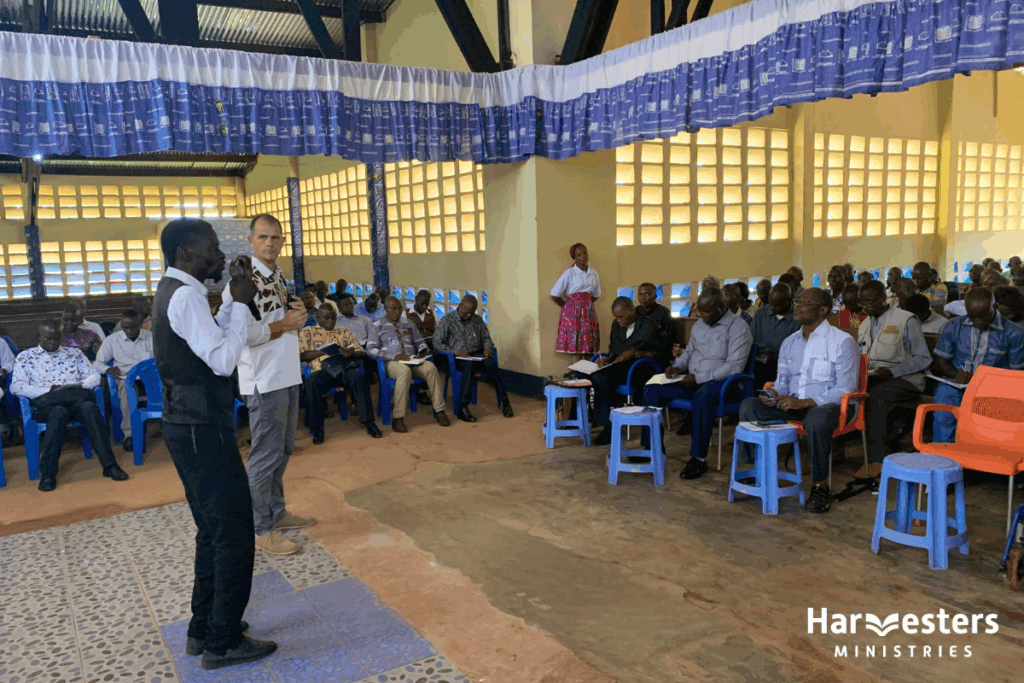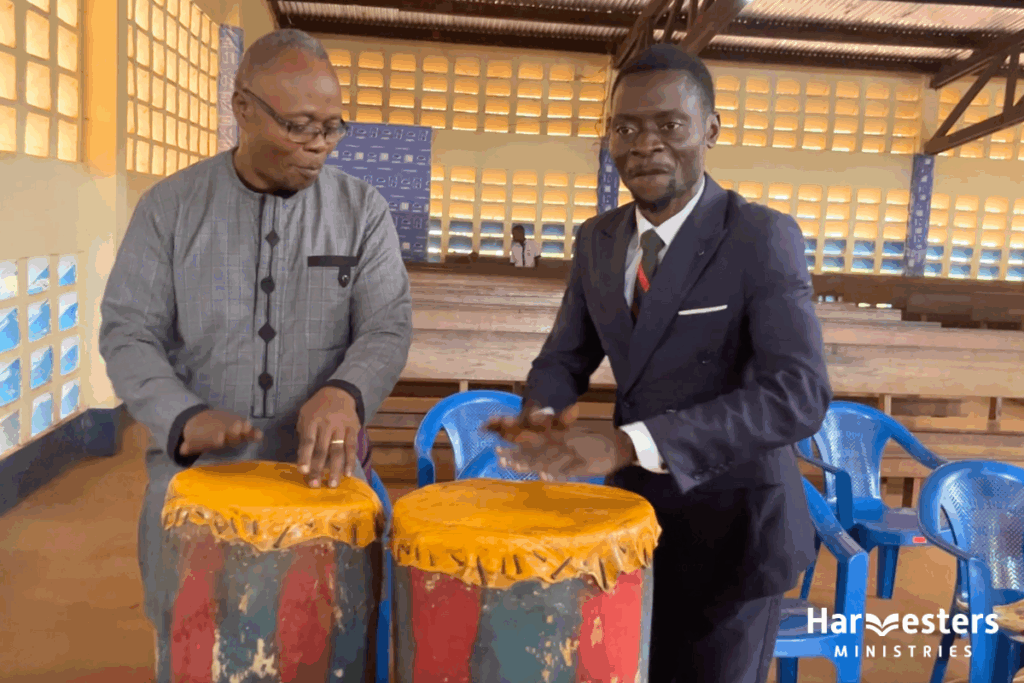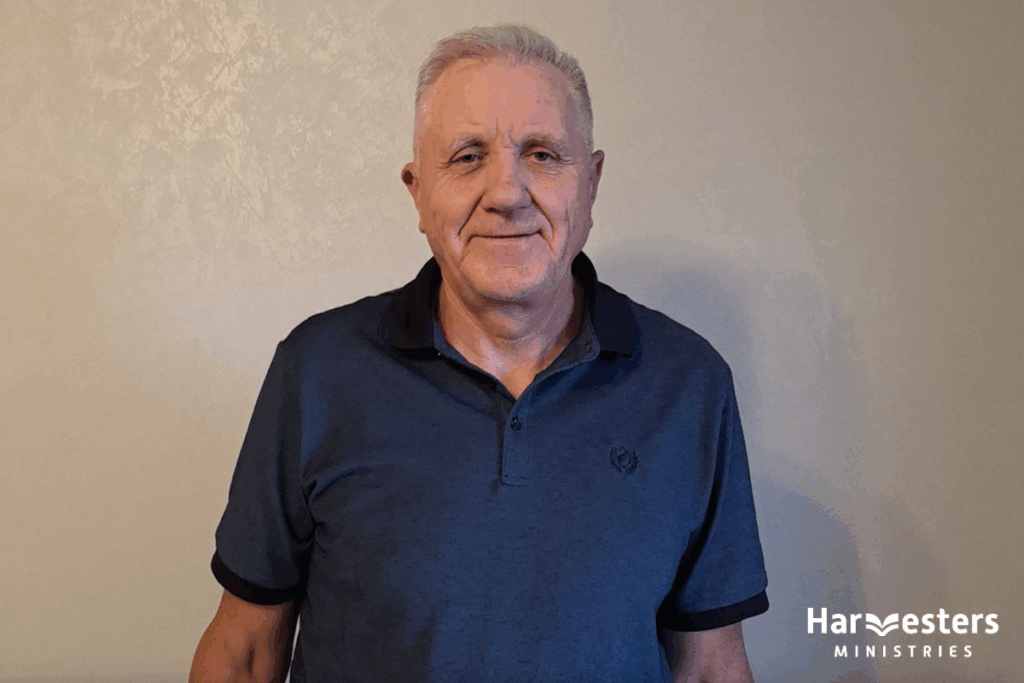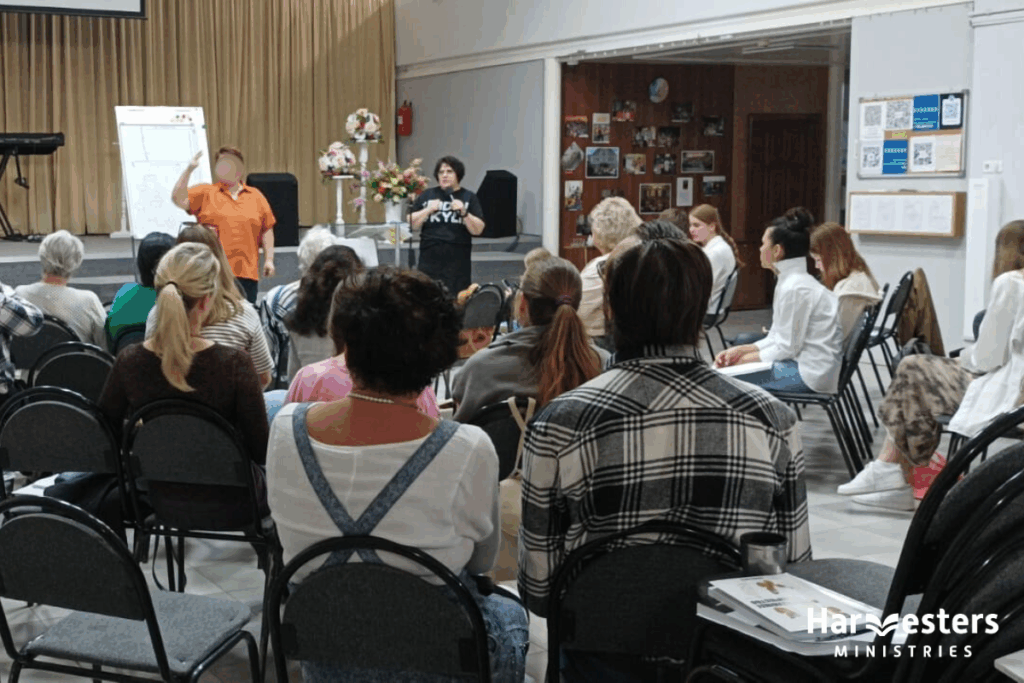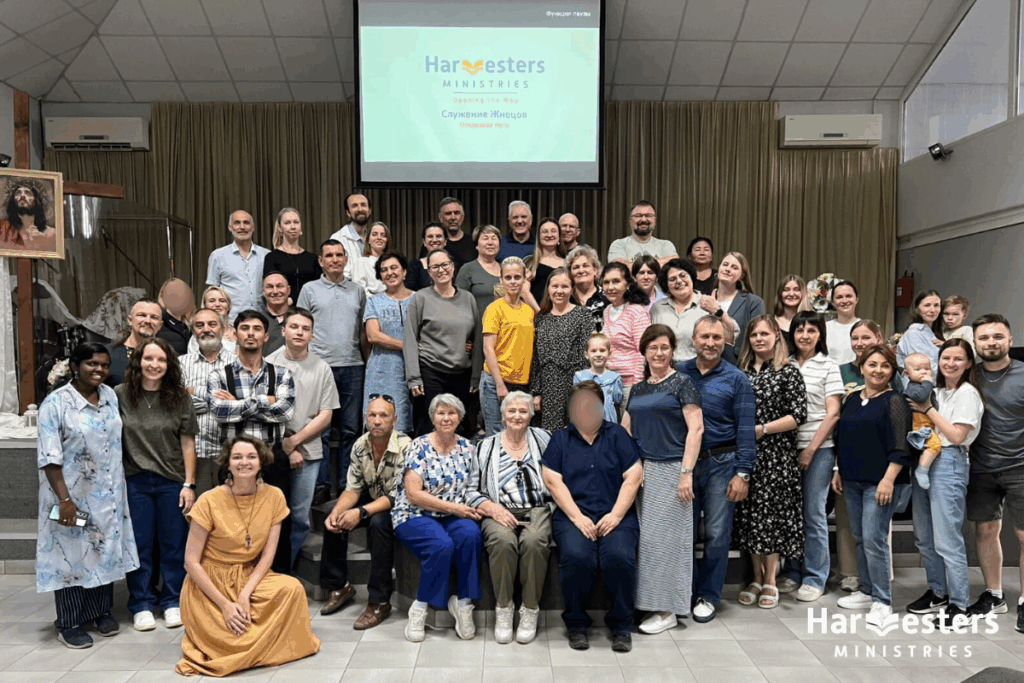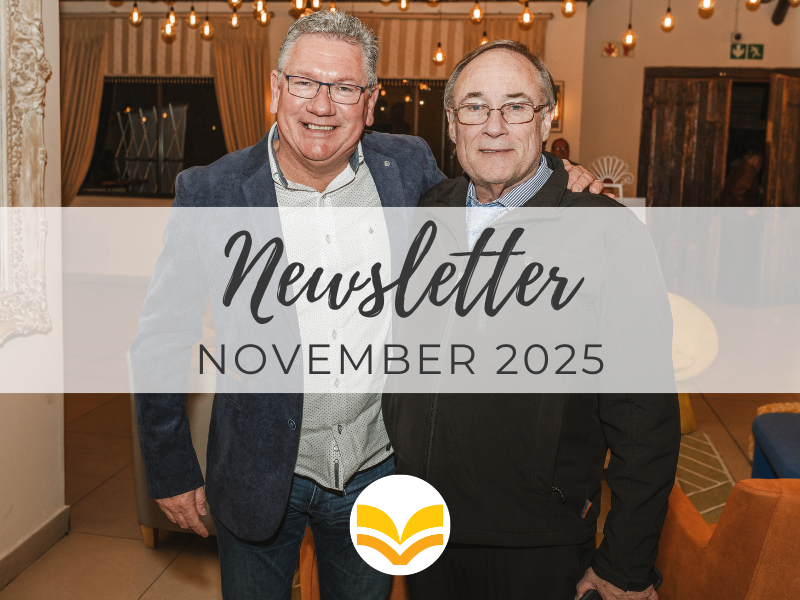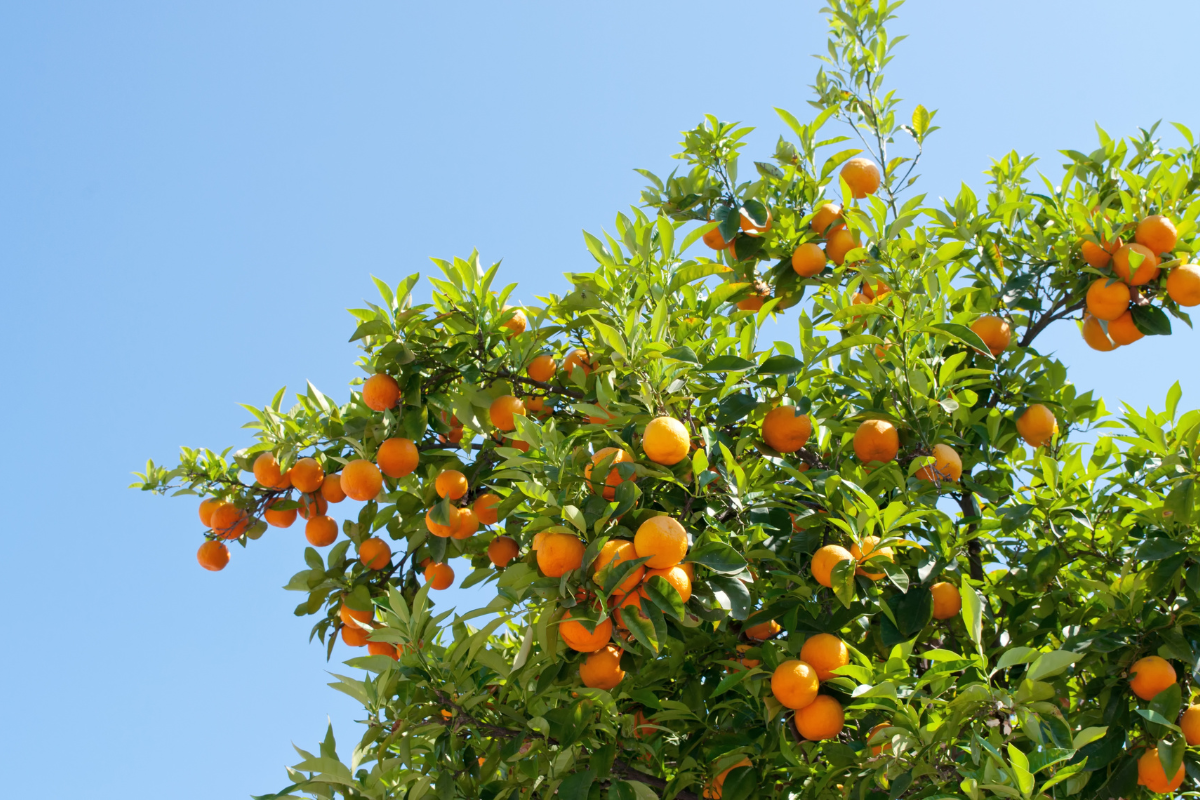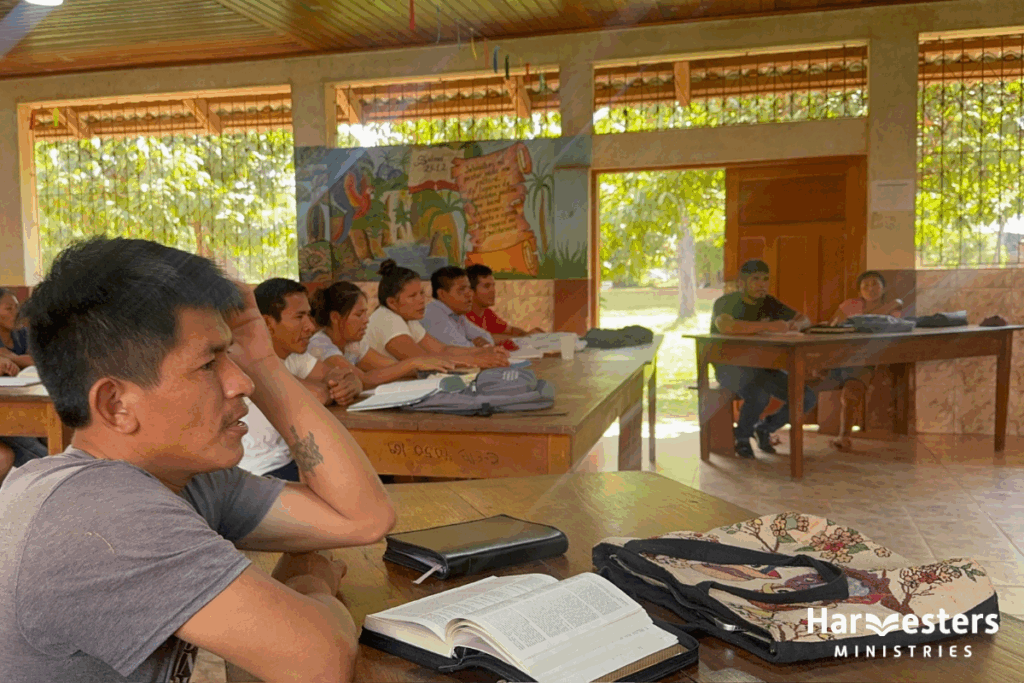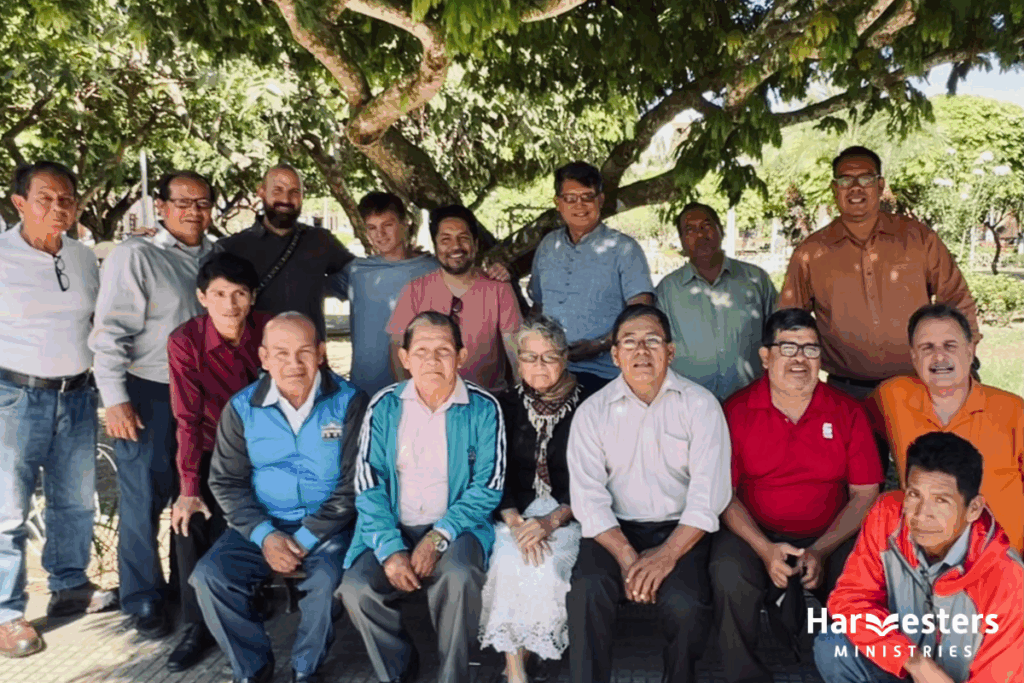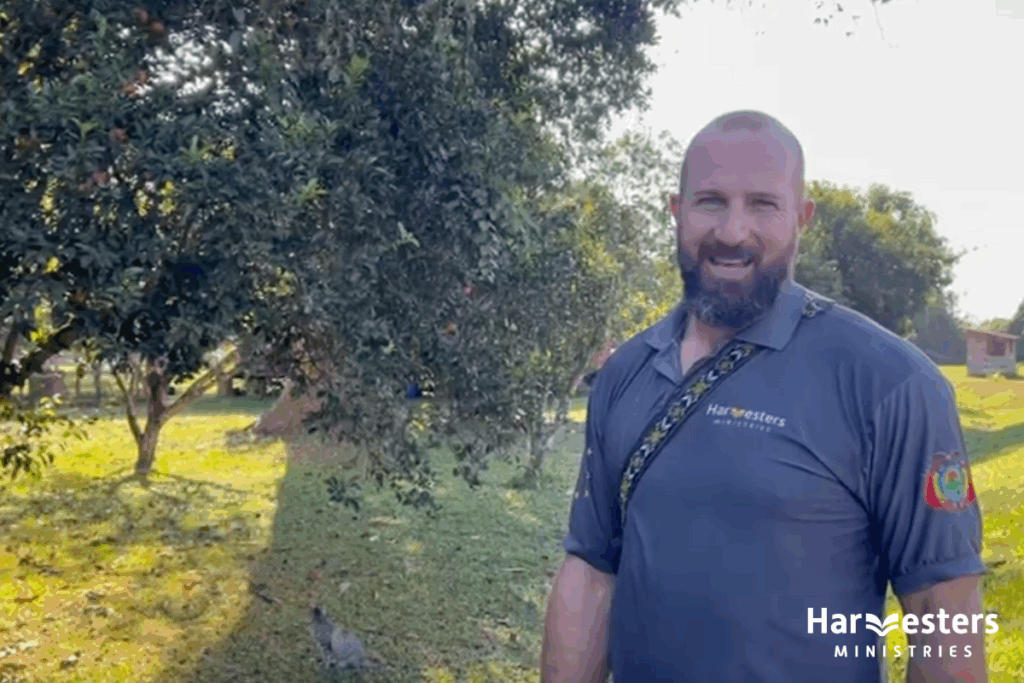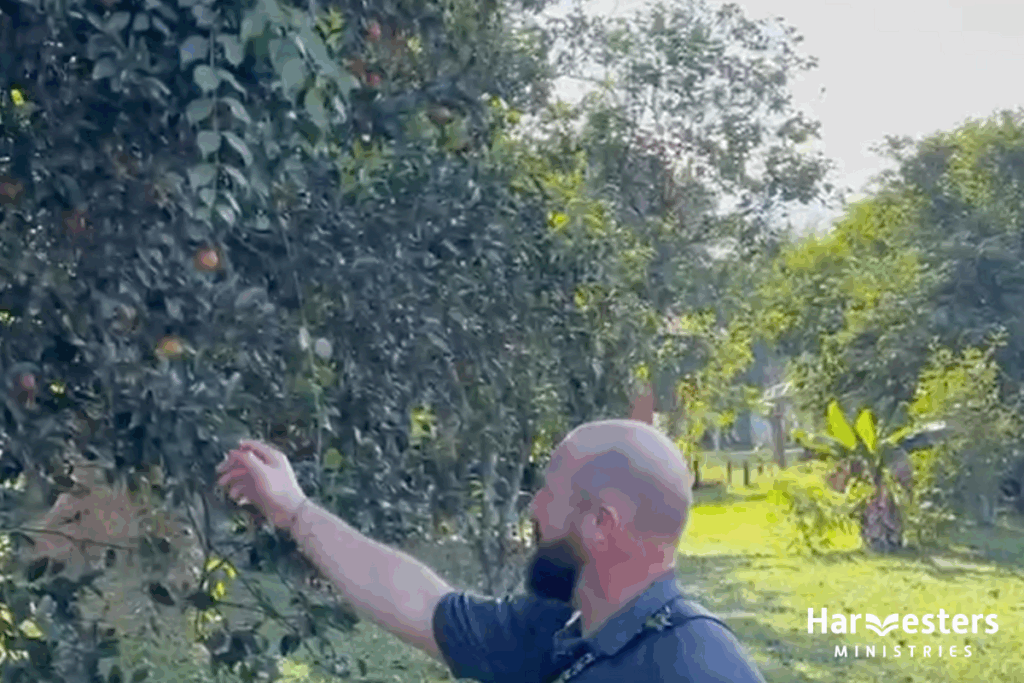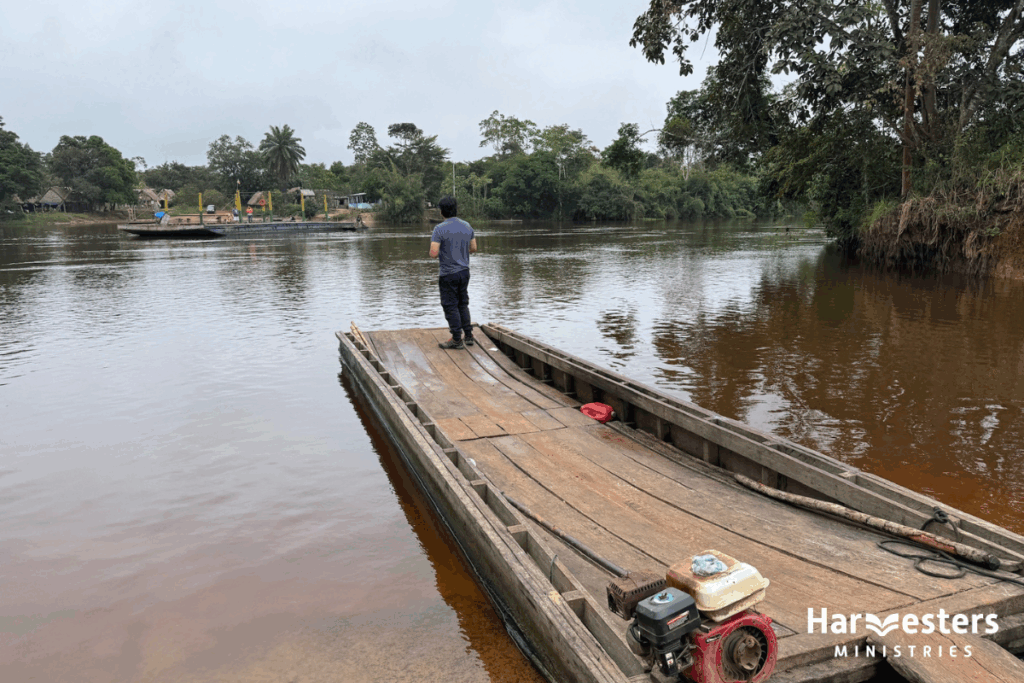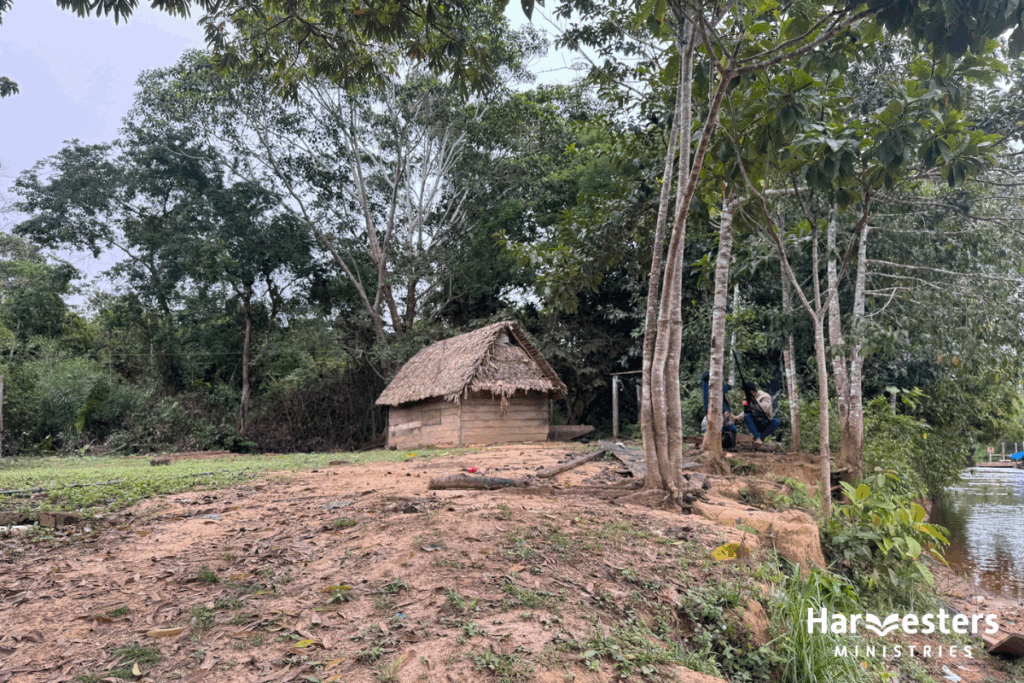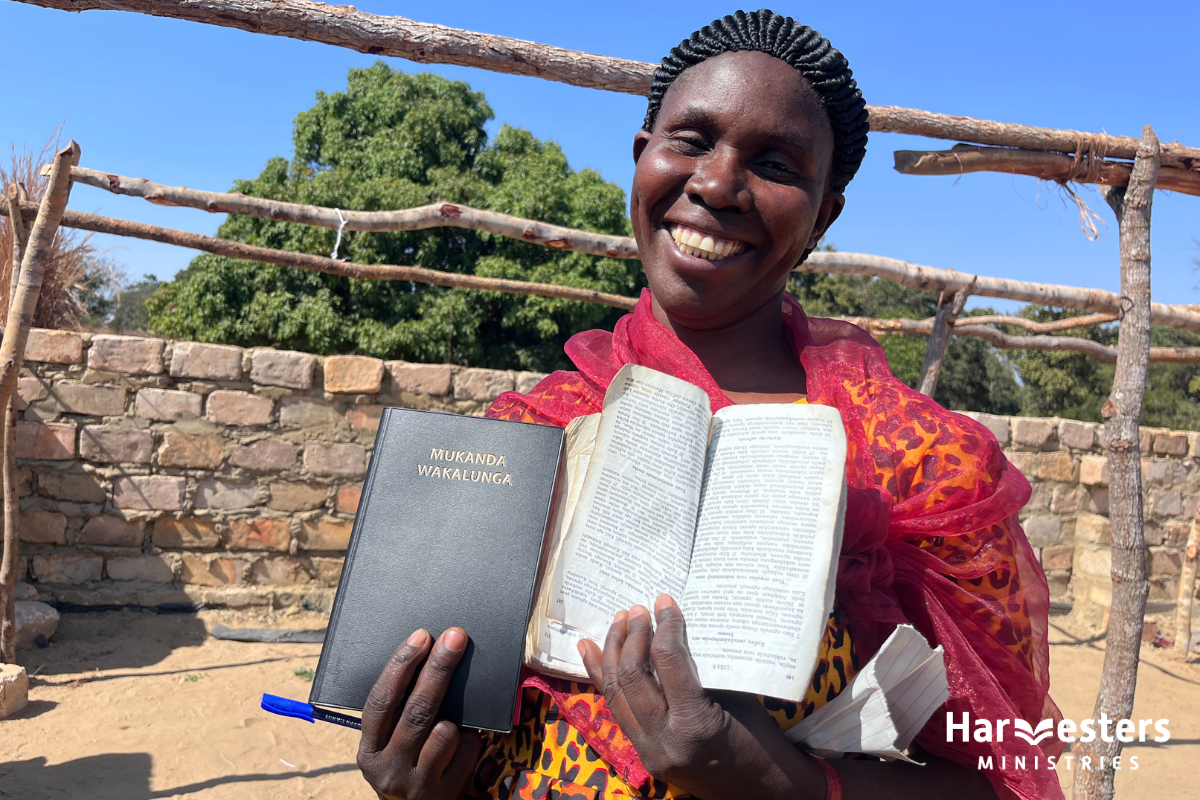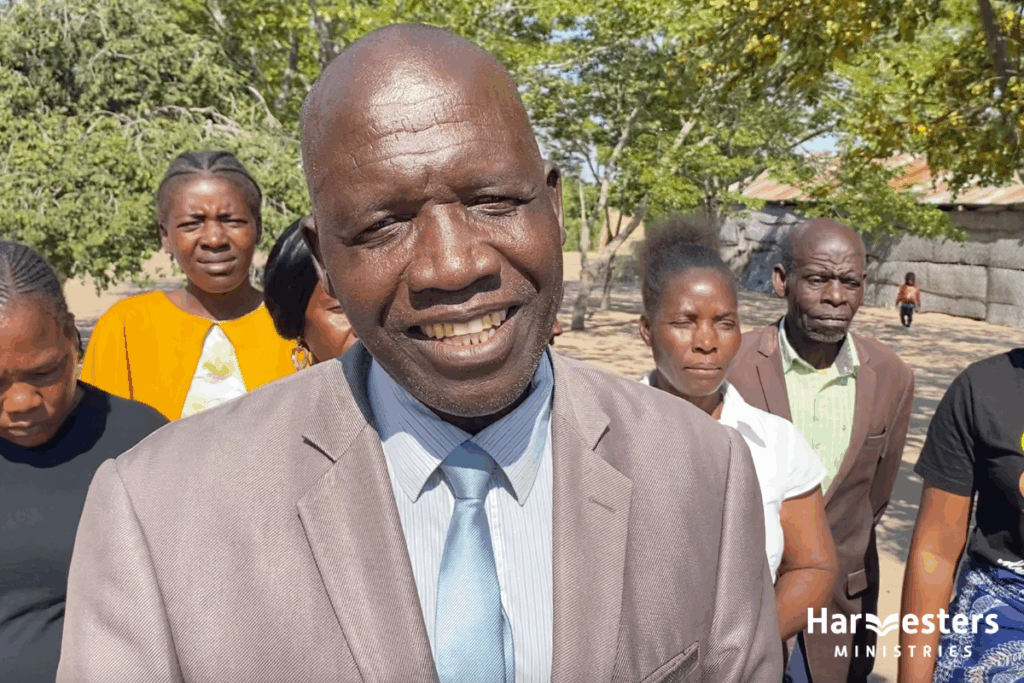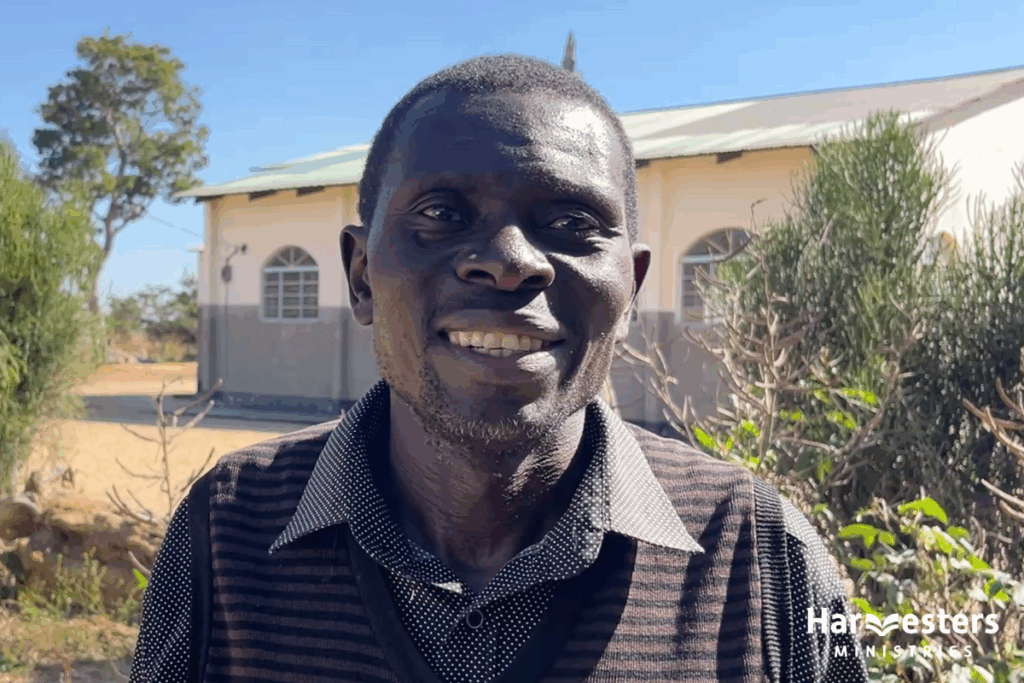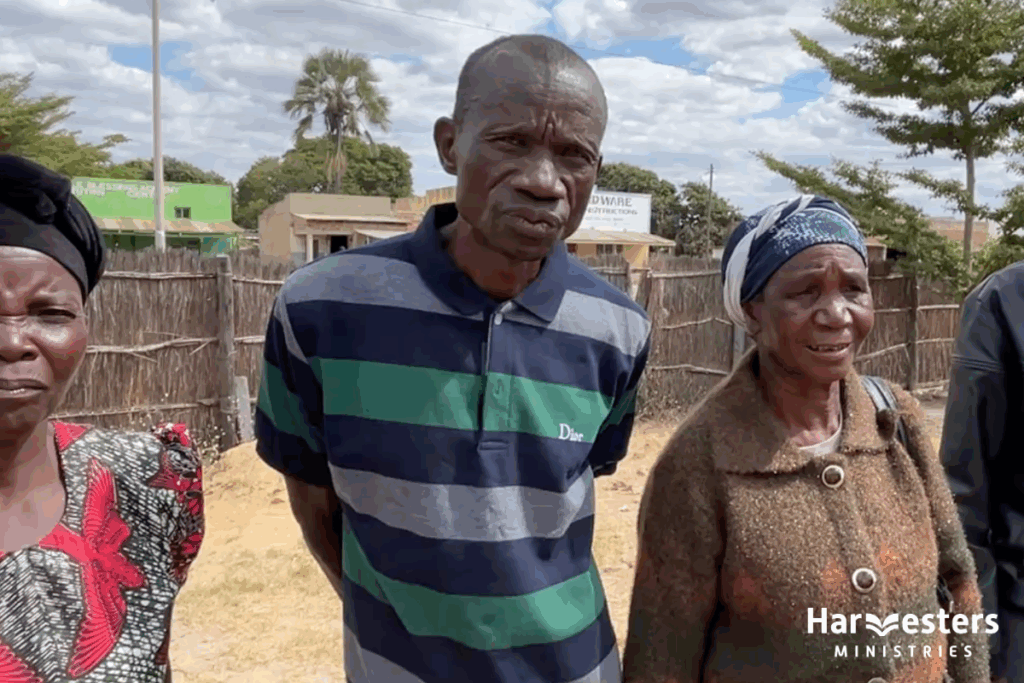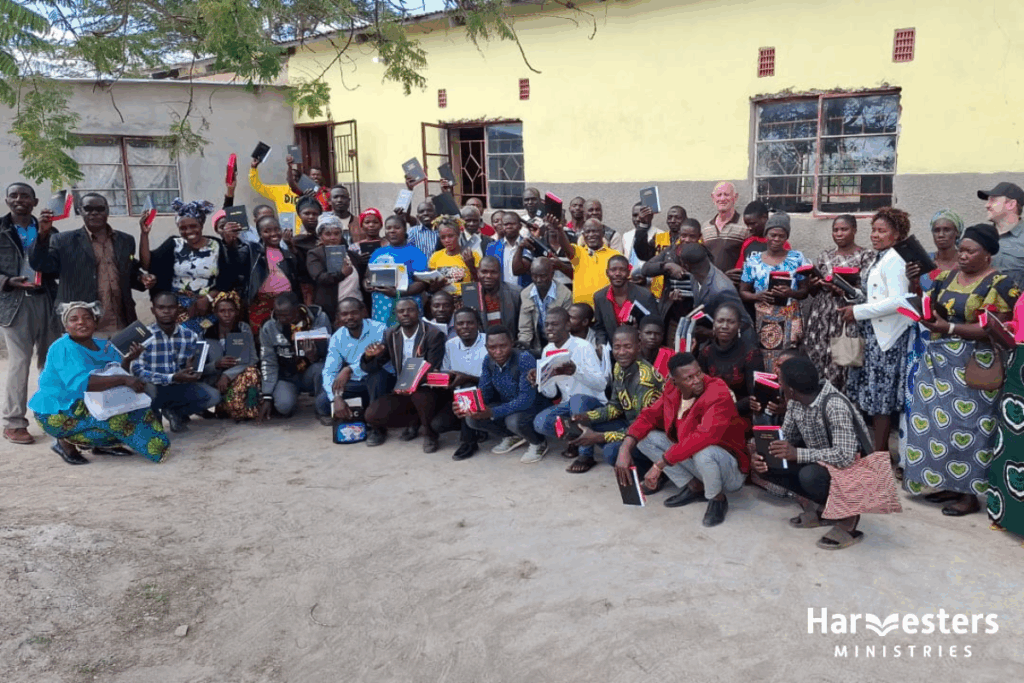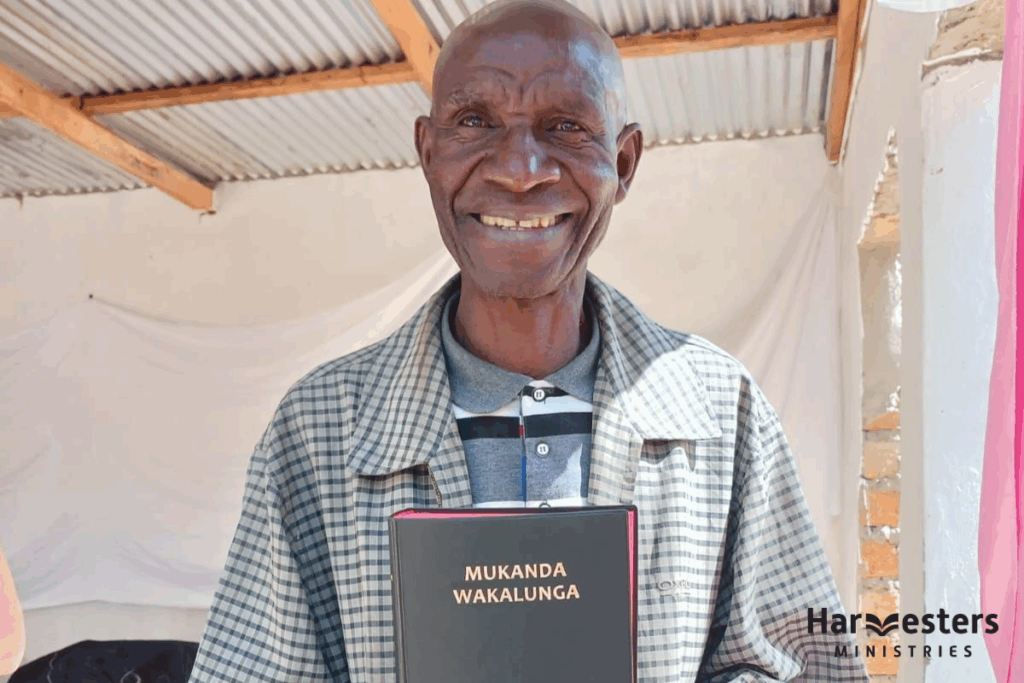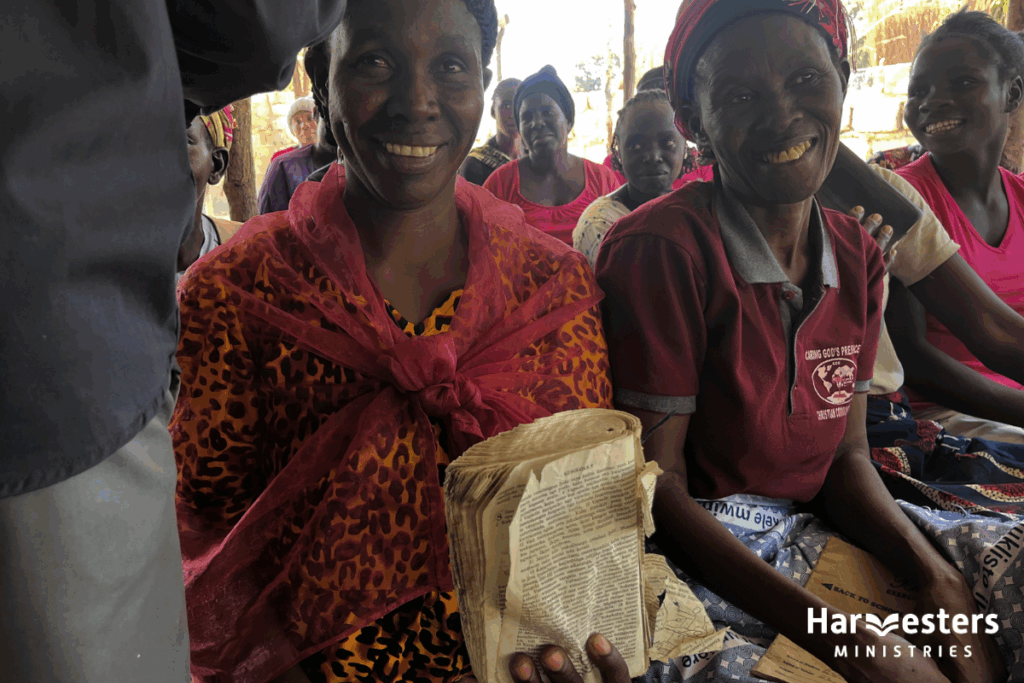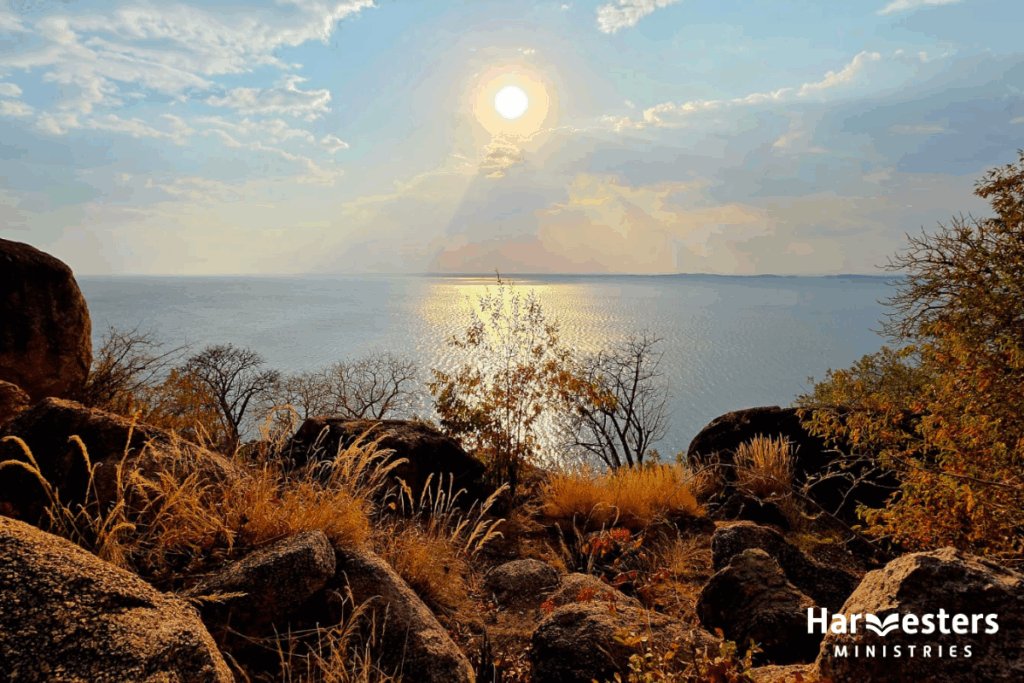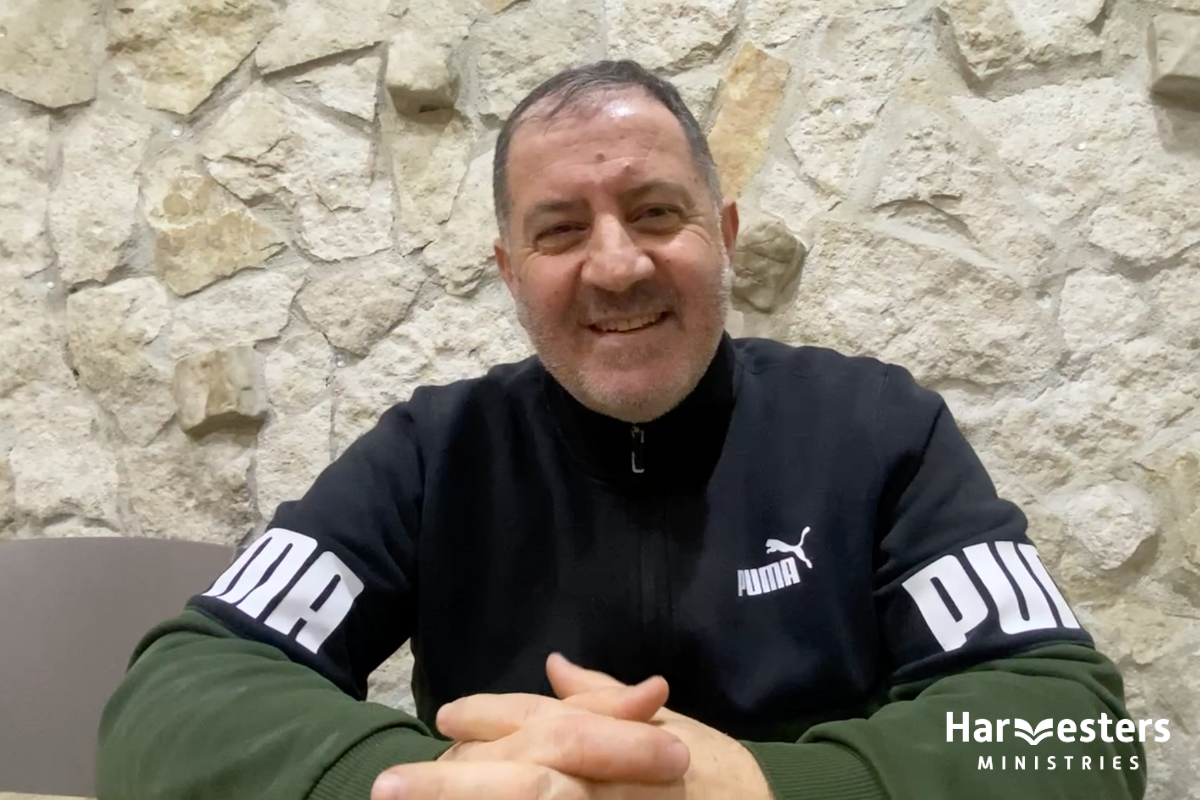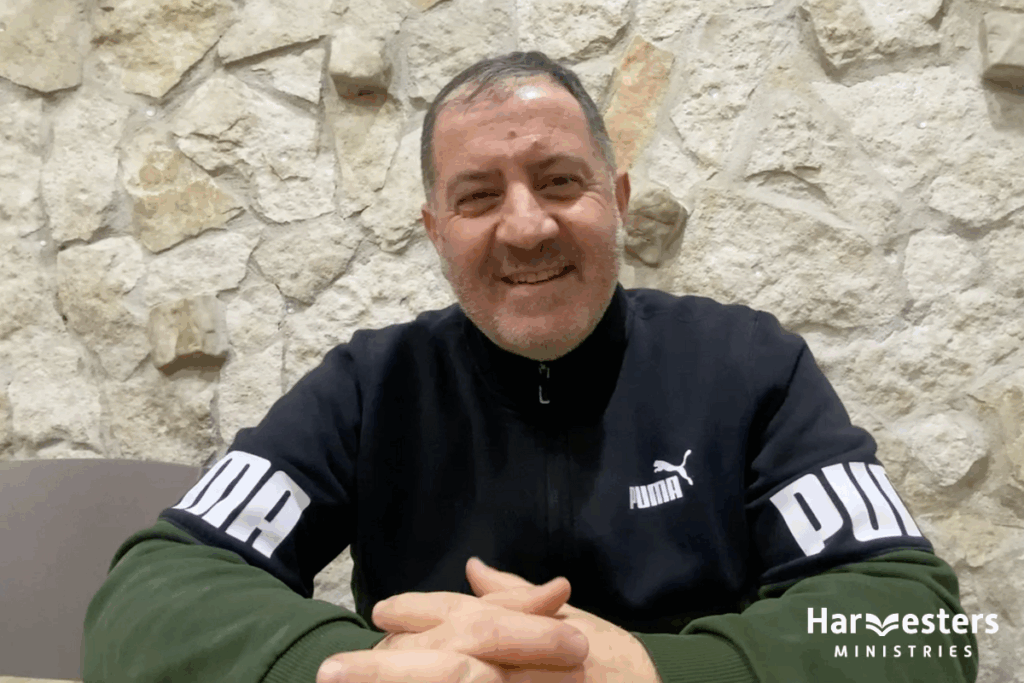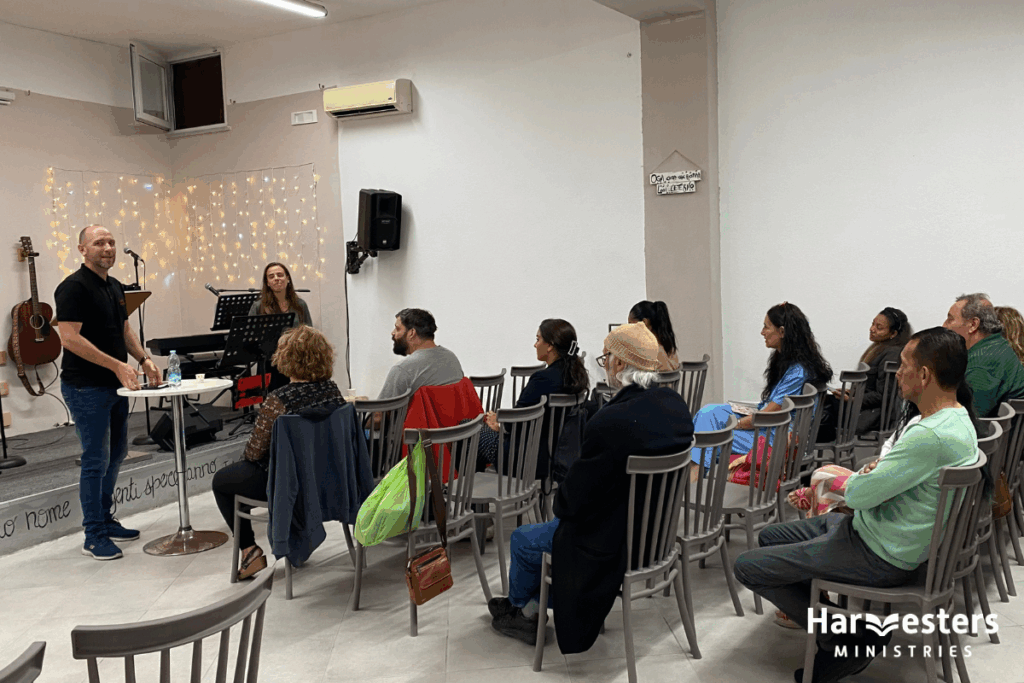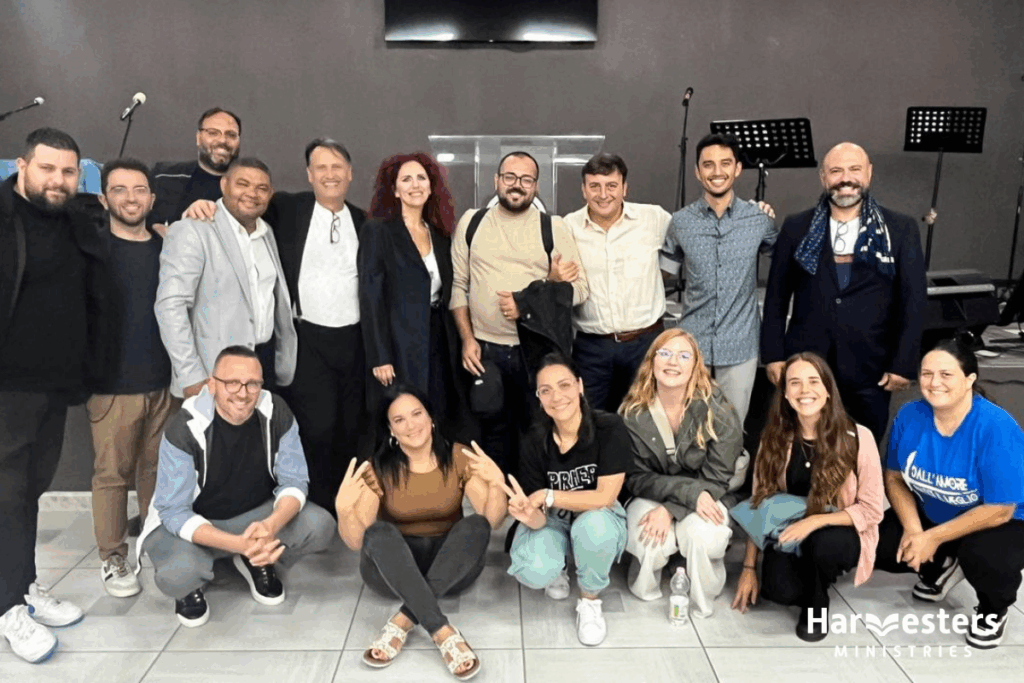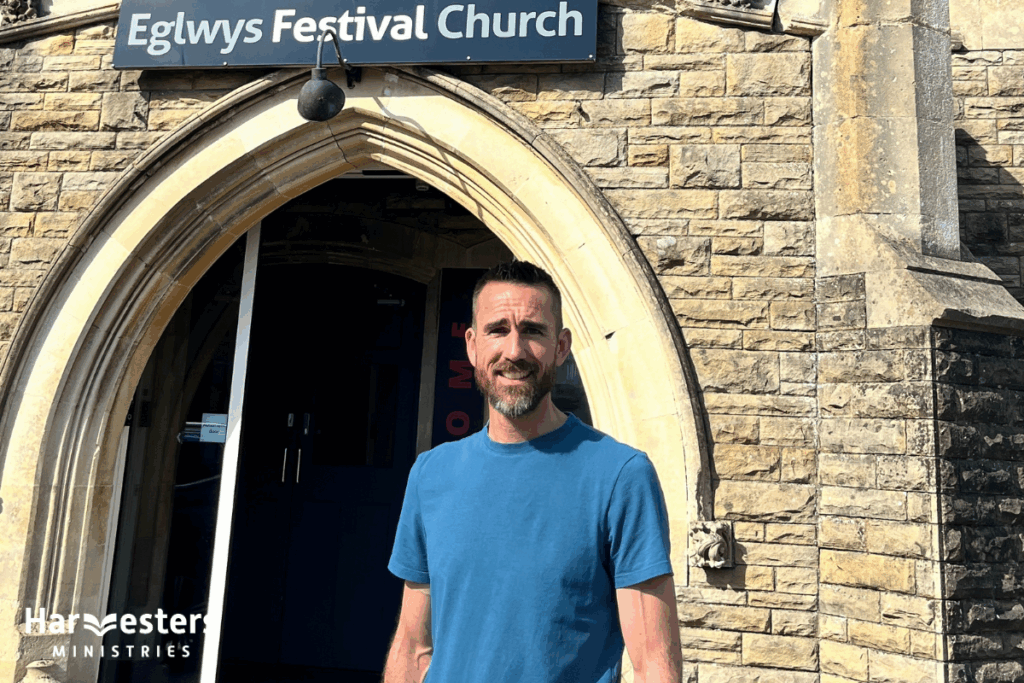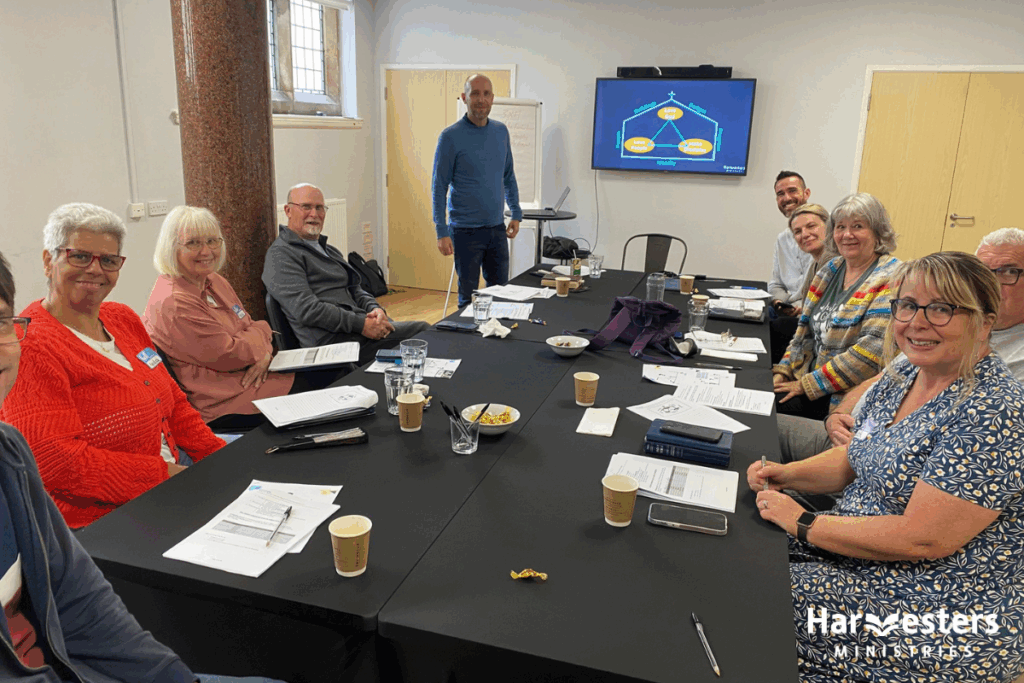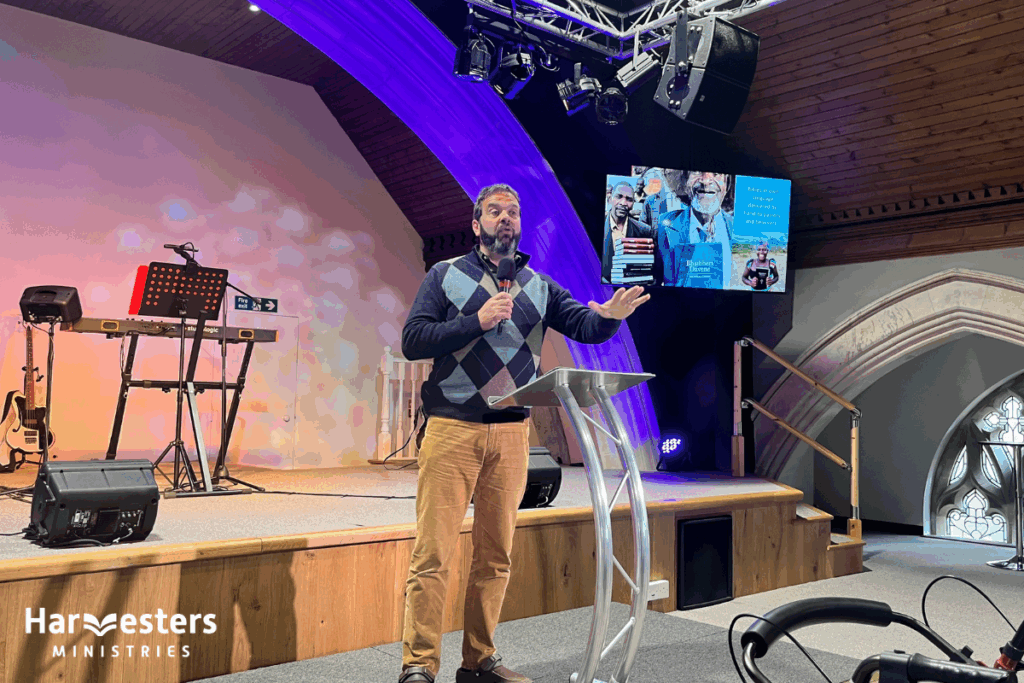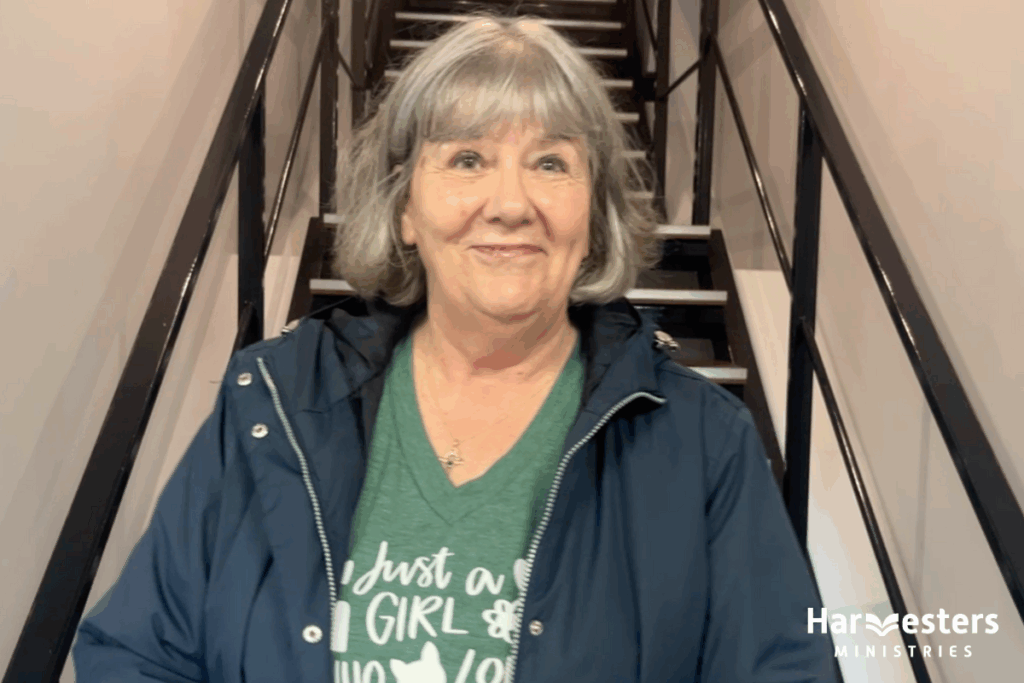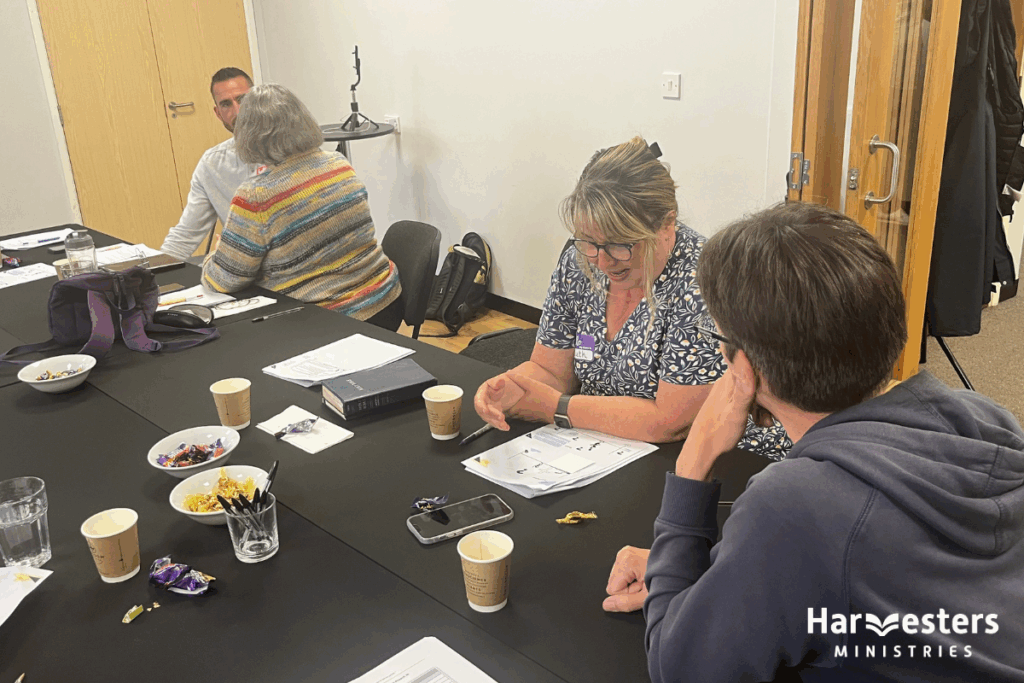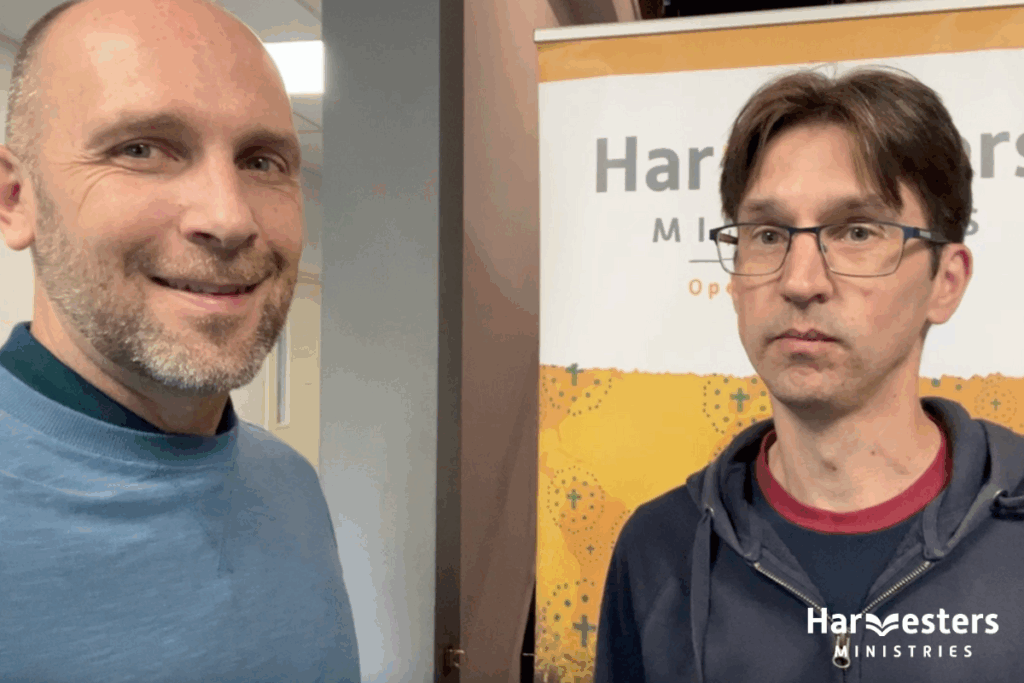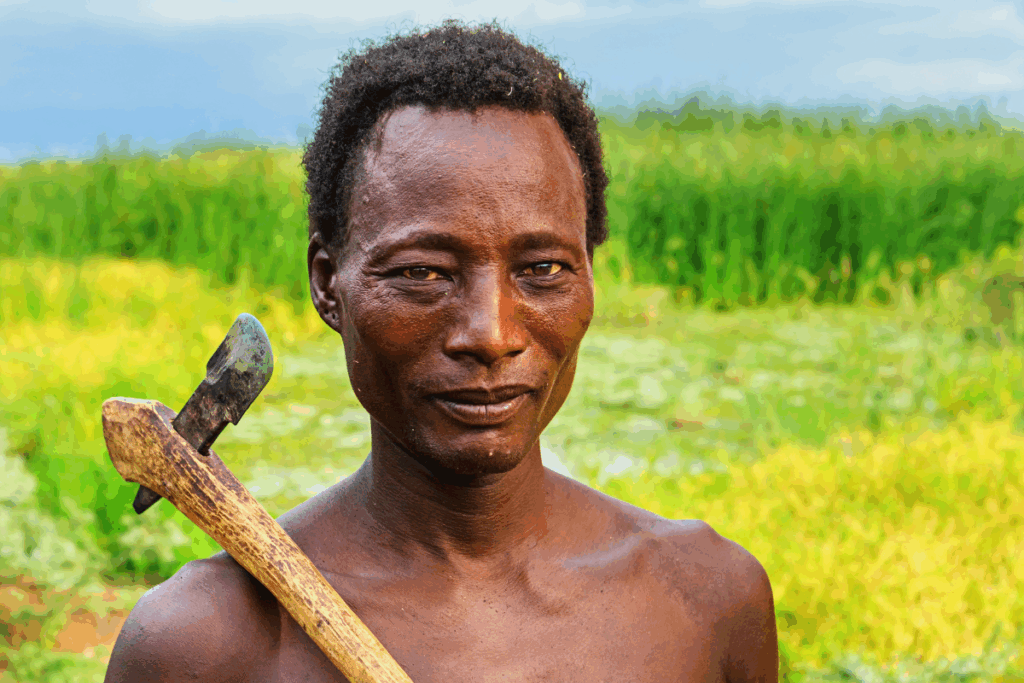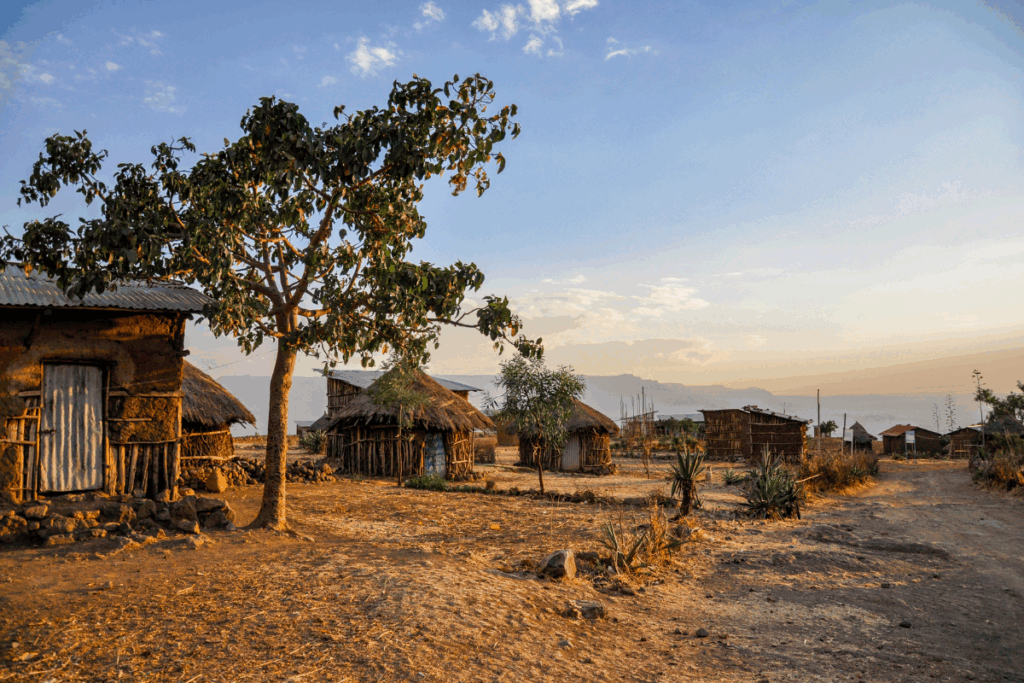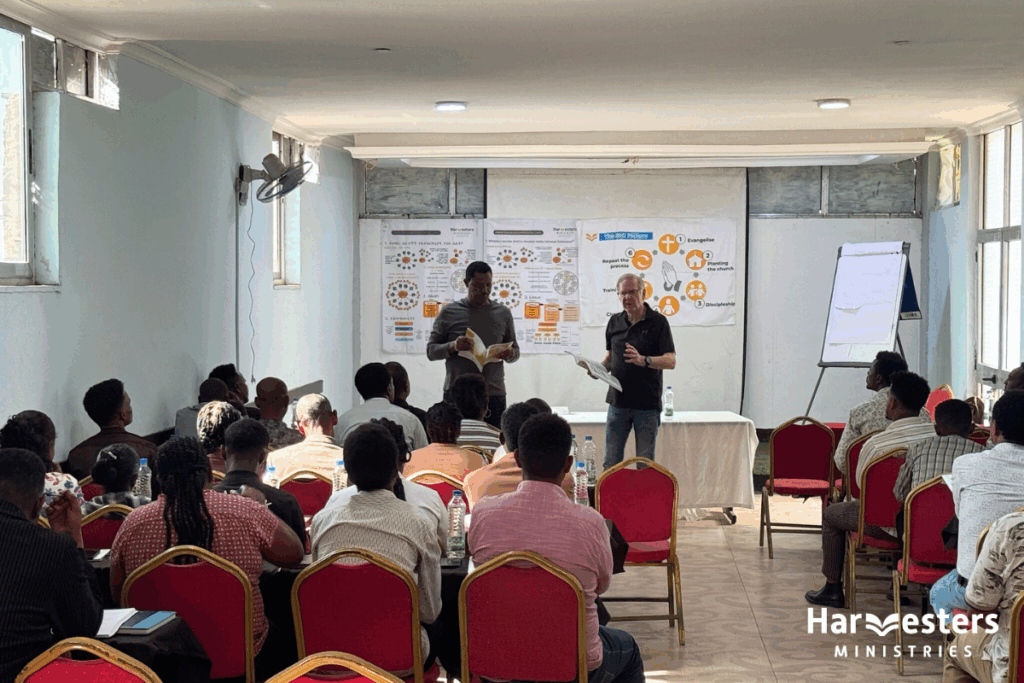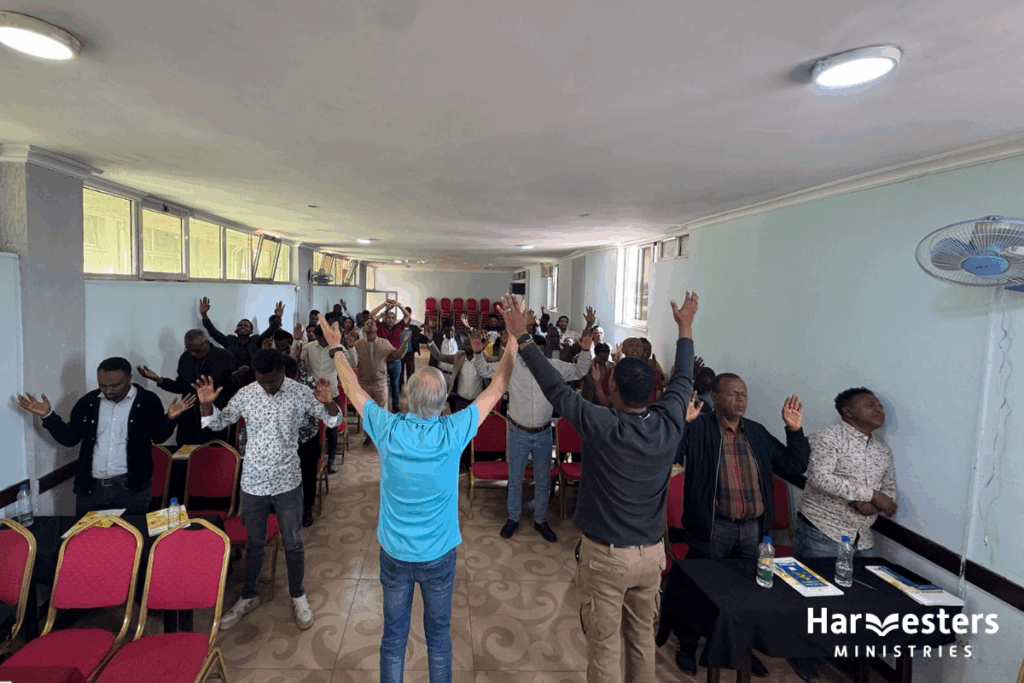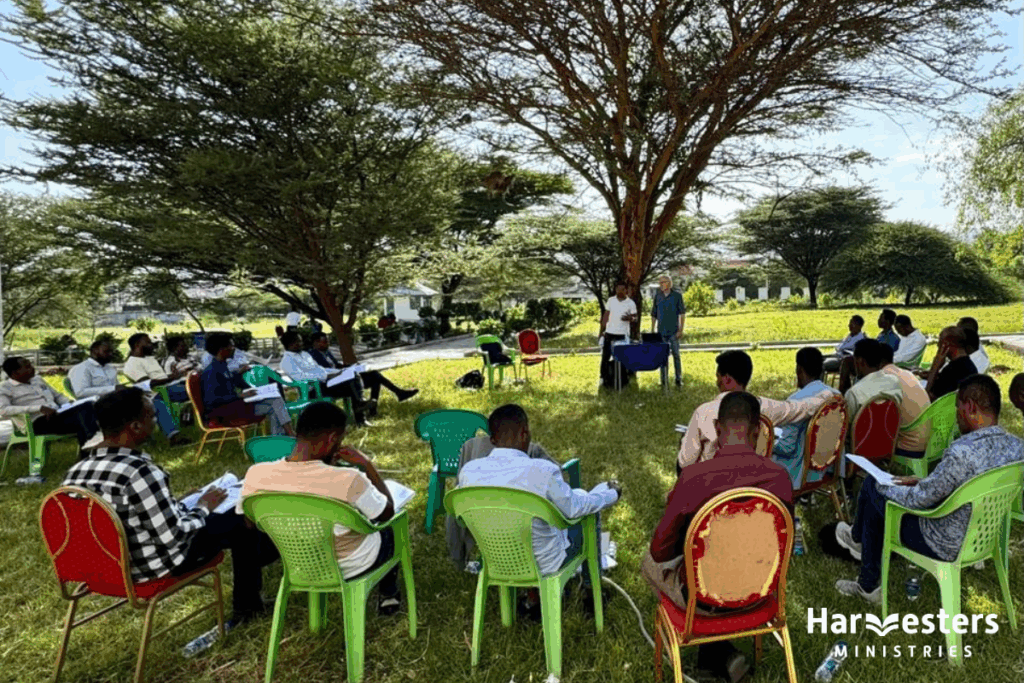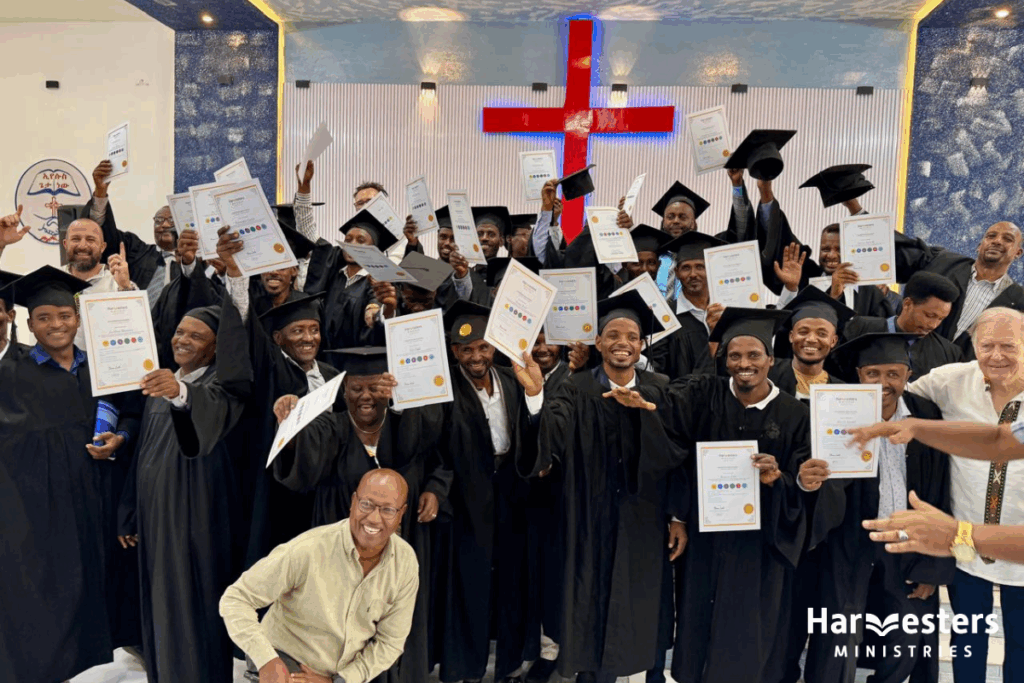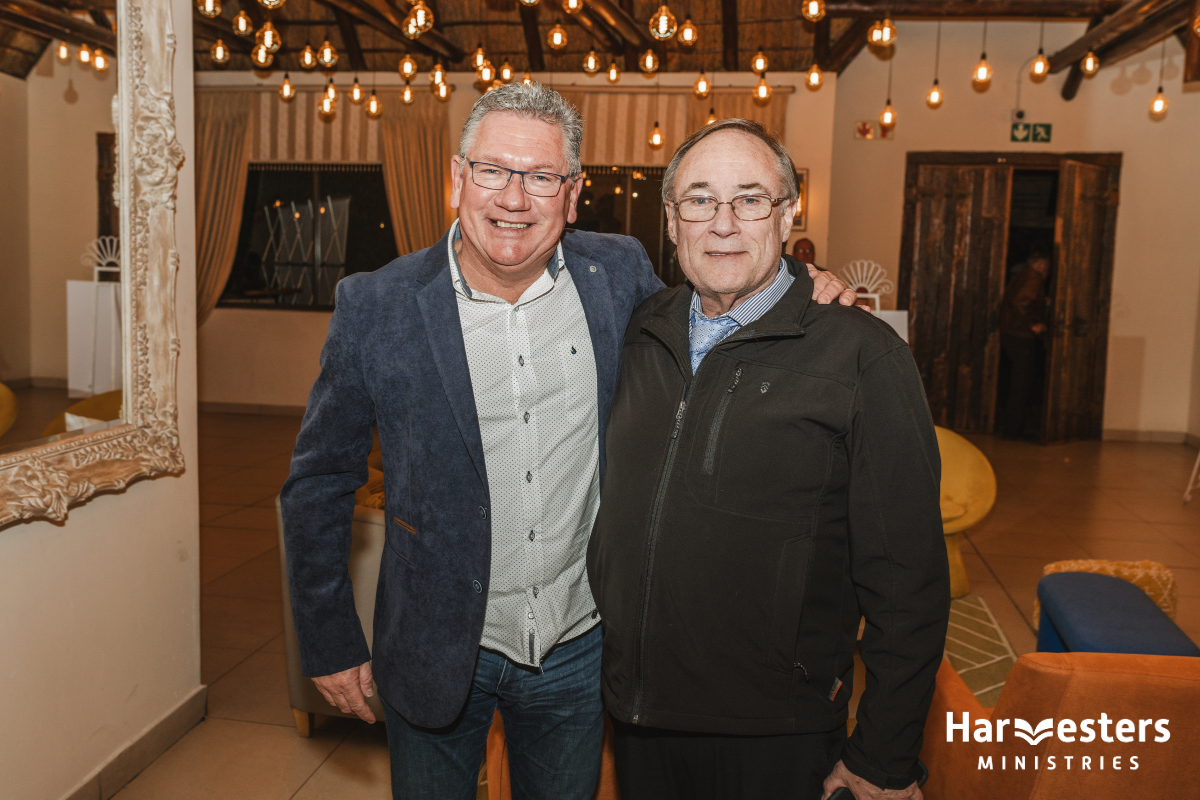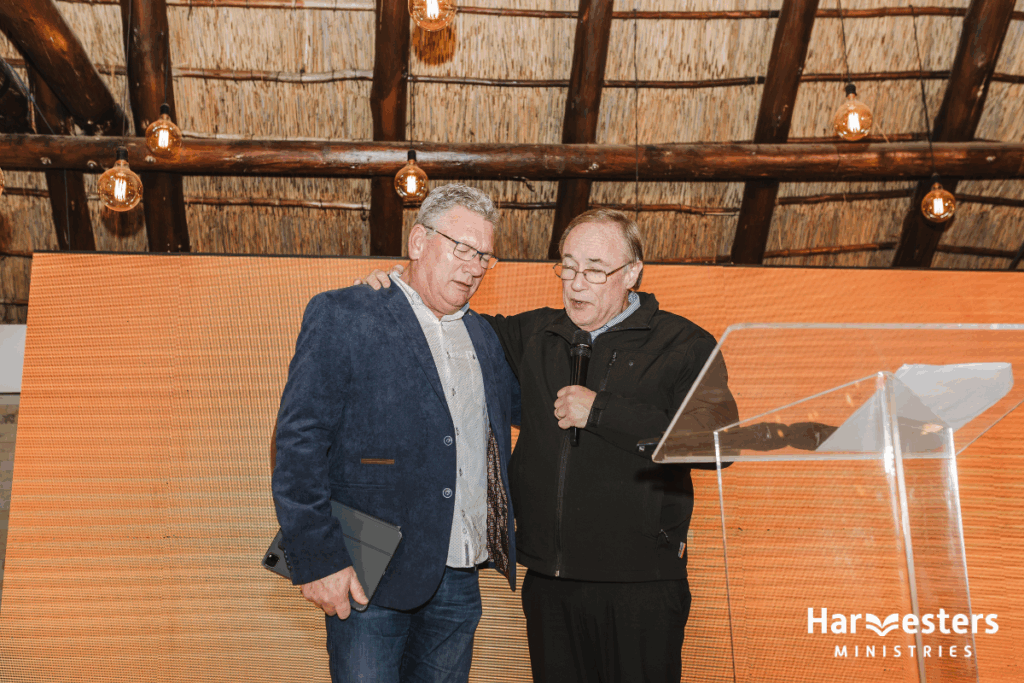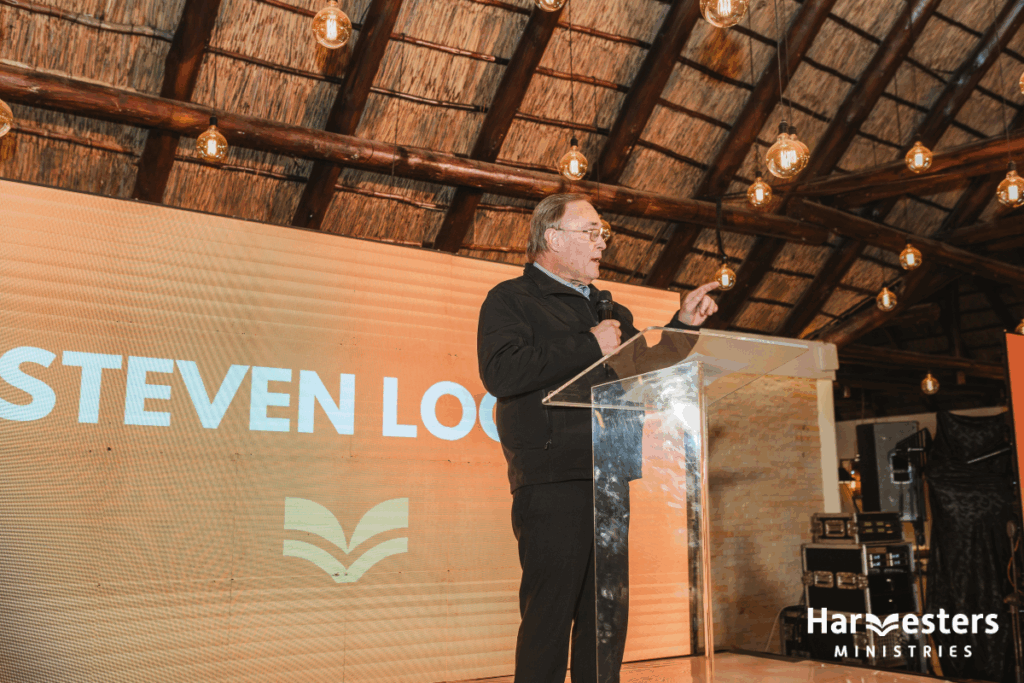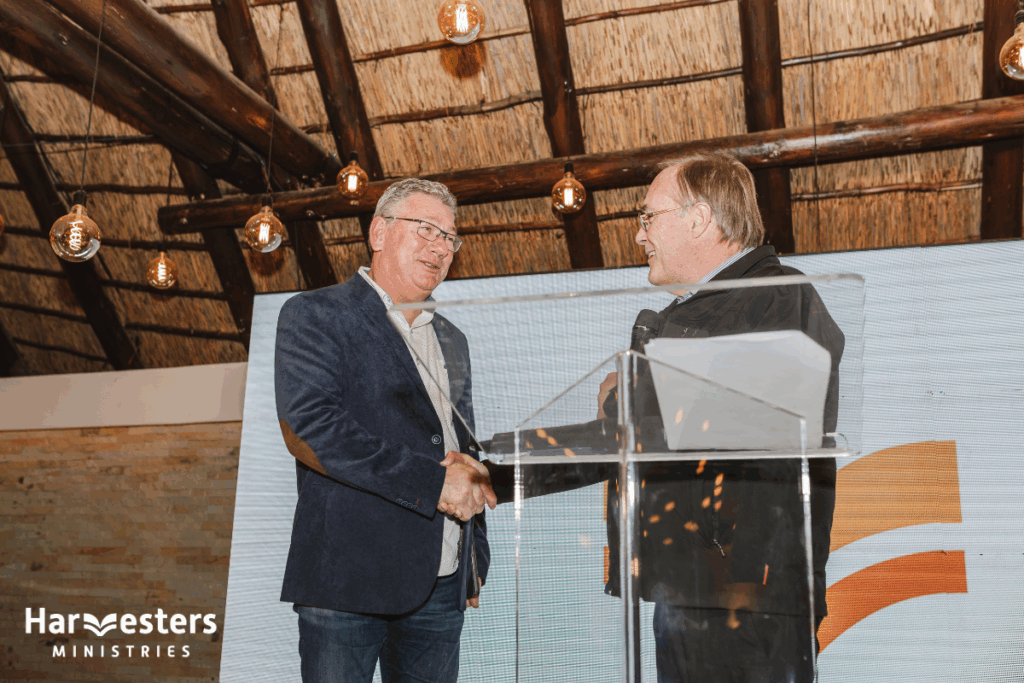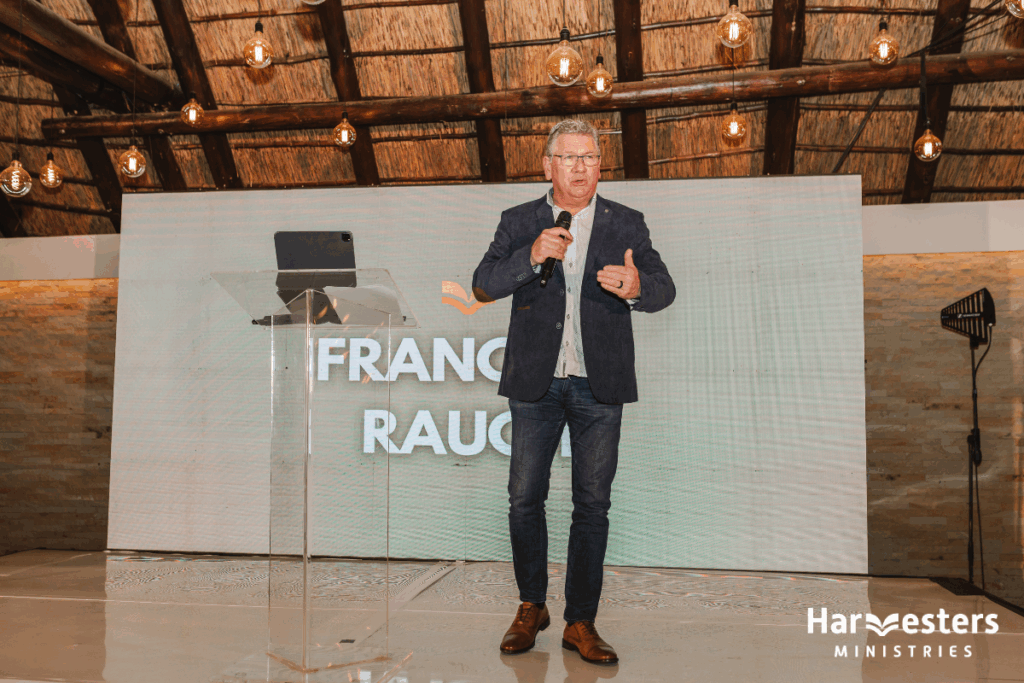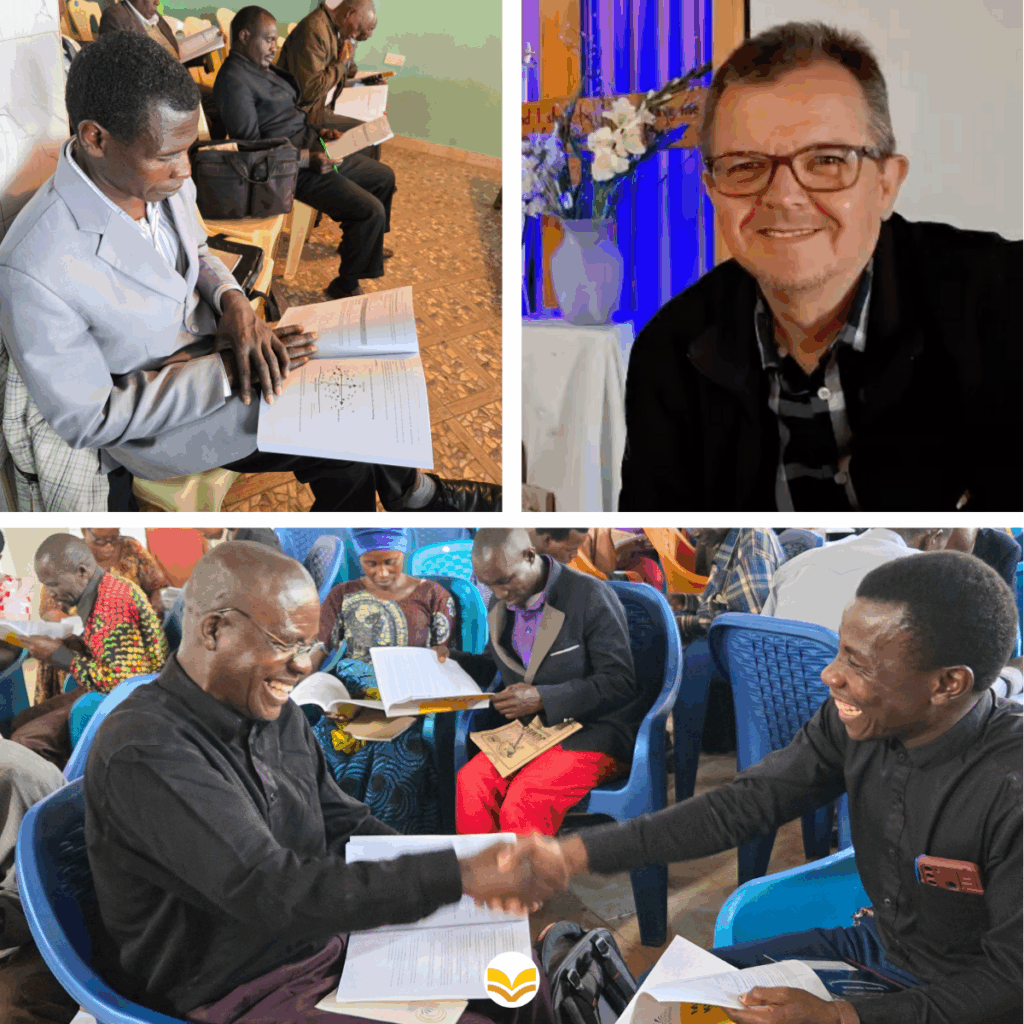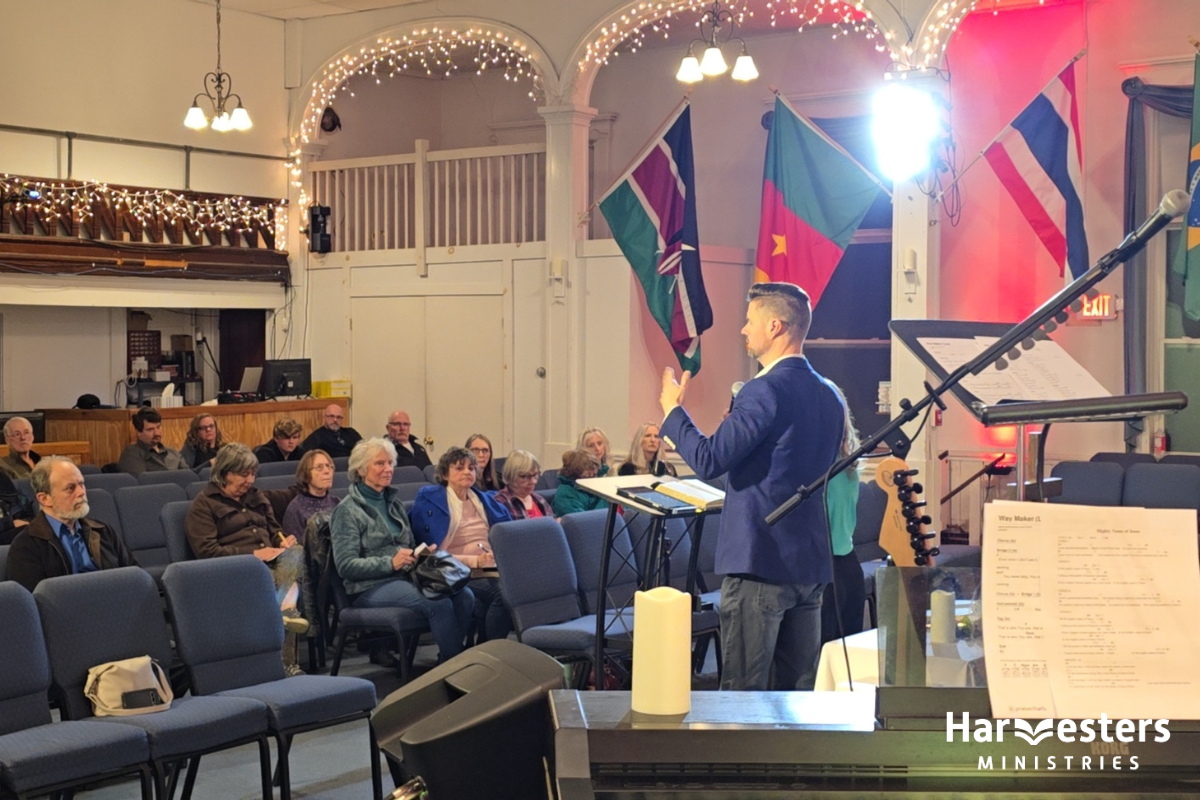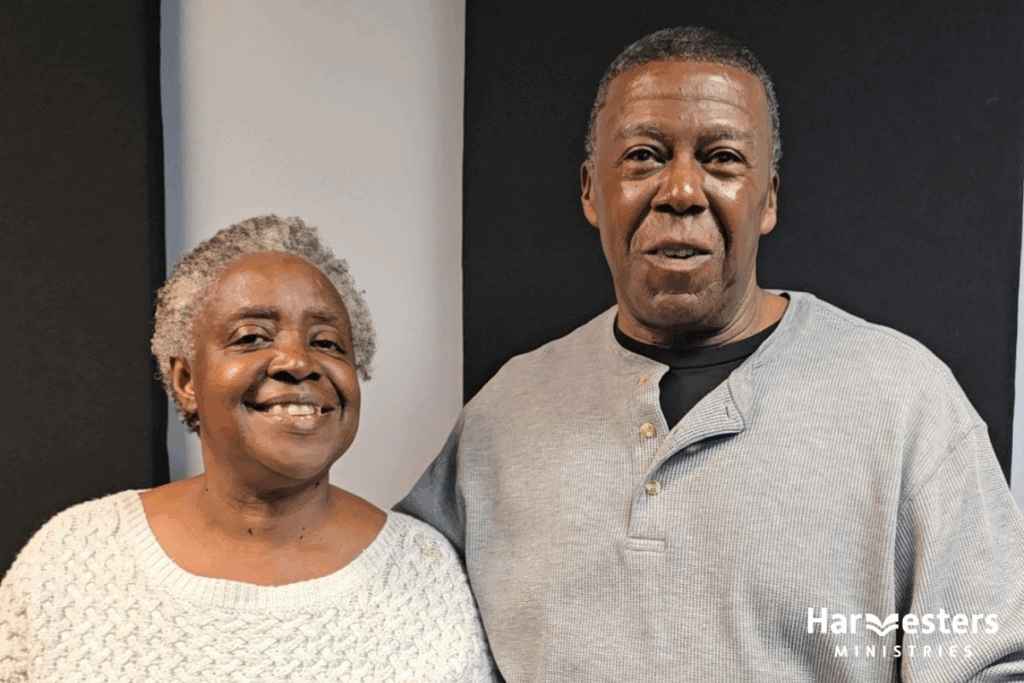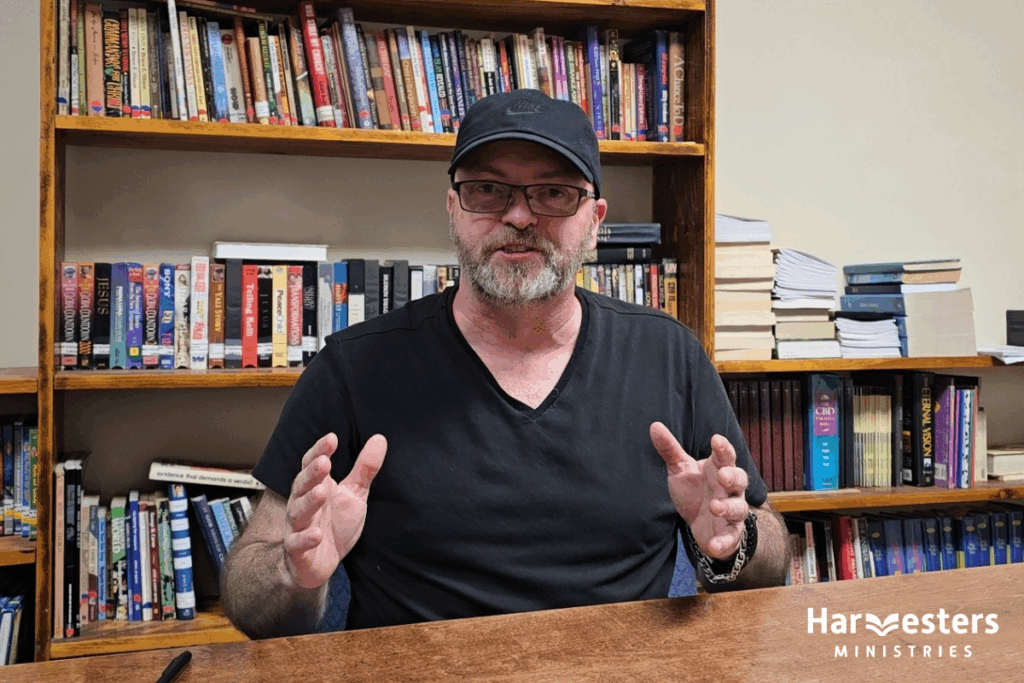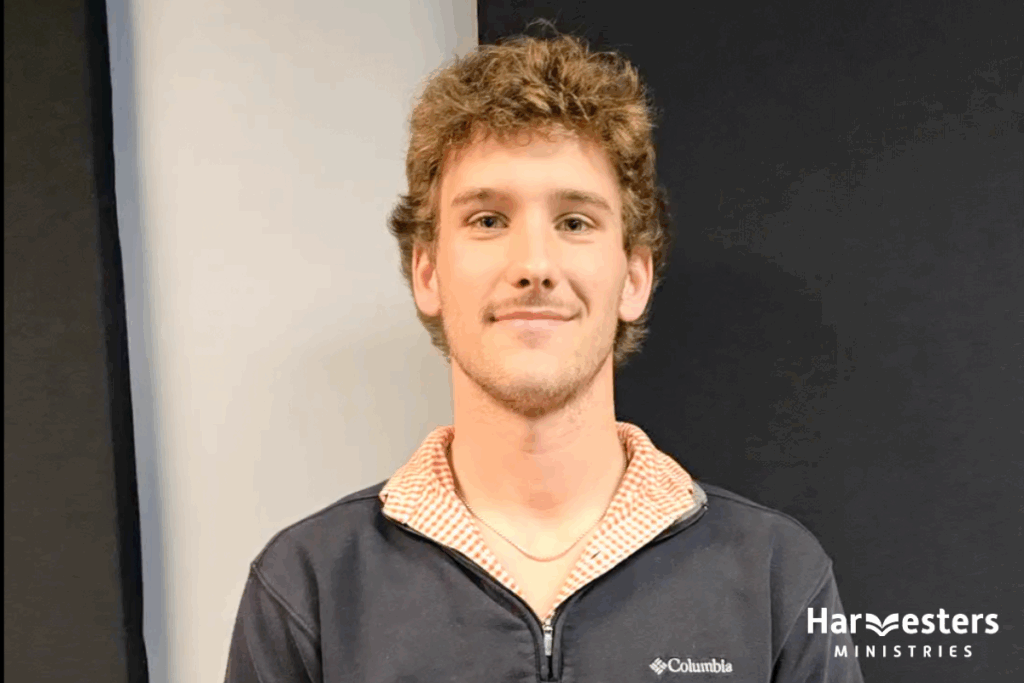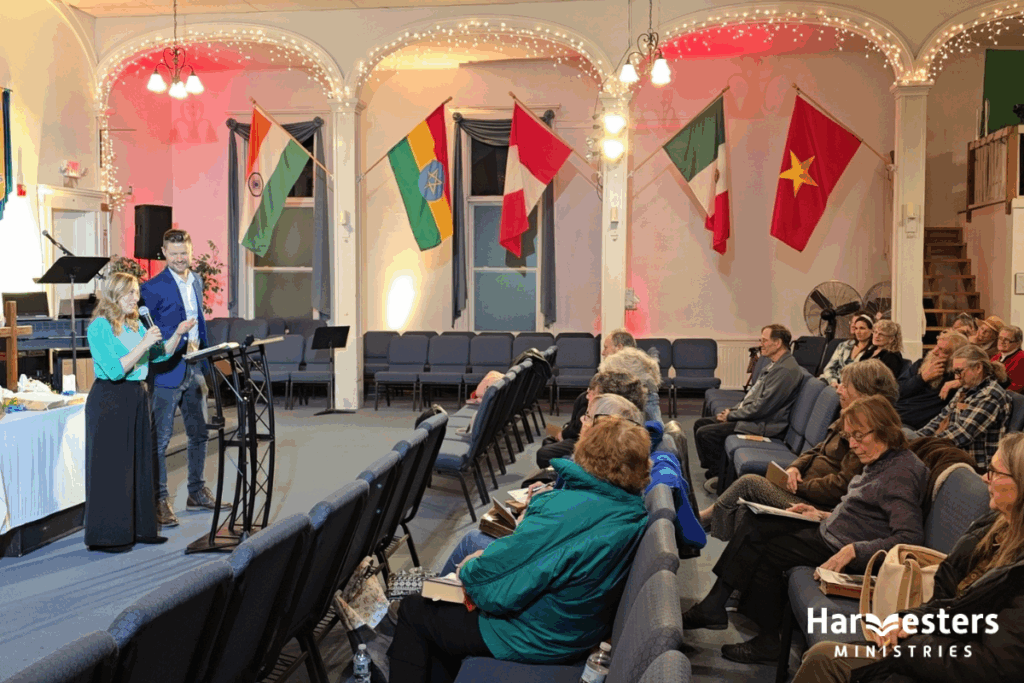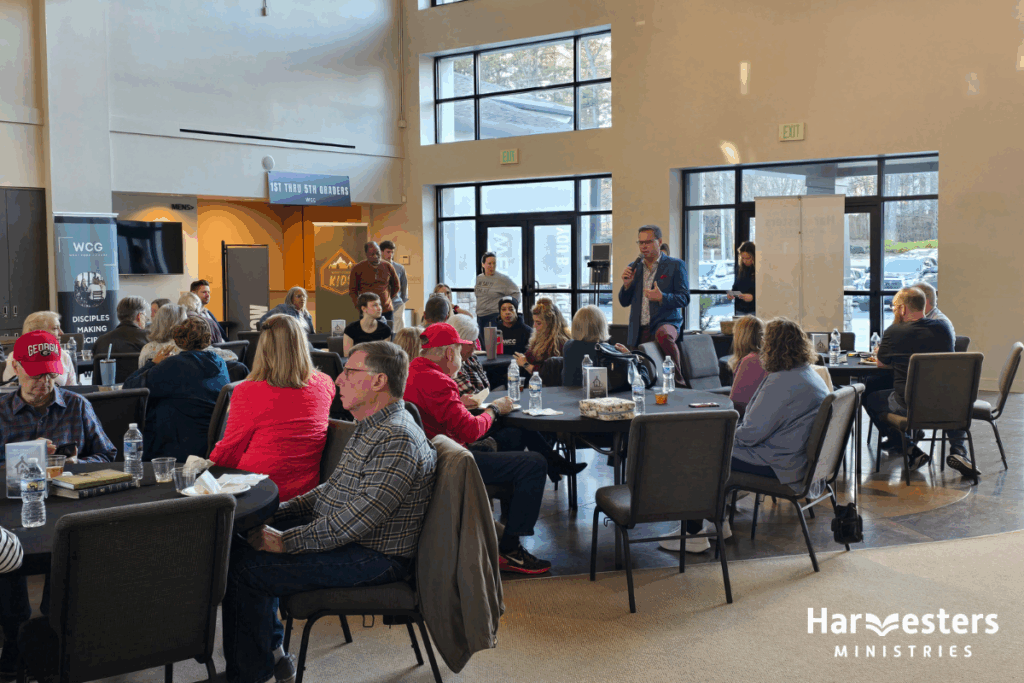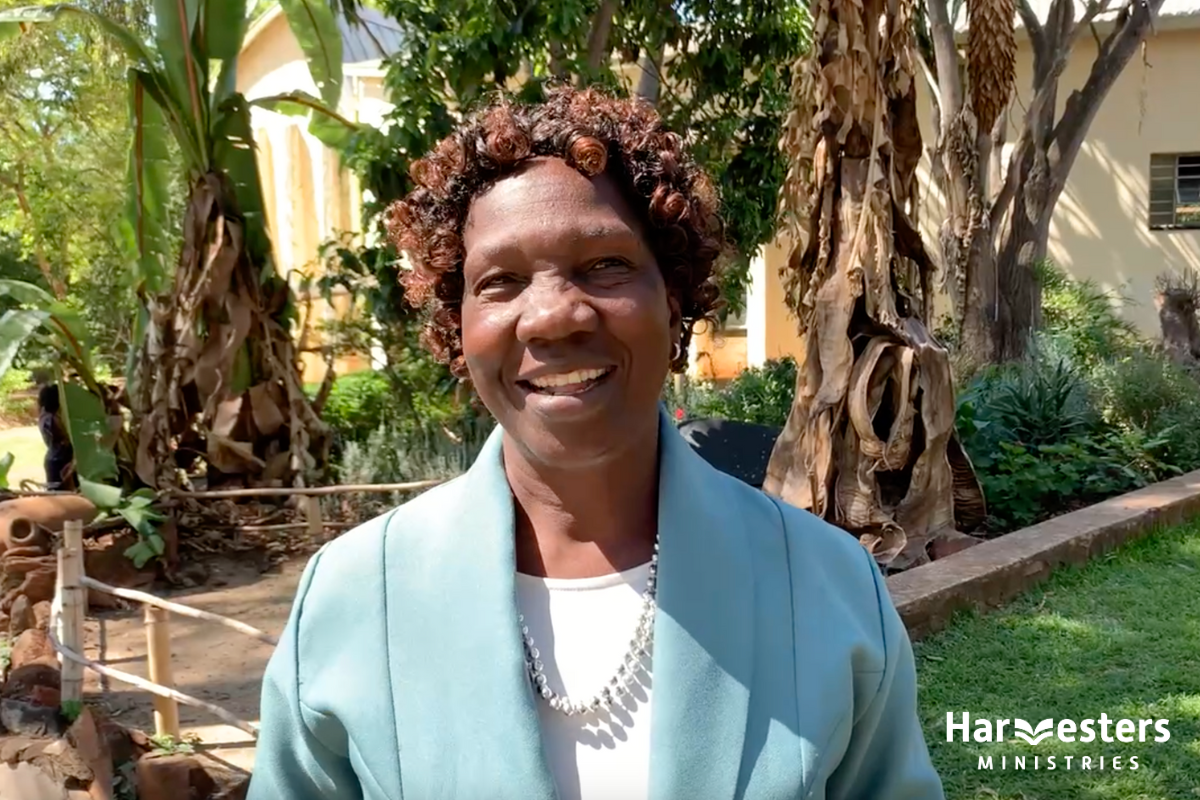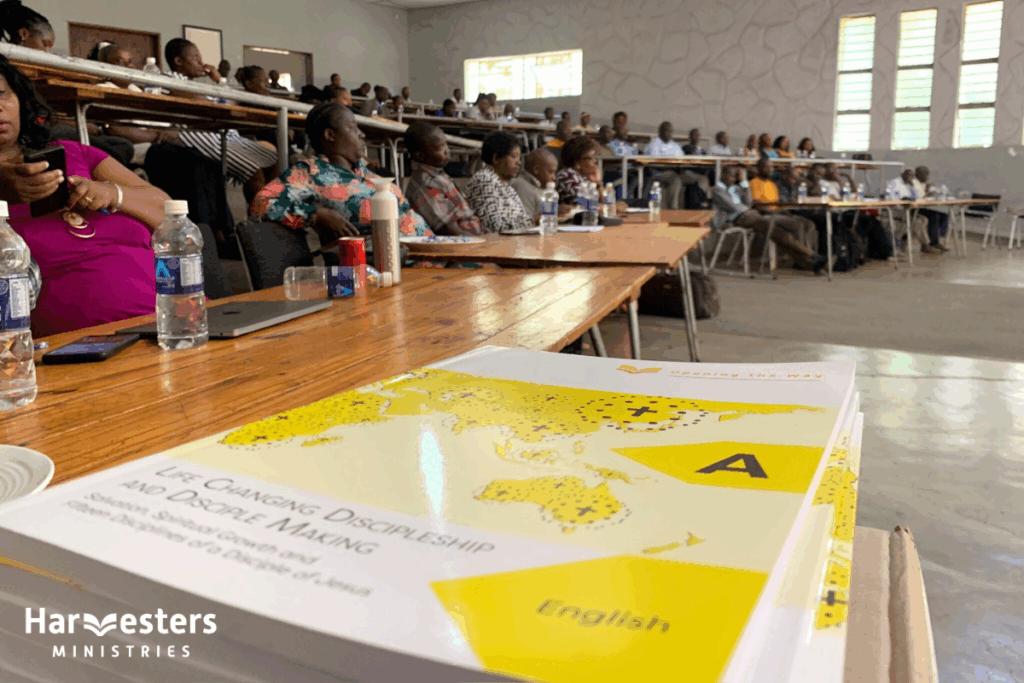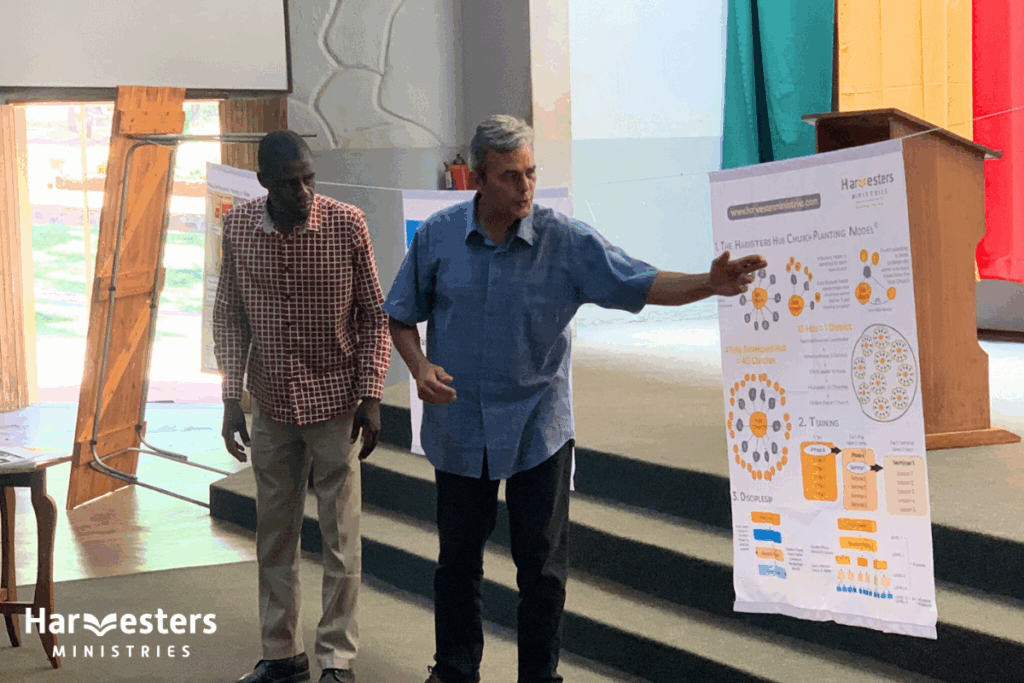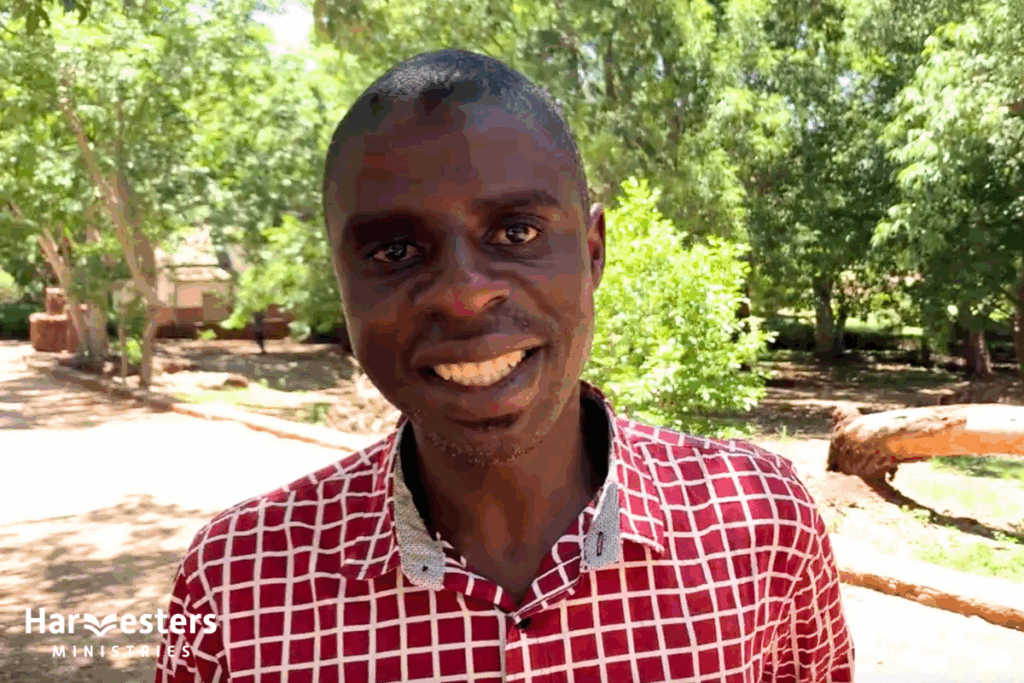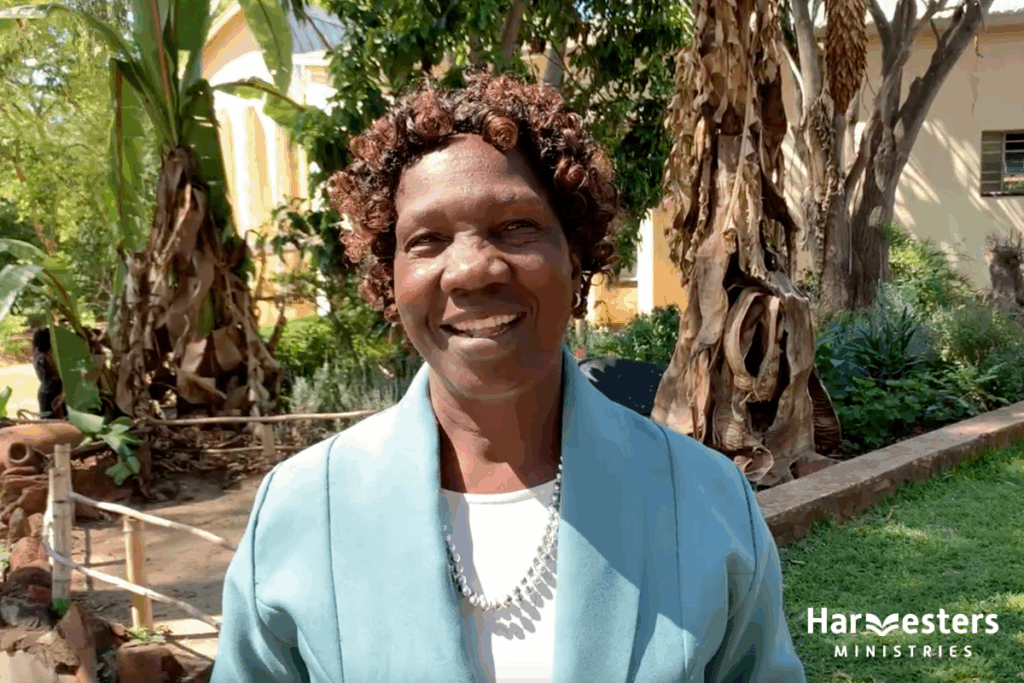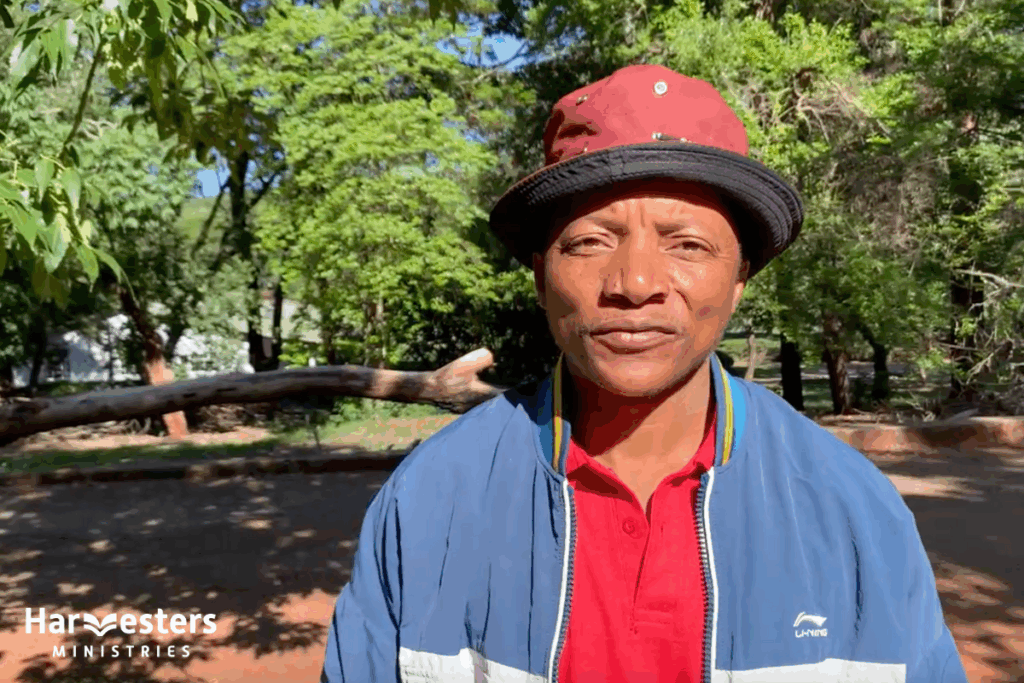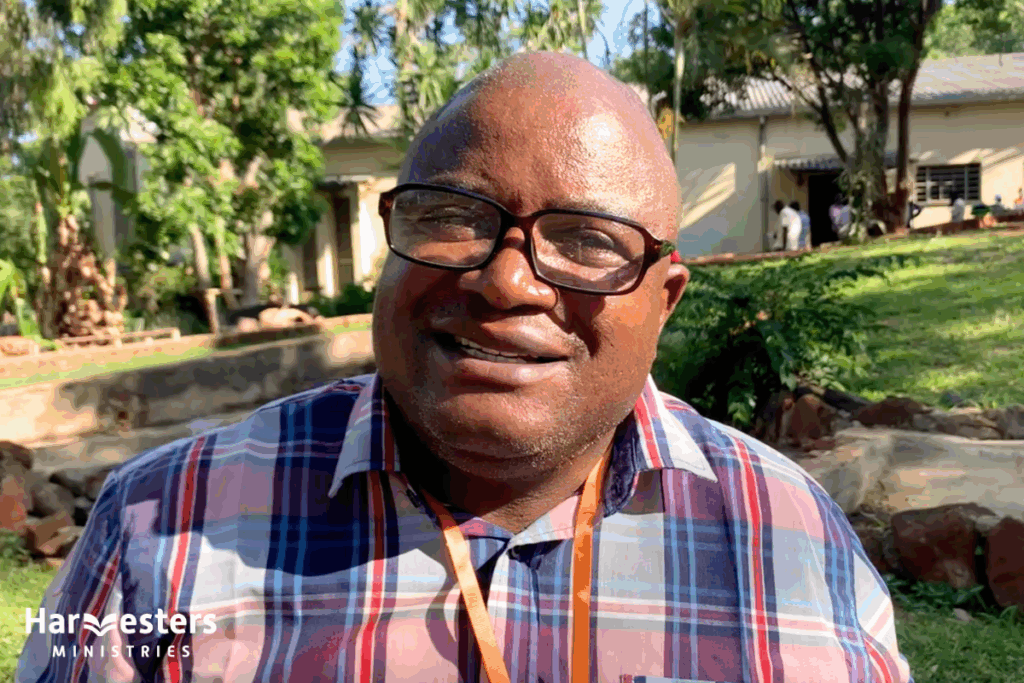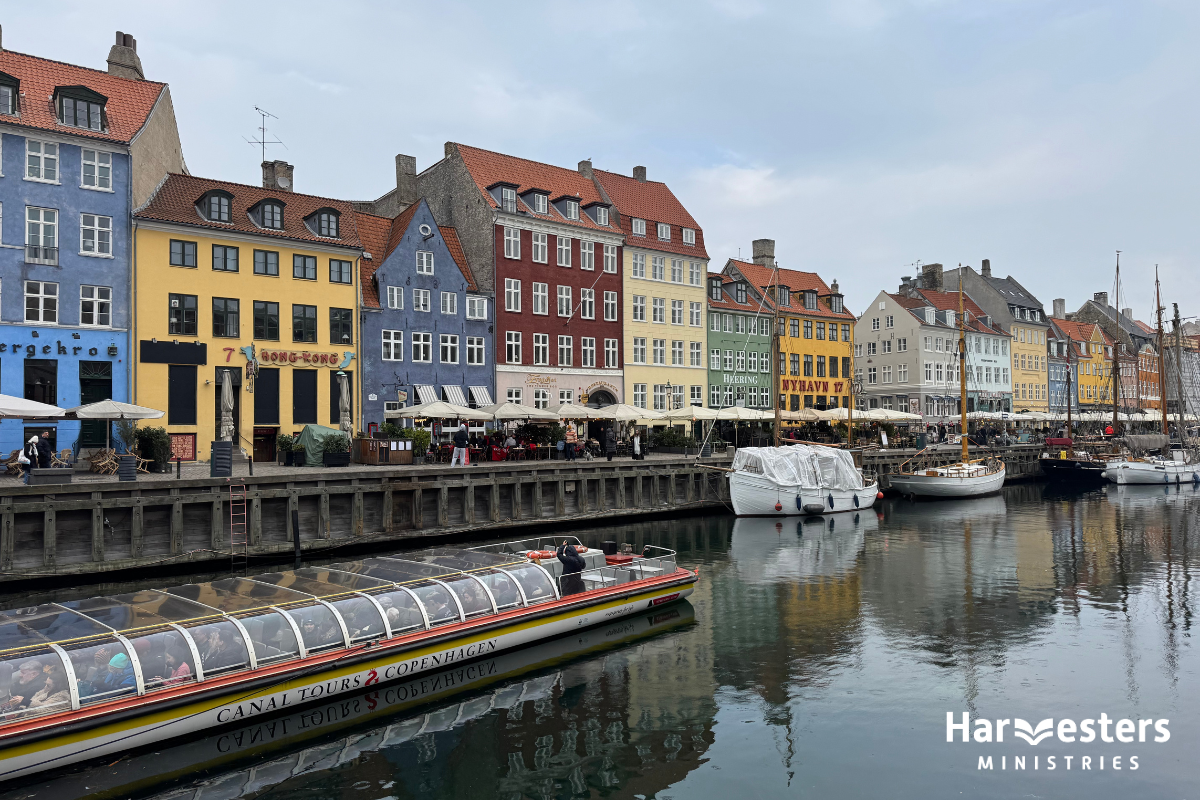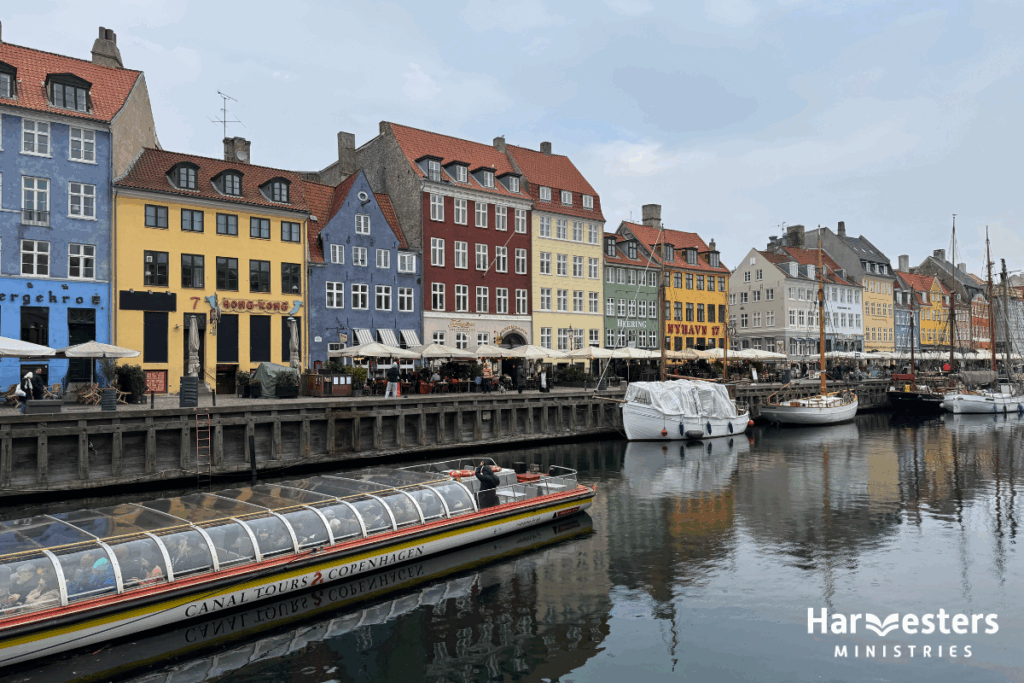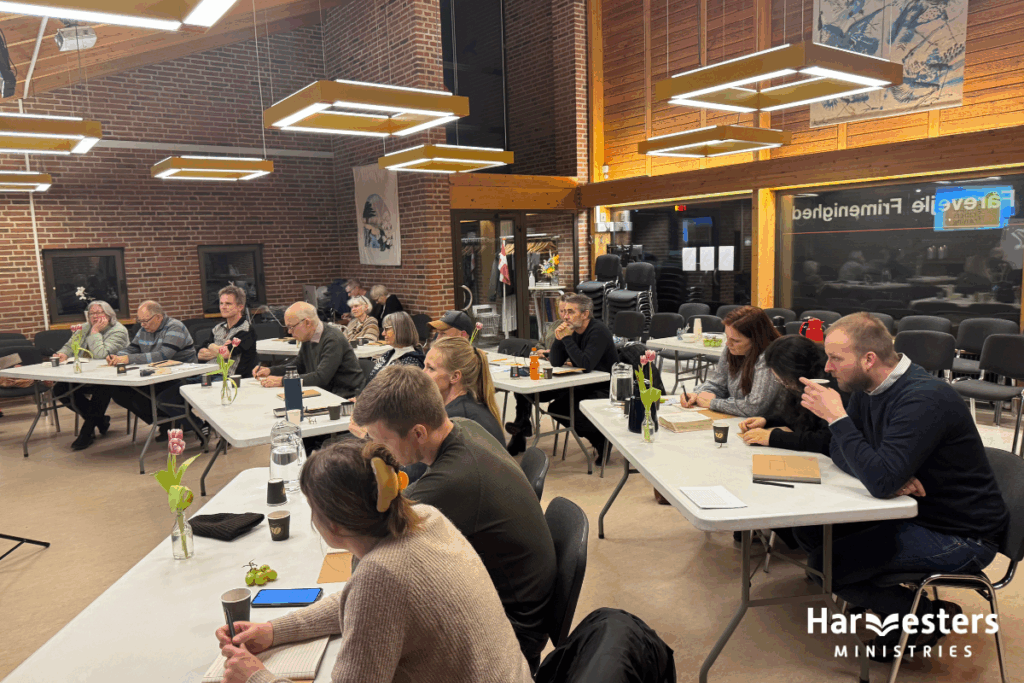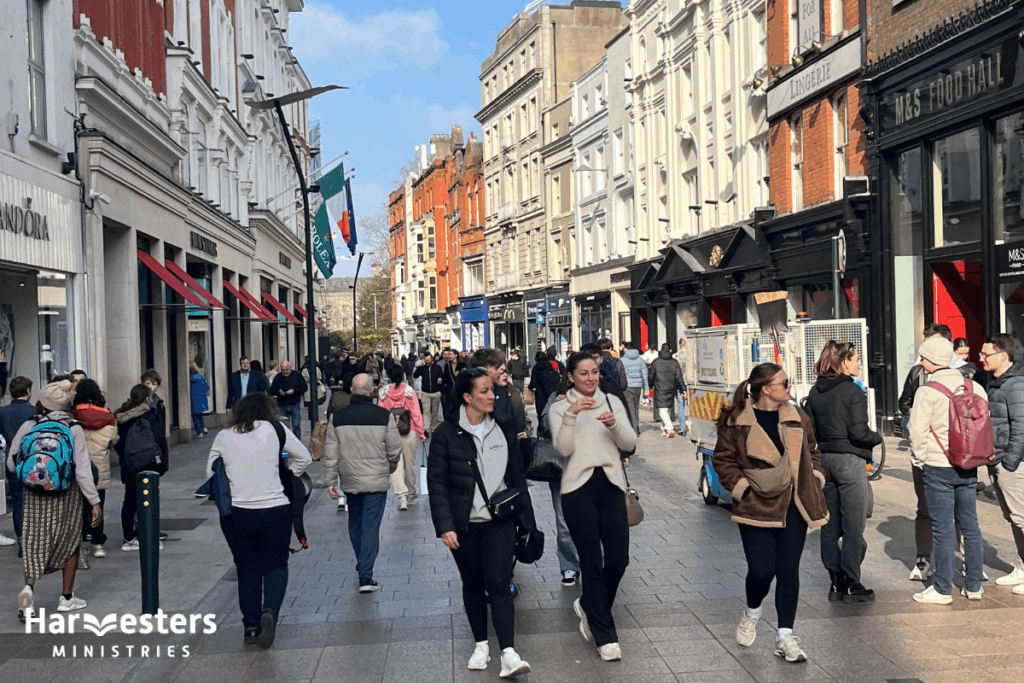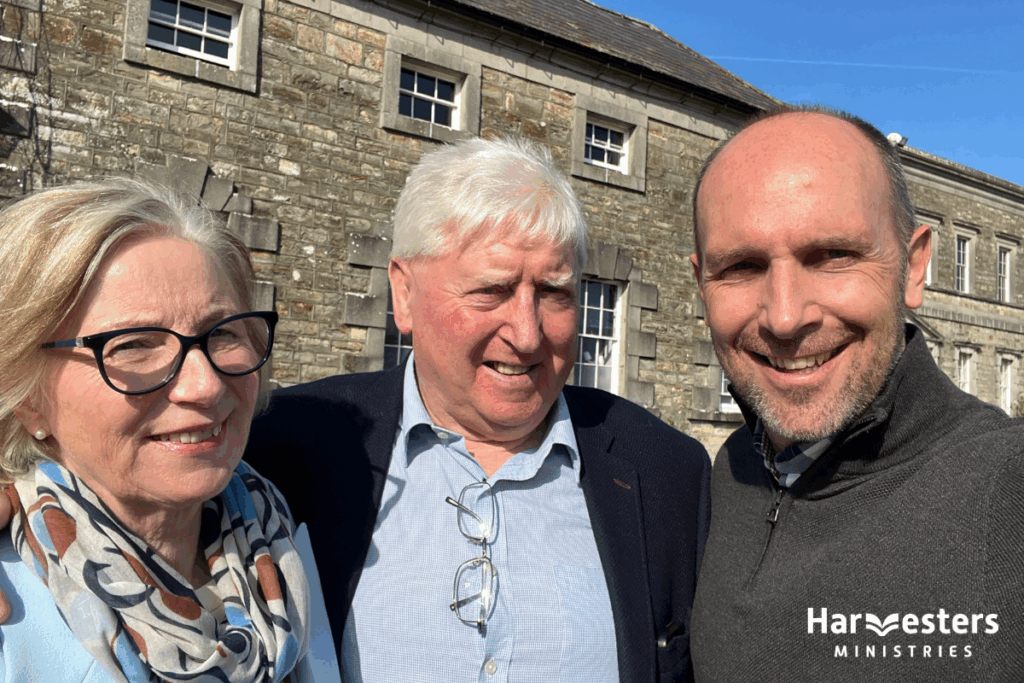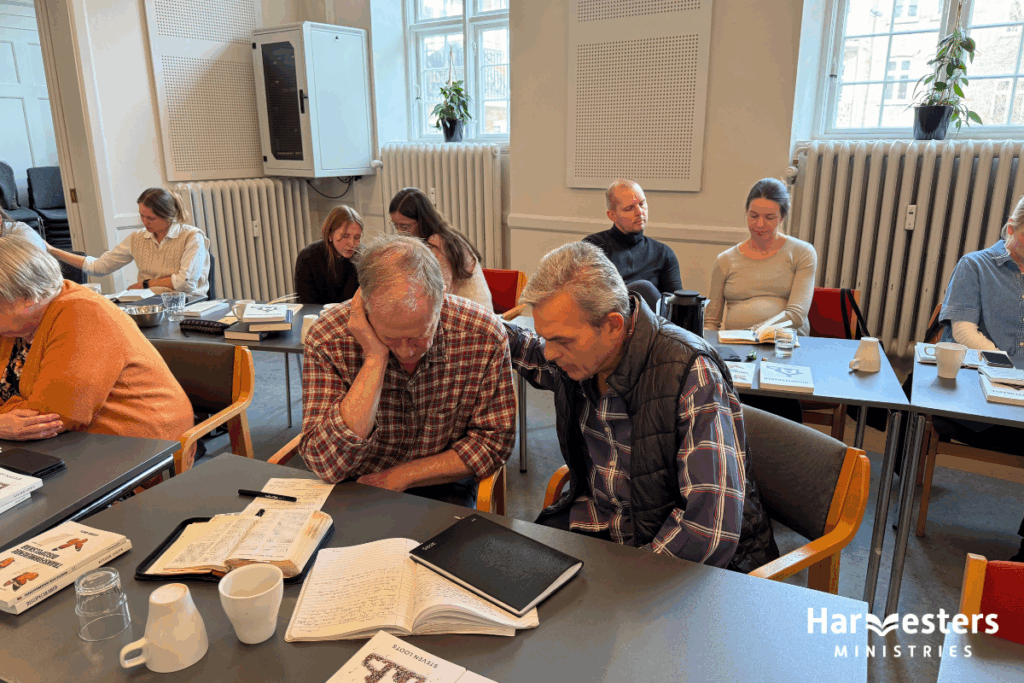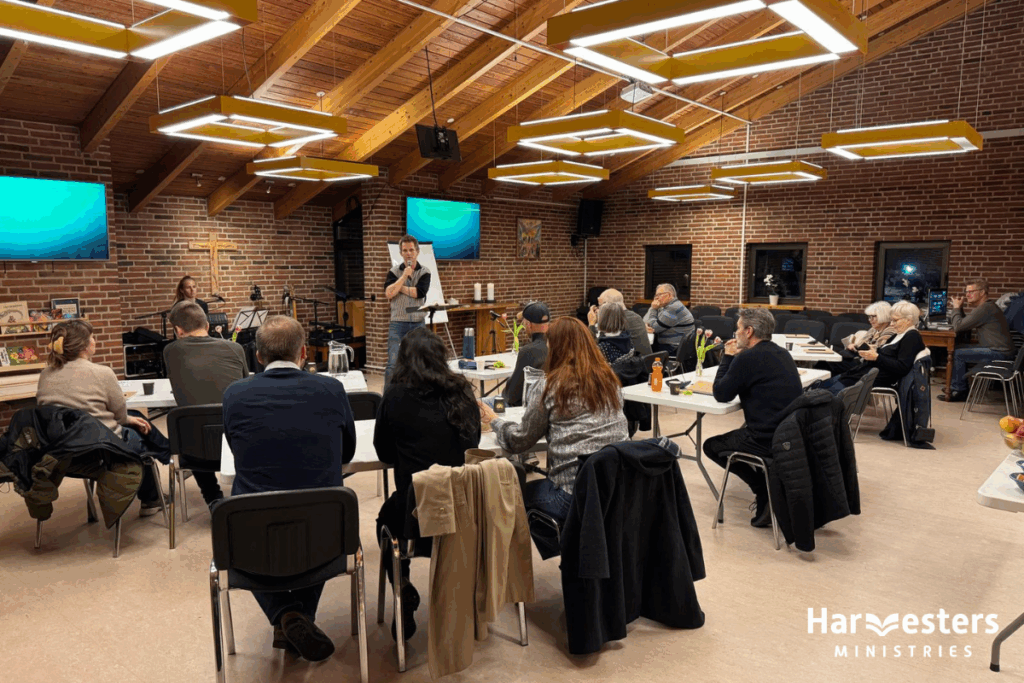God’s Perfect Timing in Mongolia
God has long been at work in Mongolia, as one ministry team recently discovered. After being emboldened by Harvesters to take the Gospel out, they evangelised door-to-door in a remote village – and encountered a couple who had been waiting decades for someone to share the Gospel. Over 25 years earlier, this couple had watched The Jesus Film and had been hoping ever since for someone to tell them more about the “wonderful man” they saw. “We’ve waited 27 years for you to come!” they exclaimed, accepting Christ with joy. Encounters like this remind us that the Holy Spirit is already preparing hearts for the Gospel, even in places that seem distant and forgotten.
Joining God’s Work
A group of enthusiastic Mongolia pastors recently completed Phase A of Harvesters’ church-planting training, focused on discipleship and spiritual disciplines. Our Regional Director shared that the simplicity and practicality of the training “deeply touched their hearts,” and pastors described it as “life changing.”
Pastor Ulzii expressed his gratitude: “In the past, we tried many different methods and materials, but we are so grateful to God that He is now providing systematic materials at the right time through Harvesters. I plan to start implementing this model immediately… while we are fresh and full of fire.”
God has aligned the training from Harvesters to the needs of Mongolian pastors in His perfect timing.
Pastors Taking Action
The response was immediate. Pastor Ulzii and his leadership team implemented a strategy for discipleship right after the training and committed to financially support two churches in Dornod province in their planting efforts. They are also preparing to launch their first new church plant in a small town near Ulaanbaatar.
Another pastor reflected, “God reminded me of His perfect timing. Right now, our church is especially focused on discipleship and church planting. This summer, our church went on an outreach to the countryside and shared the Gospel. A few people responded, and we are planning to plant a church among them. It was exactly what we had been learning through this training. God confirmed to me through this experience that it was truly His plan.”
Evangelism in Action
We have also seen God guiding young leaders in bold evangelism. In one village, a team approached a house where no one answered the door, but a young member felt unusually prompted by the Holy Spirit to enter. Inside, they found a 90-year-old woman unable to walk to the door. After helping her and sharing the Gospel, she accepted Christ with tears and thanked them for coming in when she could not respond. Two nights later, she arrived on crutches to a gathering of new believers. By the end of the meeting, she stood singing and praising the Lord without them.
These testimonies reveal a powerful truth: God’s perfect timing and preparation always go ahead of us. Pastors across Mongolia are now encouraged, emboldened and equipped for church growth in their communities and beyond. May we continue to watch and celebrate as God’s harvest grows across this nation.
Light in Central Africa: God’s Glory Shines in Darkness
“For God, who said, ‘Let light shine out of darkness,’ made his light shine in our hearts to give us the light of the knowledge of God’s glory displayed in the face of Christ.” – 2 Corinthians 4:6
The Democratic Republic of the Congo (DRC) and The Central African Republic (CAR) are two countries that have known much darkness. Their people are wracked by war, human rights infringements and extreme poverty. However, they have been touched by a Light far greater than any darkness of this world. During recent trainings in the DRC, Harvesters found this Light shining brightly in the most unexpected places.
From a Godly Meeting to Answered Prayers
Two years ago, Pastor Duale Langba – president of the evangelical community in Ubangi Mongala, DRC – had a chance encounter with Harvesters Regional Director for Central Africa, Reynold Fourie, at a conference they were both attending. As Reynold explained Harvesters’ mission of planting churches through evangelism and discipleship, a stirring rose in Duale’s heart as the vision resonated deeply with his own.
At the beginning of 2025, Pastor Langba shared this leadership vision with his community: Stage one was “to activate churches to evangelise and disciple.” That same year, God brought this vision to life. In October – thanks to the God-ordained meeting – Harvesters launched our church-planting programme in Gemena with 277 pastors.
“This training is the answer for the first stage of my vision,” Pastor Langba shared. “Harvesters works to plant churches and it’s an answer to prayer for me to collaborate with you.”
Giving Their All to Receive Training
Gemena lies in the remote north of the DRC, near the border of CAR. Roads are mostly inaccessible, yet pastors came from far and wide to attend. Some travelled over 500 kilometres on small motorbikes; others crossed the mighty Congo River. In a wonderful move of God, five pastors from CAR even managed to cross the border to join us.
The training ignited a powerful flame in pastors hungry for training. “When we return to our county, we will activate the whole church for evangelism,“ said pastor Gbaka Tagba Benjamin from CAR. “Then we will plant churches and disciple people. From the members of the church plants, we will choose leaders and train them. And we will follow up with them and teach them to repeat the process. With the Lord’s help, we will plant many churches.”
CAR has been tormented by a civil war since 2012. They have every reason to abandon all hope. But God is using these pastors to transform their country.
It Takes a Body
It’s clear that God has His hand upon this church-planting movement which has now launched in Gemena. From orchestrating the divine meeting between Pastor Duale and Harvesters, to the deep hunger of pastors travelling for miles to attend. Furthermore, the whole local church community played their part by opening their homes and providing food for all the attendees.
This is how the Body of Christ functions: believers opening homes, ministries joining hands, pastors travelling and crossing borders – all to fulfil the Great Commission. Despite the region’s turmoil, God’s light is shining through faithful servants who are aflame with the love of Christ.
“But we have this treasure in jars of clay to show that this all-surpassing power is from God and not from us.” 2 Corinthians 4:7
Russia’s Great Hunger is Our Great Calling
Frederick Buechner once said: “God’s calling for you is where your great gladness and the world’s biggest hunger meet.”
In Russia there is a great hunger: With a population of about 143 million people, the vast nation has only about 7,500 evangelical churches. This leaves countless towns and villages without a single Evangelical witness. The need for more churches is urgent – and the need for the Gospel to reach hearts without Christ even greater.
God has awakened Harvesters missionaries in Russia to this need. Through doors He has opened, we have established 10 active church planting Streams in nine regions! It is our great gladness to serve these churches by training them in evangelism, disciple making and church planting. Discover more and find prayer points below.
The Great Hunger
- In the city of Volgograd, a pastor confessed after training that he had grown tired and discouraged. He doubted if evangelism, discipleship and church planting could still work in his community.
- Similarly, Pastor Victor, from an island in the far east, has been serving faithfully for 30 years but admitted, “there are very little results or satisfaction.”
- Pastor Valodia in Kalmykia, a Buddhist republic with one of the least reached people groups in Russia, faces the challenge of finding pastors willing to go and plant churches in the remote towns and villages.
- In Krasnodar, Pastors Vlad and Katya have been praying for a tool to help them “multiply the Kingdom of God… raise disciples, raise workers and plant new churches.” Katya explains that they are taught to evangelise, but“do not know what to do with people” after that.
God, however, is doing something amazing, and hearts are being set on fire!
The Great Gladness
God has prepared a way for Harvesters to respond to this hunger. The results are our great gladness:
- The weary pastor from Volgograd attended Harvesters Phase A training. God renewed his vision, and now his church is planning to roll out the church planting strategy in six new locations while equipping their members in evangelism and discipleship.
- Pastor Victor has “discovered a new path” by working with Harvesters. He testified: “I truly believe we will see results because it is the Lord who is at work. If He has already stirred my heart so strongly during this seminar – giving me such a lasting desire to follow the Harvesters model – I am confident that He will bring results.”
- Pastor Valodia’s ministry was refreshed through Harvesters. He is now committed to the process of planting new churches, saying, “we trust that God will help us all.”
- Pastors Vlad and Katya’s church have committed themselves to the process too. “We want to plant more churches, we want to evangelise and we want to make disciples who make disciples,” declared Katya.
Answer the call
Join us in our great gladness as we pray for Russia:
- Praise God for two new church plants near Krasnodar city and 20 new churches around Perm.
- Thank God for 25 Buddhists who came to Christ in the Buryat Republic of Siberia.
- Pray that Russian pastors will be tenacious church planters who will persevere in evangelism and disciple making.
- Pray that God will continue to lead Harvesters to those who have a great hunger.
Newsletter November 2025
Great news! Your November newsletter is ready to download now.
Inside, you’ll read about an exciting new chapter for Harvesters Ministries. After more than 27 years of faithful leadership, our founder Steven Loots has handed over the leadership of the ministry, marking the beginning of a new season as we continue pressing toward the Great Commission together.
You’ll also hear firsthand stories from pastors in the Philippines and Kenya, whose lives and ministries have been transformed through partnership with Harvesters as we reach the unreached with the Gospel.
Thank you for your continued prayers and support which ensures the mission continues until all have heard the Good News!
Download the November 2025 Newsletter – USA
Download the November 2025 Newsletter – UK
Download the November 2025 Newsletter – South Africa English
Download the November 2025 Newsletter – Afrikaans
Download the November 2025 Newsletter – International
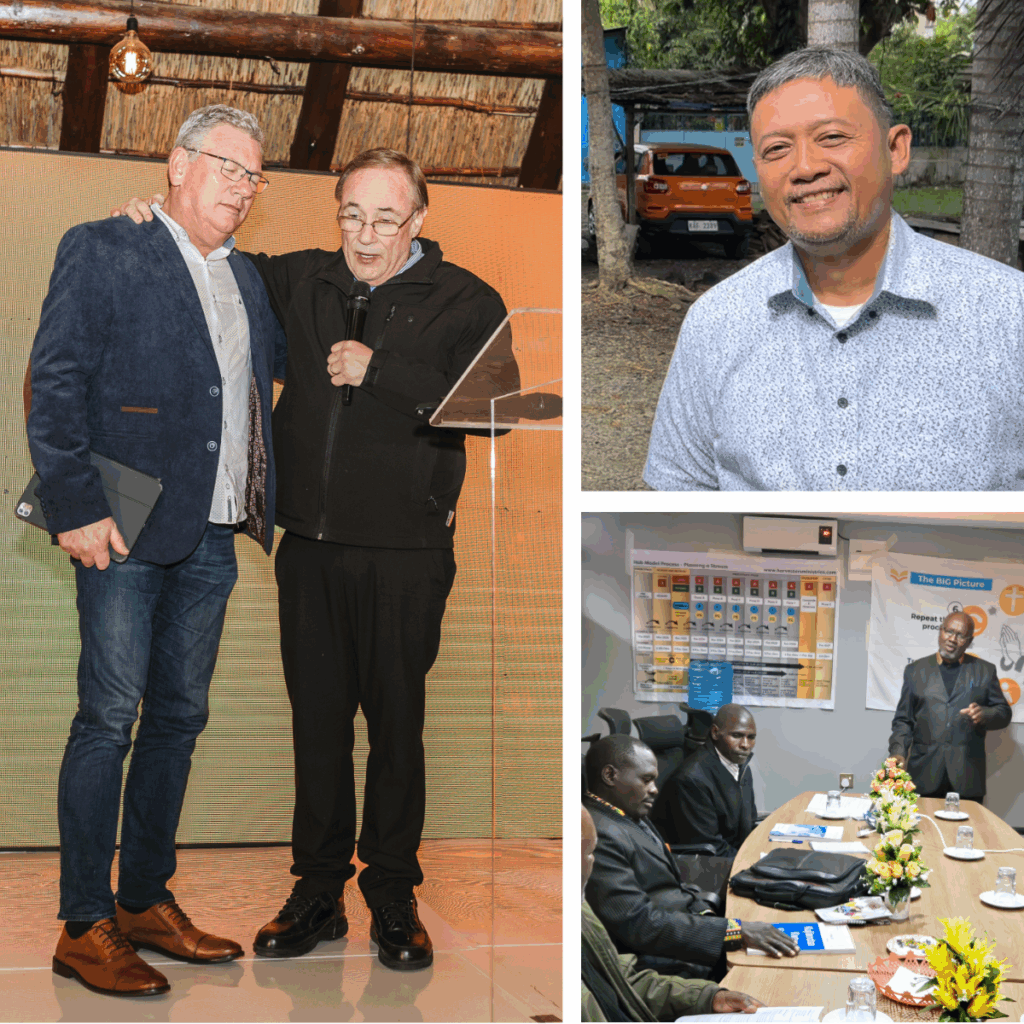
Bolivia: A New Harvest Rising in the Amazon
Tucked between the Andes mountains and the Amazon rainforest, Bolivia is a country of cultural richness and spiritual hunger. While many Bolivians identify as Christian, syncretism, shallow discipleship and a lack of trained pastors have left many churches unequipped to grow — especially in rural and indigenous regions. Yet God is moving mightily through the obedience of local believers.
In remote towns and dense jungle villages, the Gospel is advancing. Pastors are being equipped, disciples are being made and the vision to reach the unreached is burning brightly. As you read, may your heart be stirred to pray – you’ll find prayer points at the end of this article.
Discipled to Disciple Others
Pastor Eliel has served as a missionary for many years, but something changed when he encountered Harvesters’ training. “I thought I understood the assurance of salvation,” he shared. “But the teaching provided so many Bible references that helped me understand it better. Now, we can lay a firm foundation for the people who accept Jesus.”
The simplicity of the Harvesters Church Planting Model has also made a deep impact. “It’s easier to develop than anything I’ve done before,” said Eliel. “I really love the six simple steps: evangelise, plant a church, disciple, choose a leader, prepare the leader and repeat the process.”
This clarity and structure are giving local pastors a new confidence and a renewed vision to reach further.
A Church for Every Tribe
In the Amazon Basin, far from Bolivia’s cities, live unreached tribes still waiting to hear the Gospel. Local pastors, some from indigenous communities themselves, are courageously stepping out to reach them. One leader, Pastor Roly, was moved almost to tears as he shared his burden with us: “These pastors are hungry for truth, but they lack theological understanding. This material is exactly what we need.”
Harvesters is coming alongside leaders like Roly to equip them with tools for evangelism, discipleship and church planting in some of the most remote areas of South America. “We are part of the process,” shared Thinus, Harvesters’ Chief Ministry Officer, “but Jesus is building His Church.”
The Harvest Must Not Be Lost
In a town near Bolivia’s border with Brazil, Thinus paused beside a citrus tree filled with ripe fruit. “If the harvest is left in the field,” he said, “it rots.”
This simple truth reflects the urgency in Bolivia. The harvest is plentiful, but “we have a responsibility,” says Thinus, “as a ministry to equip leaders, pastors and disciple makers to go and harvest what is in the field.” There are still so many tribes to reach – but with prayer, support and obedience, we can help local pastors reach them all. Now is the time. The fruit is ripe. God is calling His Church to act. Pray with us!
Pray for Bolivia
As the Gospel spreads through Bolivia — from border towns to jungle villages — we are seeing hope rise and churches multiply. Let’s partner in prayer:
- Pray for local pastors like Eliel: That they would grow in confidence and continue to disciple others with clarity and boldness.
- Pray for indigenous leaders: That God would equip and sustain those reaching remote tribes with sound doctrine and spiritual strength.
- Pray for the harvest in the Amazon: That no fruit would be left to wither — but that more workers would be trained, sent and raise others.
- Pray for mobilisation: That believers around the world would respond to the call — to pray, to give and perhaps even to go.
- Thank God for the way He is building His Church in Bolivia and ask Him to multiply this movement until every tribe has heard.
3,500 Precious Bibles for Faithful Pastors in Zambia
In Zambia, a landlocked country in southern Africa with more than 70 different languages, owning a Bible in one’s own language is considered a rare and treasured privilege. They are expensive and hard to come by – in fact, Pastor Kebby from the village of Lukulu, explained that the cost of a single Bible is greater than the average monthly income.
Thankfully, Harvesters was able to respond! Through faithful support, our partnership with Biblica and the dedicated volunteers who delivered them, we distributed 3,500 Bibles to newly planted churches.
Faithful Before the Word in Hand
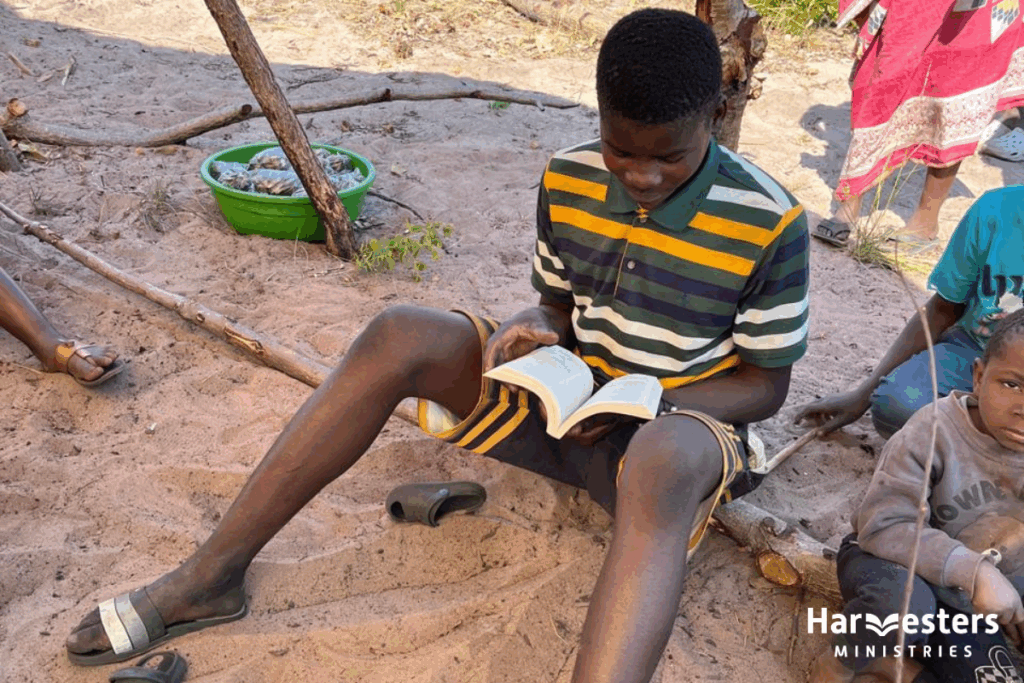
What moved us deeply was that, even before receiving these Bibles, local pastors have been faithfully obeying the Great Commission. Without copies of God’s Word – or replying on torn and tattered ones – they have continued to evangelise lost souls, plant churches and disciple new believers.
In Mongu, Pastor Armon Makai awaited us, surrounded by the Student Pastors of the 20 churches they have planted. They were overjoyed to receive Bibles to strengthen them in their faith and ministry.
In Mumbeji, Hub Leader Pastor Thompson Kaluwaji, planted a church 10 months ago, which already has 130 members – including an ex-witch doctor who has surrendered his life to Jesus. Praise the Lord for the work He is doing in the hearts of many!
In Lukulu, Pastor Micheal Libala has planted seven churches and is now discipling Student Pastors to lead them. They base their discipleship on Acts 2:42, devoting themselves to teaching, fellowship and eating and praying together. “I’m doing this job because Jesus died for people,” says Pastor Libala. According to Pastor Kebby, the Hub Leaders from Lukulu have already planted 150 churches in the area – all without adequate access to Bibles.
From One to the Many
One special moment exemplified the joy and momentum that this Bible placement has brought to the Zambian pastors.
Part of our team was driving along a remote track that ended in a narrow footpath. There they met an excited young man surrounded by people – and in his hand was a brand-new Bible.
He was a Student Pastor who had received his very first Bible that same morning from the other half of our team. Eager not to miss his opportunity, he and several other Student Pastors had slept in a field outside the church in the remote village of Watopa, waiting for the delivery.
Too excited to wait until he returned to his home village more than 20kms away, he was already stopping to read and share the Word with everyone he met along the path. It was Isaiah 55:11 in action – God’s Word accomplishing the purpose for which He sent it!
From a Bible handed to one Student Pastor came the Word spreading to many in this rural and forgotten Zambian community.
We Rejoice
And so, we rejoice with the people of Zambia and thank God for His faithfulness to His Church. And we thank you for your partnership and prayers so that pastors – who have been faithfully planting and discipling even without Bibles – can now hold God’s Word in their hands and share it with others.
May we, too, keep marching in the knowledge of God’s promise that we will go out in joy and be led forth in peace and that the mountains and hills will burst out into song before us – Isaiah 55:12.
Miracle in Naples: Praying for the Gospel to Move in Italy
Italy, a land rich in religious history, is still in great need of living encounters with the Gospel. In partnership with local churches, Harvesters is training believers in Italy to boldly share the Good News through their personal testimony and witness. As the message of Christ is proclaimed, God is moving in power – saving, healing and revealing Himself in extraordinary ways.
Will you take a moment to pray for this nation, for those stepping out in faith, and for hearts to be transformed? The testimony below is just one example of what happens when ordinary believers, equipped with the Gospel, act in obedience.
A Divine Appointment in Naples
Ivan, a believer from the Jesus is Lord ministry in Naples, recently attended training with Harvesters at his church. The sessions are designed to activate the local church, encouraging everyday Christians to evangelise among their friends, families and neighbours. After hearing about the power of the Gospel and the command to preach it, Ivan felt stirred to ask God for an opportunity to share. The very next day, God answered in an unexpected way.
“I prayed in the morning, just like we were challenged to,” Ivan shared. “Later that day, around 4 p.m., I received a WhatsApp message, by mistake, from my neighbour. She meant to send it to her doctor. It was a desperate cry for help – she has cancer and was in terrible pain in her arms and legs.”
But Ivan didn’t see this as a coincidence. “I immediately recognised that it was God’s plan,” he said. “I prayed for her healing and declared God’s power over her situation. I told her by message, ‘Surely the Lord has already provided healing in your life.’ Then I thanked the Lord.”
A Miracle on the Doorstep
What happened next stunned Ivan and his family. “While I was telling my wife about what had happened, someone knocked at our door,” he said. “My wife told me, ‘You need to open it – this knock is for you.’”
It was his neighbour; she was crying. “She was lifting her arms and showing me that she had been healed. She said, ‘Ivan, Ivan, I couldn’t move my arms. But now look – God has healed me!’ She hugged me, overwhelmed by what had happened.”
She told Ivan that she had opened his prayer message and hadn’t understood why he’d sent it, until she realised she’d messaged him instead of her doctor. As she listened to his prayer message, she suddenly noticed the pain had gone! “I realised God is alive,” she told him.
“I burst into tears,” said Ivan. “I recognised that God is alive and still works signs, miracles and wonders today.”
This miraculous encounter came because Ivan obeyed the Great Commission after being challenged by Harvesters. The teaching helps participants see the urgency of the Gospel and step out boldly, trusting that God will confirm His Word with power.
How You Can Pray
Please join us in praying for the work of the Gospel across Italy through Harvesters:
- Pray for Ivan and his church in Naples as they continue to share the Gospel in their community.
- Ask God to embolden every believer trained to step out in obedience.
- Pray for those who have heard the Gospel to respond with faith and repentance.
- Ask God to perform more signs, wonders and healings that reveal His power and love.
- Pray for a movement of disciple-making and church planting to take root in every region of Italy.
- Thank God for His faithfulness and for the growing testimonies that show His Spirit is at work.
Wales: The Revival is at Hand
In the early 1900s, God ignited powerful revivals in the beautiful nation of Wales – and now He’s on the move again . According to The Quiet Revival, a survey commissioned by the Bible Society, church attendance in the UK has risen by 50% over the last six years!
This growing momentum was clearly evident at a recent Harvesters Kick Off event in Llandrindod Wells, where Festival Church members gathered expectantly, ready to reap the spiritual harvest God has prepared.
But First: The Gospel
The Quiet Revival also revealed that “adults in England and Wales are unlikely to encounter the Bible in everyday life.” This places a great responsibility on the shoulders of Christians to take the Gospel to the unsaved. But first, they must fully understand it themselves.
Before the Kick Off, Pastor Erold of Festival Church expressed concern that many Christians don’t have a clear grasp of salvation. “Many people want to share their faith,” he said, “but they don’t always have the confidence of knowing how.”
Adam, another attendee, echoed the need to “get back to the simplicity of the Gospel.” The basic facts that we have all sinned and fall short of the Glory of God and that we need to acknowledge sin in our lives and repent is “what we need to convey to people.
Get the Gospel Story Straight
This is exactly what Harvesters tries to address through our training – giving believers the confidence and tools to share the Gospel and motivating them to trust the Spirit to work through them. “Within our team we were equipped,” affirms Pastor Elrod.
Marian, who leads a small group, said she was especially impacted by a practical exercise in which participants shared their personal testimonies, while clearly presenting the Gospel, in just a few minutes. “I was thrilled about how easy it was to tell my story but still get the Gospel in,” she said.
For many attendees it was the first time in years that they had practised sharing the Gospel with someone. This experience prepared them to take the message beyond the church walls. The Spirit is awakening the Body of Christ in Mid-Wales to share the beautiful Gospel of Jesus with the lost!
Discipleship Follows Evangelism
Evangelism is only the beginning! “Once people are saved… many times we celebrate… yes, the person got saved, and that’s it, we stop there,” says Pastor Elrod. “But what is the process after salvation?”
Following the Kick Off, Festival Church now has the tools to begin the next step: the discipleship journey. They are looking forward to implementing the 15 Spiritual Disciplines – a programme developed by Harvesters founder, Steven Loots – to help believers grow in their faith.
“Not many people have the resources or the time available,” said Pastor Elrod, “but Harvesters comes alongside. They equip us to make disciples that make disciples as we go along.”
With the Holy Spirit’s guidance, Pastor Elrod, Marian, Adam and others are now part of the movement that will cement the outflow from the Quiet Revival into lasting transformation in Llandrindod Wells – and the entire nation of Wales.
Ethiopia: From Tragic Loss to God’s Power Displayed
In the Horn of Africa, Ethiopia is home to more than 130 million people, including 33 unreached people groups – presenting a vast mission field. Despite its recent economic growth, it remains one of the world’s poorest countries, marked by political instability.
But God has not forgotten this country or its people. As we pray for this nation, we draw hope from the believers who stand firm in the face of intense persecution. Among them is the powerful testimony of Pastor Abdi* and his son-in-law Birra.
Victory Amidst Persecution
In July 2022, a faithful pastor named Abdi was abducted by an armed group in his home village, located in the troubled region of Oromia. After a week in captivity, he was brutally murdered — not for any crime, but because of his unwavering faith in Jesus Christ.
To the world, it may seem a senseless loss. But he lived and died for Christ. And in that, there is unspeakable victory – a victory that becomes tangible when we see how God has used Pastor Abdi’s life and death to display His grace and power. As Tertullian once wrote: “The blood of the martyrs is the seed of the Church.” This is what we are witnessing in Ethiopia today.
From Bloodshed to Breakthrough
The region is known for instability, violence and religious extremism. While the armed group that controlled the area claimed political motives when arresting Pastor Abdi, their true agenda was clear: No faith but Islam would be tolerated in the area.
Yet what the enemy meant for evil, God has used for eternal good.
Since Pastor Abdi’s death, the church has experienced explosive growth. His son-in-law, Birra, has fearlessly continued his father-in-law’s mission, walking the same narrow path paved with sacrifice and glory. Trained as one of Harvesters’ first Hub Leaders in Ethiopia, Birra has already planted three churches and shared the Gospel with more than 5,000 people. This is a powerful breakthrough in the region – resurrection power at work!
Encouraged, Motivated and Mobilised
And Birra is not alone. Across the region, a growing number of Harvesters’ Hub Leaders are rising up, bold with holy fire.
In May 2025, they graduated after three years of church planting and theological training with Harvesters. The graduation does not mark the end of the pastors’ journey, but rather a new beginning – they are more encouraged, more motivated and more mobilised to spread the Gospel than ever before. The fields are white with harvest, and they are ready. Let’s pray for their mission, and that their courage would ignite our own.
Pray for Ethiopia

In the face of threats and violence, Pastor Abdi could have run. But with quiet courage and a heart anchored in Christ, he simply said: “I want to obey Jesus. I will stay.” He chose the cross over comfort, the will of God over personal safety. Let’s honour this legacy by praying for Ethiopia:
- Pray that those who are persecuted in Ethiopia and elsewhere will also stand firm in their faith.
- Pray for the Hub Leaders who recently graduated. May they also have quiet courage and hearts anchored in Christ.
- Pray that Christians in Ethiopia, in your own community and across the world, will also choose the cross over comfort, the will of God over personal safety.
- Thank God for His faithfulness – confess that what the enemy means for evil, He will turn into eternal good.
Pastor Abdi may have died for his faith, but the story doesn’t end in death. It begins again in resurrection power.
*All names throughout changed for security reasons
Newsletter August 2025
The August newsletter is out now – download your copy below.
Inside: Pastors from Ghana are excited to return to the foundations of church growth, and Pastor Warren from South Africa asks you to pray with him for a vision from God. Plus, hear powerful testimonials from people being impacted by the work of Harvesters around the world.
Thank you for your prayers and support which makes the work and impact of Harvesters possible!
Download the August 2025 Newsletter – USA
Download the August 2025 Newsletter – UK
Download the August 2025 Newsletter – South Africa English
Download the August 2025 Newsletter – International
Discipleship in USA Revitalised by Disciple Makers
Christians in the USA are among the first to acknowledge the challenges faced by the modern church. But, although surveys indicate that the church is shrinking in size in and influence, Disciple Makers from Harvesters offers a simple roadmap back to the basics of evangelisation and church growth.
Joining Disciple Makers means allowing God to work through your life and being ready to experience healthy church growth. West Cobb Church in Georgia and Agape Christian Fellowship in Vermont embraced this journey, and participants have had their perception of discipleship transformed. Their testimonies highlight three steps on the roadmap to true discipleship.
Step One: Be Obedient
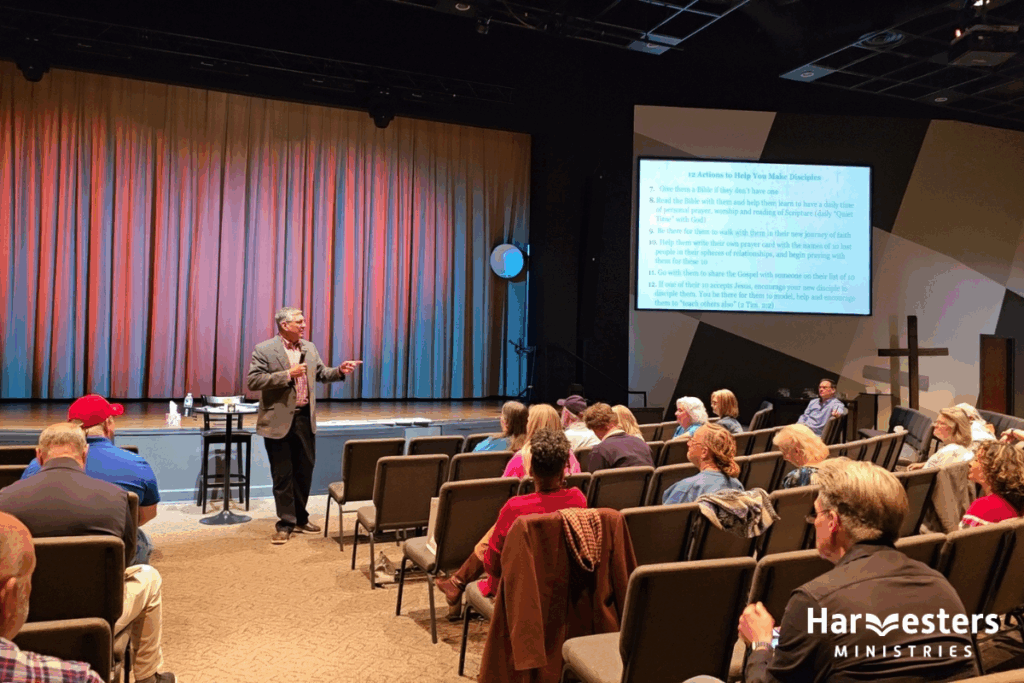
True discipleship begins with surrender. It means offering yourself to be used by God and being open to the work of the Holy Spirit. Gloria Hunter from West Cobb Church shares, “The Lord decided that He wanted to make something out of us, even though we didn’t know it was possible. We’re glad to be here in this time of service to the Lord. He’s asked us to continue His work until He returns.”
Pastor Bryan Ganntt from Agape Christian Fellowship resonates with this call to radical obedience: “The church needs to get out of its four walls and get involved in the world… we need to be Kingdom-minded. Not building our own kingdom but building the Kingdom of God.”
We praise God for preparing the members of these two churches to take the first step and join the Disciple Makers journey in obedience to God’s call.
Step Two: Renew your Mind
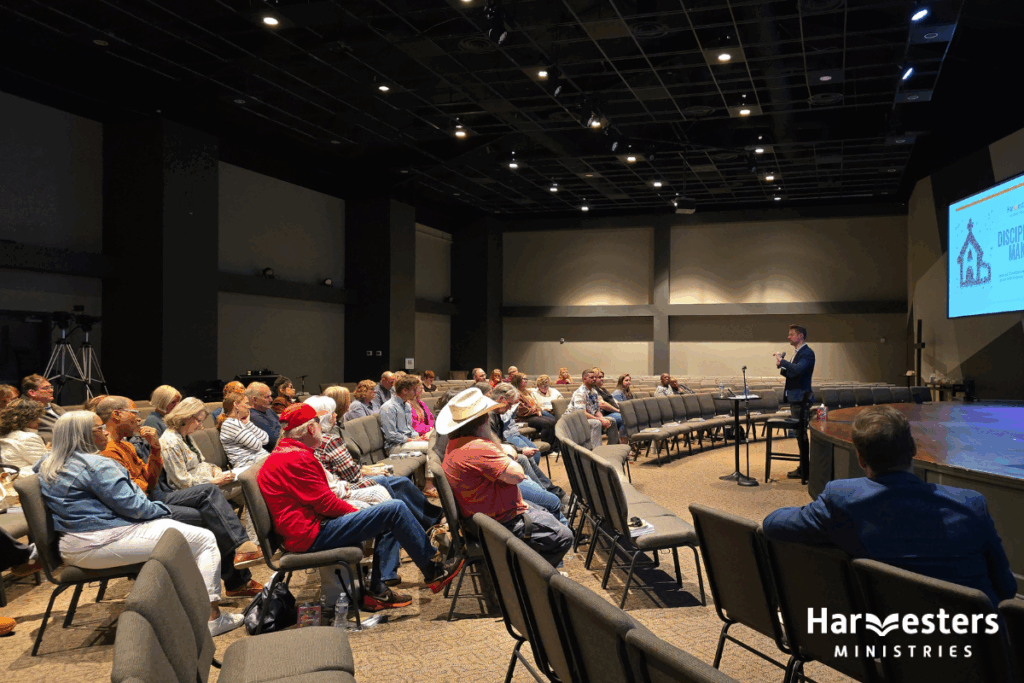
Next, believers must rediscover the heart of the Great Commission. Too often, churches turn inward, serving only themselves while their communities remain unreached. “People in America seek God less because we… kind of live a good life and have everything that we need,” observes Griffin Banks from Powder Springs, Georgia. “So maybe it doesn’t seem necessary for people to go seek God.”
Disciple Makers challenges these passive mindsets and refocuses the church on its mission. Taylor Elrod, also from Powder Springs, says: “Right now my favourite thing that we’re learning is about the Great Commission, and I love that I grew up in church but now I really know what it actually means.”
Meanwhile, Rob Kuehl’s idea of discipleship was transformed. He learnt that “it’s an intentional relationship, friendship, centred around the Word of God and prayer.” Sheila Earwood had a similar experience: “I think a lot of times when we hear the word ‘disciple’, everybody kind of has their own definition of what being a disciple is.” Discipleship is “not something that is idealistic in the Christian community but, actually is something that we very naturally and supernaturally do because Christ is living in us.”
Only once existing perceptions regarding God’s church and its purpose have been renewed can we expect church growth and subsequent transformation.
Step 3: Go Make Disciples!
Finally, God expects us to take the leap and do the work He has prepared us for. Gloria explained, “I don’t want to be someone who the Bible talks about as ever-learning and never coming to the knowledge of the truth, so I want to be able to utilise the truth effectively.”
Disciple Makers offers practical guidance on achieving this. Two years ago, Pastor Bryan’s church saw a rich harvest of 300 new converts. He had to contact fellow pastors to ensure that these souls were properly discipled. “But the thing that we found was we were woefully inadequately equipped to disciple and to handle that many people receiving Jesus so suddenly,” he shared. “And so we have been searching for something that would teach our people how to disciple, how to become disciples, how to become disciple-makers. And I think we have found that in what Harvesters Ministries is doing. Learn to be a disciple, be a disciple, learn to make disciples.”
Gloria sums it up perfectly: “Just be obedient to the things of God and do what He tells you to do the way He tells you to do it, and you see God-results.”
Pray for Zimbabwe: Growth is Tangible!
Zimbabwe in southern Africa has a difficult history of political unrest, extreme poverty and societal hardship, but the supernatural power of the Gospel can heal even the deepest wounds. And God’s church in Zimbabwe is flourishing! In Harare and Bulawayo, the country’s two biggest cities, believers are boldly evangelising in their communities, believers and leaders are being discipled, churches are being planted, and the Body of Christ is growing. Tangible growth is unfolding – and you’re invited to be part of it through prayer.
Accepting the Call
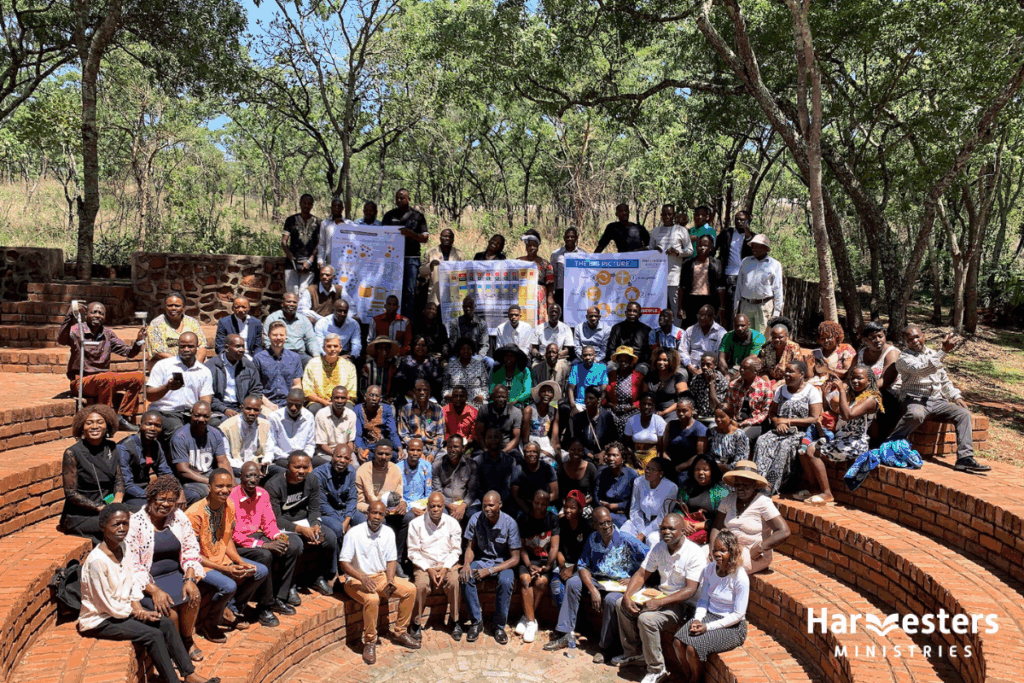
At the launch of Harvesters’ pastoral training programme, known as a Kick Off, students are challenged to plant at least one church before their next phase of training. When Harvesters returned to Harare and Bulawayo six months after their Kick Offs for Phase A training, we were excited to find that pastors had pursued this call relentlessly. The fruit of their obedience was tangible: new believers had come to faith and fresh church plants were being blessed with growth.
Pastor Zongoro, ministering in the rural region of Mondoro, has already planted two churches and helped lead 57 people to salvation – many of whom were formerly caught in addiction. Now, they are being discipled in Christ. But his mission is not finished. “I am [hopeful] that God himself will help us plant… more churches,” he declares. “I have a vision that the area can be [liberated] from worshipping idols to worshipping Jesus Christ.” Let’s pray into that vision together.
The Spirit Sparks Growth
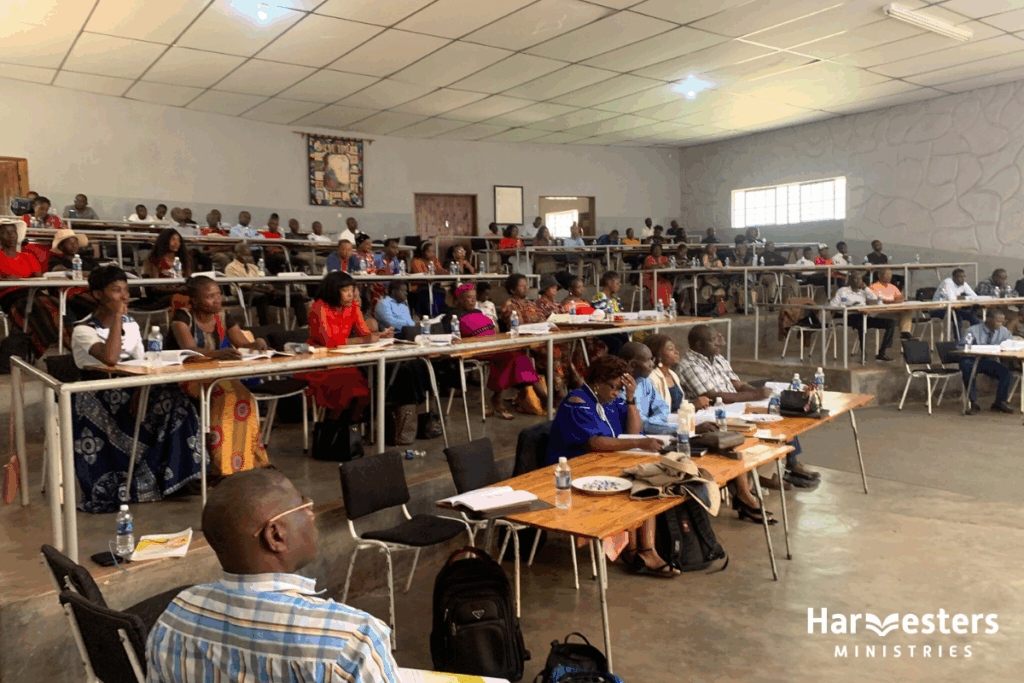
Other pastors were also keen to share the stories of growth they had experienced since the Kick Off. Big or small, one could clearly see the Spirit at work. One lady from Seke, on the outskirts of Harare, shared that she has planted a small but growing church – proof that no act of obedience is too small when the Spirit is involved.
Pastor Emily Tigora is another powerful example. Through one-on-one evangelism in Chinhoyi, a small town northwest of Harare, 15 people were brought to Christ. They will soon start services in a nearby school. Along with Pastor Stephen Mashaga, she also planted a church in Harare that grew to over 80 members in just one month. “We are seeing God in it,” says Pastor Emily with joy.
Pastor Josephat has seen similar growth – from just 15 members to 80. He gives all glory to God, declaring: “We thank God for that church in Jesus’ mighty name!”
Churches Planted, Society Transformed
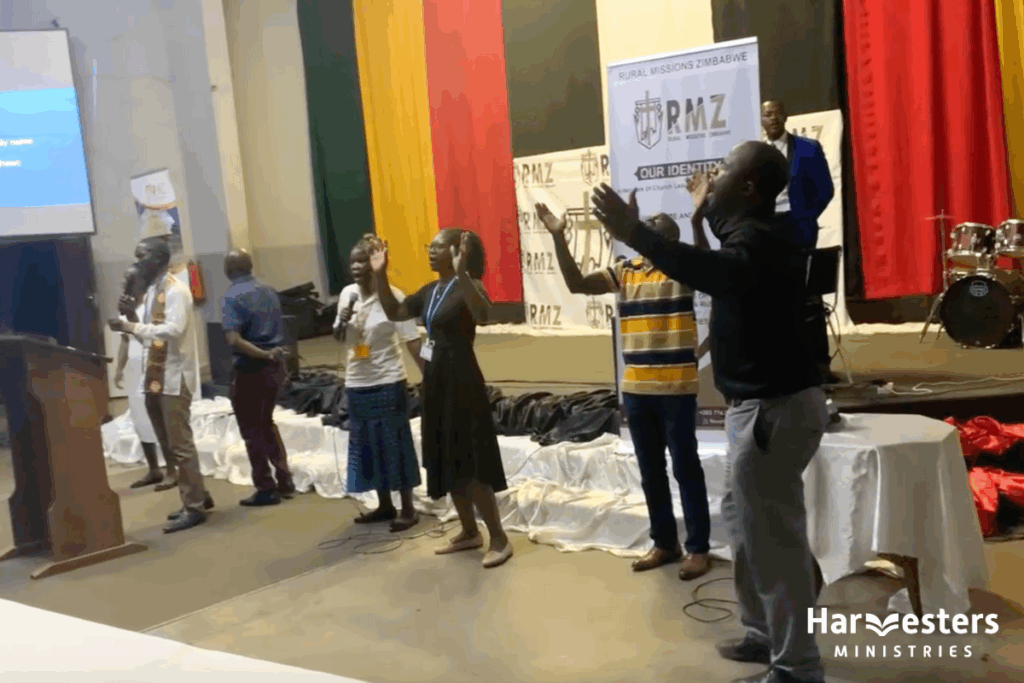
Not only are pastors seeing supernatural growth, but they also testify of societal transformation and new leaders raised thanks to the power of the Gospel.
Pastor Josephat is discipling two emerging leaders to shepherd two future churches, and Pastor Bigboy Haswell from Harare is doing the same – mentoring leaders for two churches he’s already planted. Pastor Zongoro knows that raising leaders is the key to advancing further, saying more pastors must be trained for him to “move on to plant some more churches.” These leaders can sow seeds of change in a society plagued by addiction and poverty.
In Masvingo, Pastor John planted a church in an unlikely setting: a former bar. Today, that beer hall has been repurposed as “a church hall to worship Jesus,” explains John, where entire families, even those struggling with addiction, are hearing the Gospel.
Pray for Zimbabwe
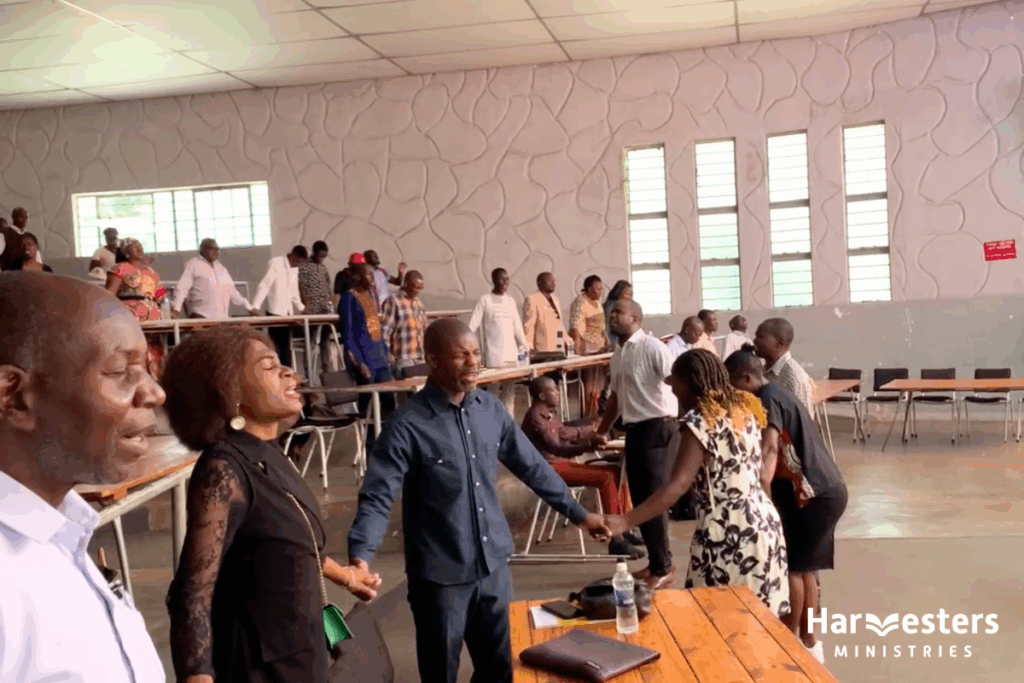
These are but a few of the overwhelming testimonies that have reached us from Zimbabwe, where Christ’s servants are making a significant difference. Join us in praising God for the growth and praying for the continued commitment of His faithful servants in this ripe harvest field.
- Join Pastor Patricia Matsatse from Murewa in praying for small groups of new believers that might grow into thriving churches.
- Join Pastor Zongoro, who is praying for social transformation in Mondoro and Zimbabwe as a whole.
- Join Pastor John in praying for pastors to be trained to lead the churches that have been planted.
- Pray for continued church growth with Emily and Stephan from Harare.
- Join Pastor Josephat in thanksgiving for the growth that is already apparent.
New Nations, Same Mission: Reaching Denmark and Ireland
In recent weeks, Harvesters has taken exciting steps forward in Europe, launching our very first Kick Off trainings in Denmark and Ireland. As we continue to pursue the Great Commission, we’re thrilled to see doors opening and hearts igniting in these spiritually strategic nations. From the reflective streets of Denmark to the passionate churches of Ireland, the Gospel is moving – and local believers are stepping boldly into their callings.
Denmark: Bold Faith in a Cautious Culture

Our Denmark Kick Off revealed something both poignant and beautiful: in a culture known for restraint and self-sufficiency, there’s a quiet hunger growing for real, active faith. Over several days of training, Danish believers confronted deep personal questions – fears of stepping out, perfectionism, and the belief that they needed to “wait for the right moment.” But as the training progressed, so did their courage.
One participant put it plainly: “What am I so afraid of?” Another, Michelle, shared how she picked up the phone to call someone she hadn’t spoken to since 2017 – and that call led to a heartfelt prayer and an encounter with Jesus. Others began to look to their neighbours and communities with new eyes, ready to share their stories and disciple others.
Another attendee, Tobias, captured this fresh sense of purpose when he said, “I look very much forward to speaking with my neighbours… and to talk about Jesus and tell my story… so I can try to make them disciples as well.” His excitement reflects the broader shift taking place, a community moving from contemplation to action.
The tone in Denmark was reflective, thoughtful and deeply authentic. But the shift was unmistakable: a new sense of ownership and readiness is rising. One seed at a time, a movement is beginning.
A New Fire in Ireland
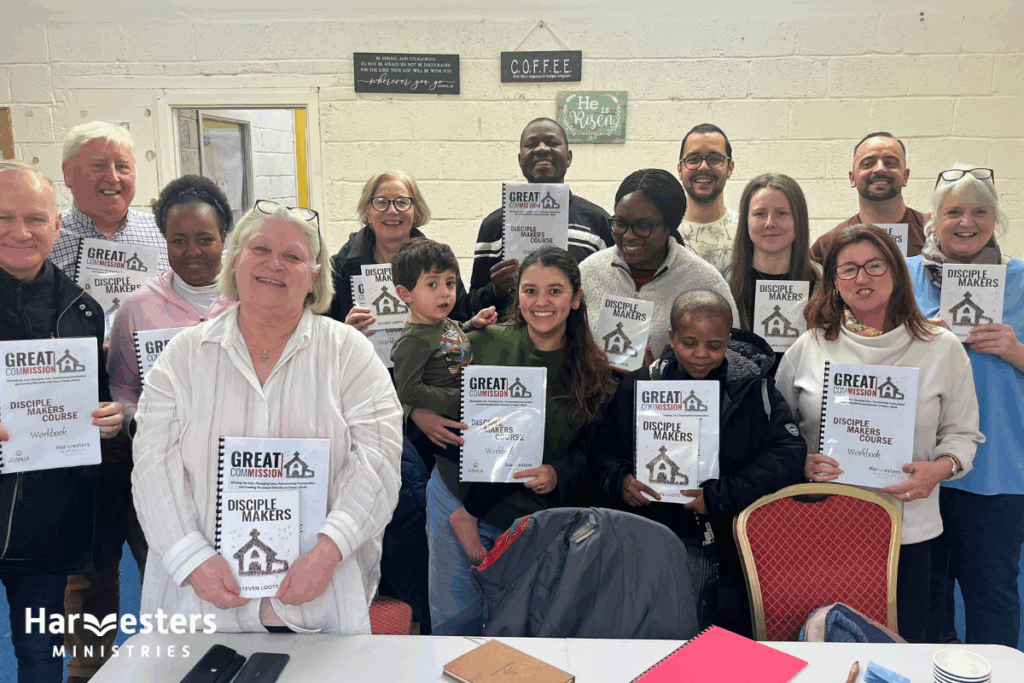
Ireland has now officially joined the Harvesters movement, with our first-ever Kick Off held in the town of Navan, just outside Dublin. The church community of Joshua, led by Pastor Liam, opened their doors and hearts wide as Regional Director Paul O’Neill delivered core disciple-making training. From the outset, the hunger was clear. Leaders, evangelists and everyday believers embraced the opportunity to be equipped, and their bold response reflected a nation ready for something new.
The weekend was filled with testimonies of transformation and commitment. Joe, a participant with a powerful story of redemption, shared how he had been set free from addiction and depression through a radical encounter with Jesus. “If He can save me,” he declared, “He can save anyone.” His passion to now bring that same Gospel to others encapsulates the very heart of the training. One lady from County Cavan shared how the experience reignited a love for the Gospel and brought new clarity to what it means to disciple others: “It’s not so complicated, it’s simple. And now I’m just excited to see what God’s going to do.”
Pastor Liam described the weekend as a divine continuation of their church’s journey. Providence, another participant, reflected, “The course reignited my passion to win souls and plant churches.” What stood out was not just the openness of the people, but their readiness to run with the vision. As Paul O’Neill said, “This is a miracle day in Ireland. The sun is shining, and so is the light of Jesus.” It’s clear: God is stirring something powerful in the Irish Church.
One Mission, Many Expressions
What we’ve seen in these two nations is both deeply encouraging and strategically important. While Denmark and Ireland are culturally unique, the fruit of disciple-making looks remarkably similar: lives changed, courage found and communities stirring with spiritual hunger.
Harvesters is committed to walking alongside the local church in nations across the world. In Denmark, this means continuing to build trust, encourage authenticity and equip believers to act even when it feels unnatural. In Ireland, it means fanning the flames — giving leaders the tools and confidence to multiply what God is already doing.
Europe is ready, the Gospel still active. And wherever there are willing hearts, disciples will be made.


